The heat is on: this summer's unmissable outdoor installations
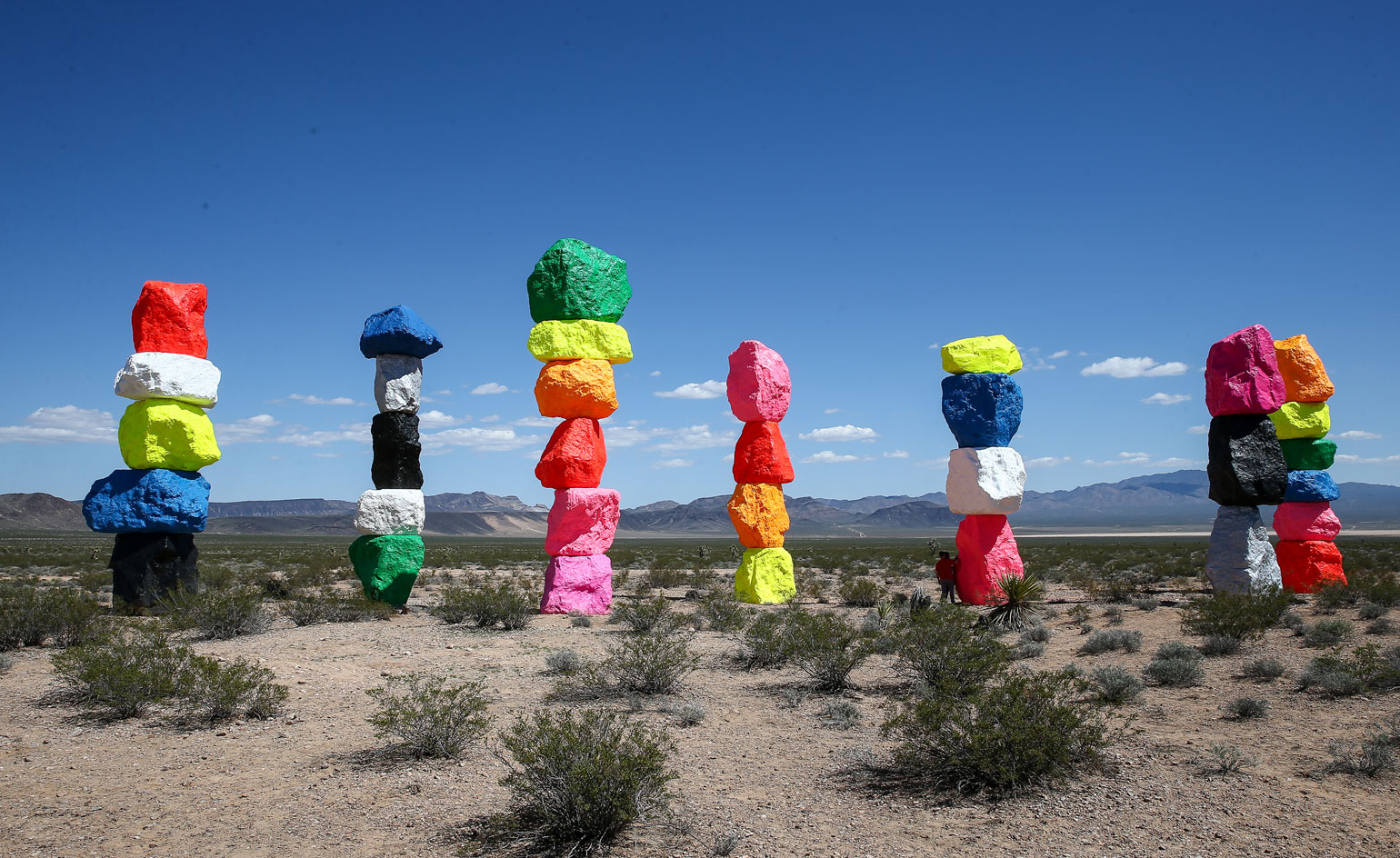
With summer drawing to a close, here at Wallpaper* we've been giving a little thought to the artists and designers that have gone alfresco this season.
This year, creative expression is getting interactive with the influence of weather, reflections and even robots giving a variety of outdoor artworks a fuller multi-sensory appeal. Materials, too, are getting more ambitious, from desert limestone in Nevada to resin-coated carbon fibre at the V&A.
These man-made phenomena seem to hint that, in the great outdoors, art's impact is ever-more impressive.
Pictured: Seven Magic Mountains, by Ugo Rondinone.
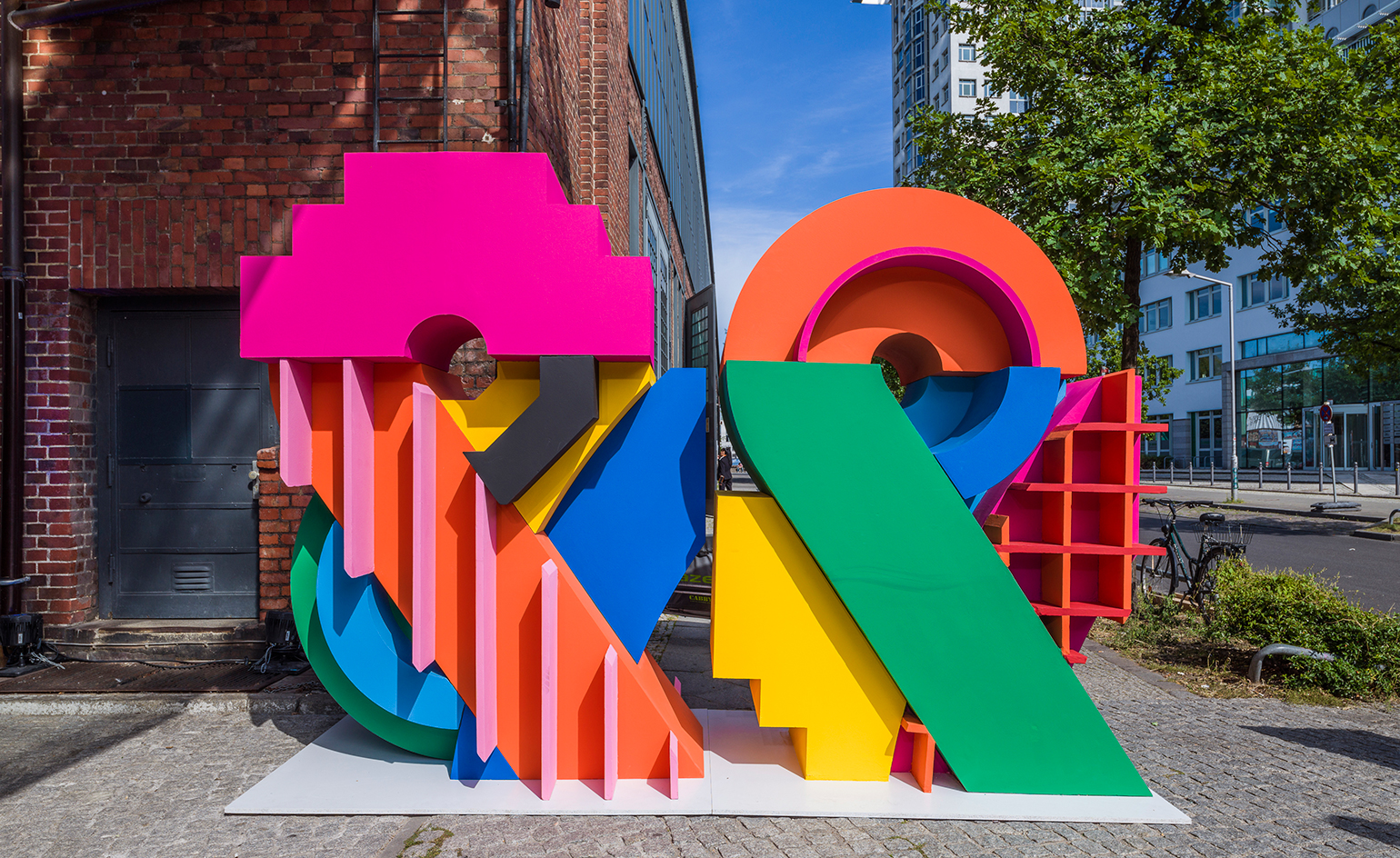
Craig & Karl for Bread & Butter
Arena Berlin, Eichenstraße, Berlin
Though the summer sun is waning in Berlin, designers Craig & Karl have created vibrant, autumn-dispelling installations for the September fashion trade show Bread & Butter, as well as overseeing the event's graphics and visual identity.
The bold theme of the event is simply 'now', so correspondingly punchy colours and dynamic materials have been used throughout; as seen in this ampersand sculpture, which is intended to immediately engage and welcome visitors and traders.
Writer: Elly Parsons
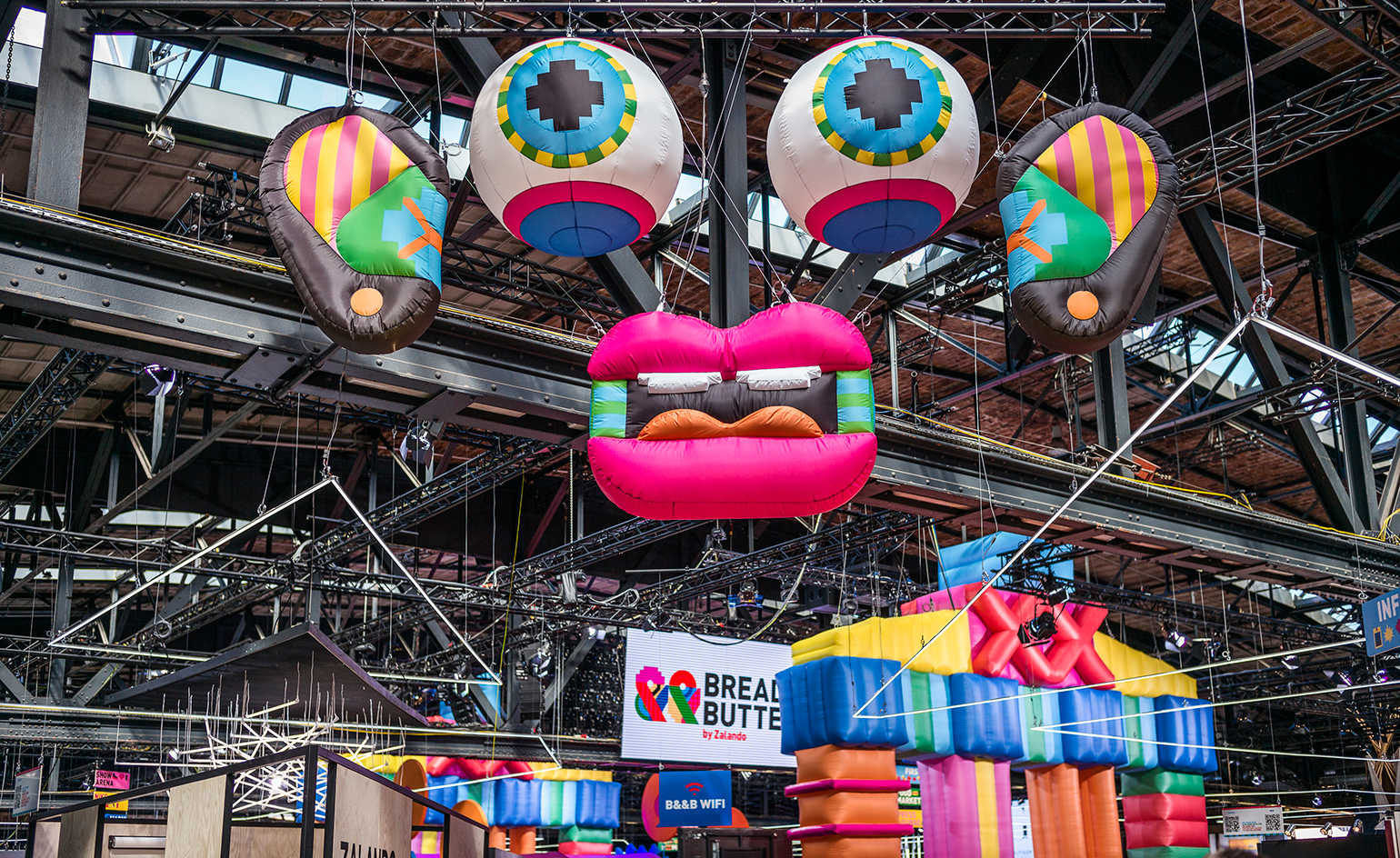
Craig & Karl for Bread & Butter
Arena Berlin, Eichenstraße, Berlin
A trail of installations can be found around the bustling, cavernous warehouse, which plays host to an emoji-inspired collage of balloons, giving new meaning to the word 'pop-up'.
The trade show, which integrates fashion, food and music, required a broad, all-encompassing graphic motif. As Craig & Karl explain, 'The flexibility of the approach meant the artwork could be pulled apart and rearranged in myriad ways. The tone remained consistent but the message could be tailored to suit a particular medium or talk to a specific audience'
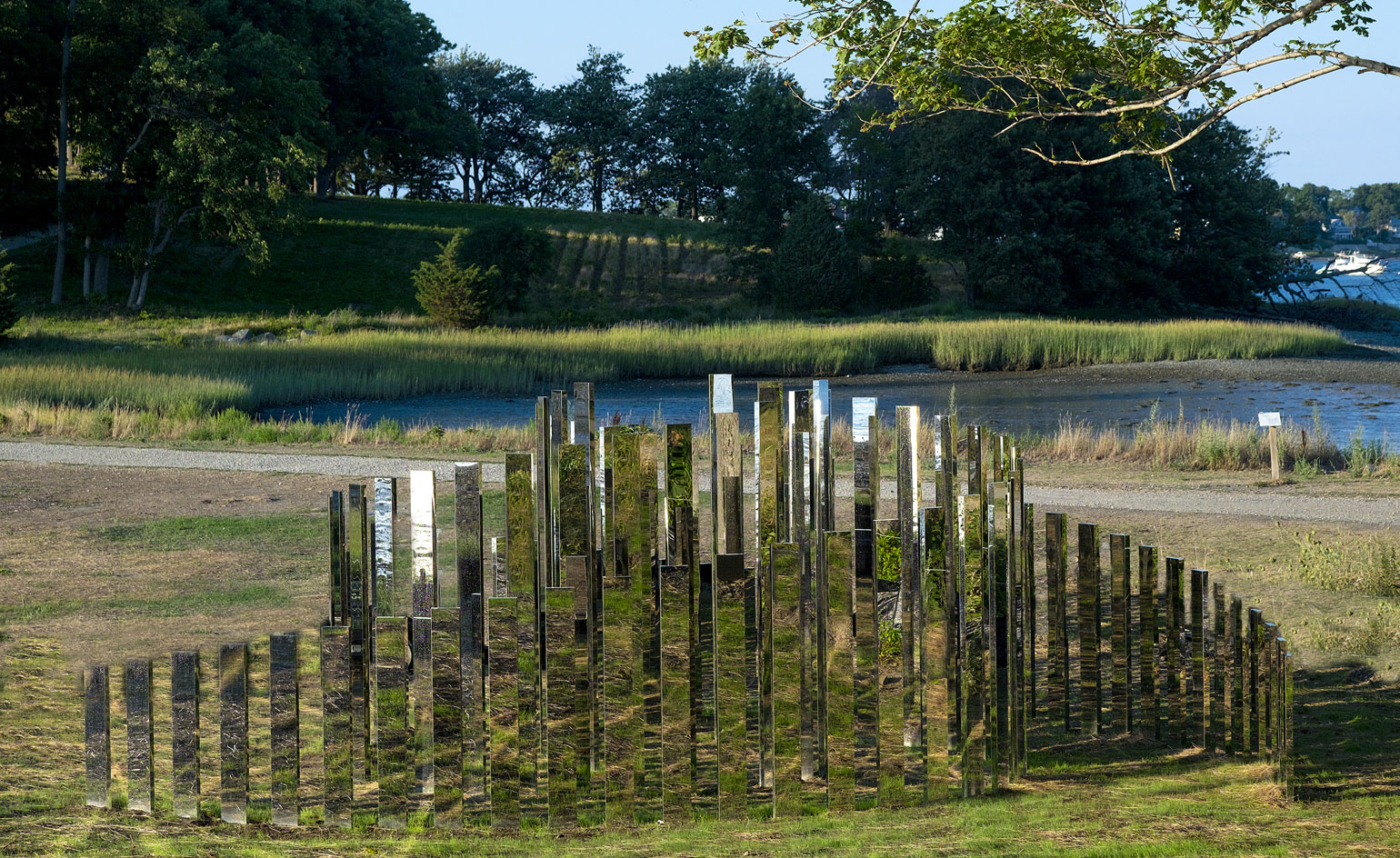
A New End by Jeppe Hein
World’s End, Massachusetts
Jeppe Hein’s transfixing mirrors is taking residence at World’s End in Hingham, Massachusetts. Titled A New End, the labyrinth is inspired by the snaking forms of the curvaceous hills surrounding World’s End.
Pictured: Installation view A New End, 2016, by Jeppe Hein at World’s End in Hingham, MA.
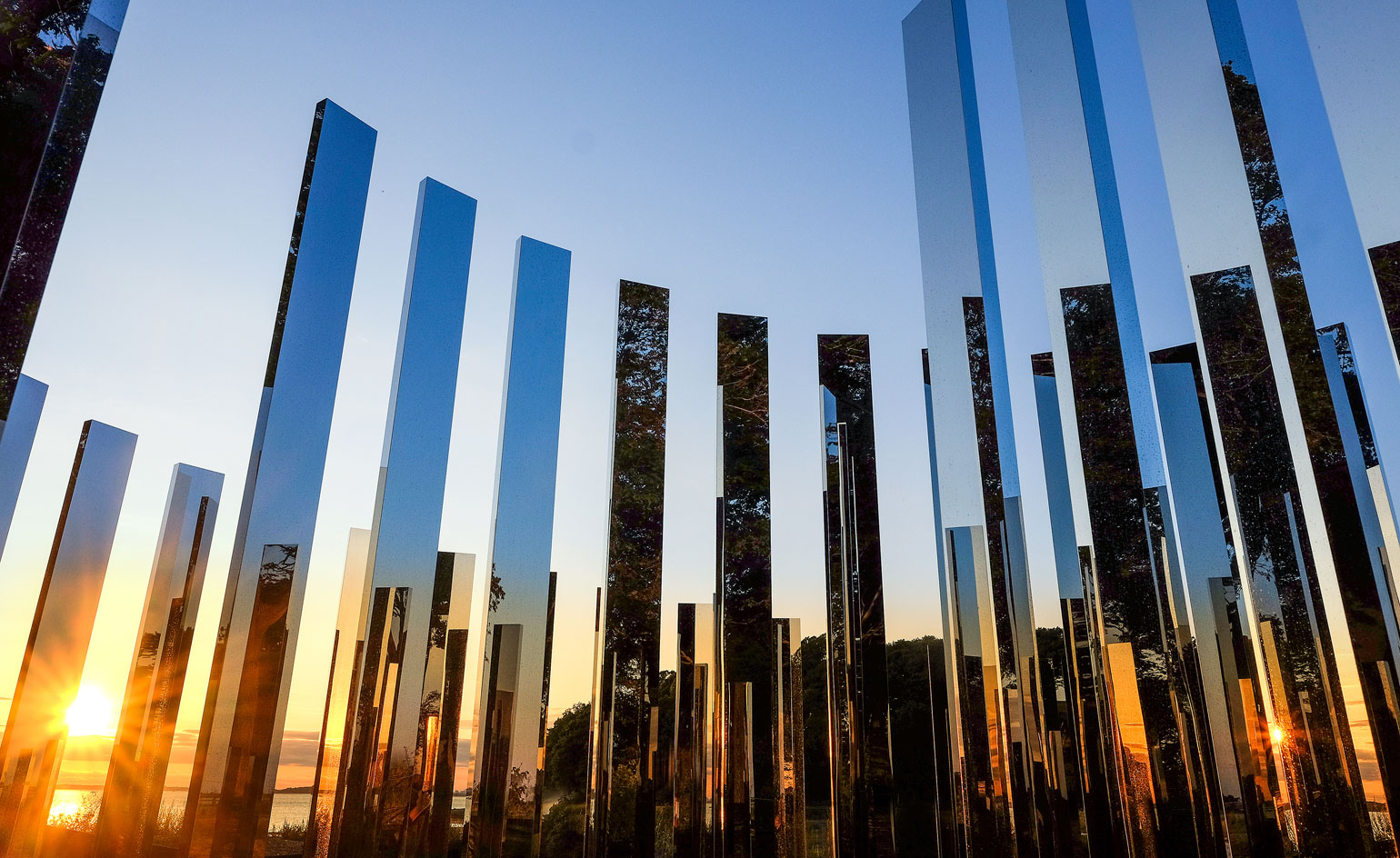
Hein’s three-foot mirrors have travelled in different variations, yet they always create a similar sensory experience that leaves visitors with skewed vision of space and awareness of dimensions around them.
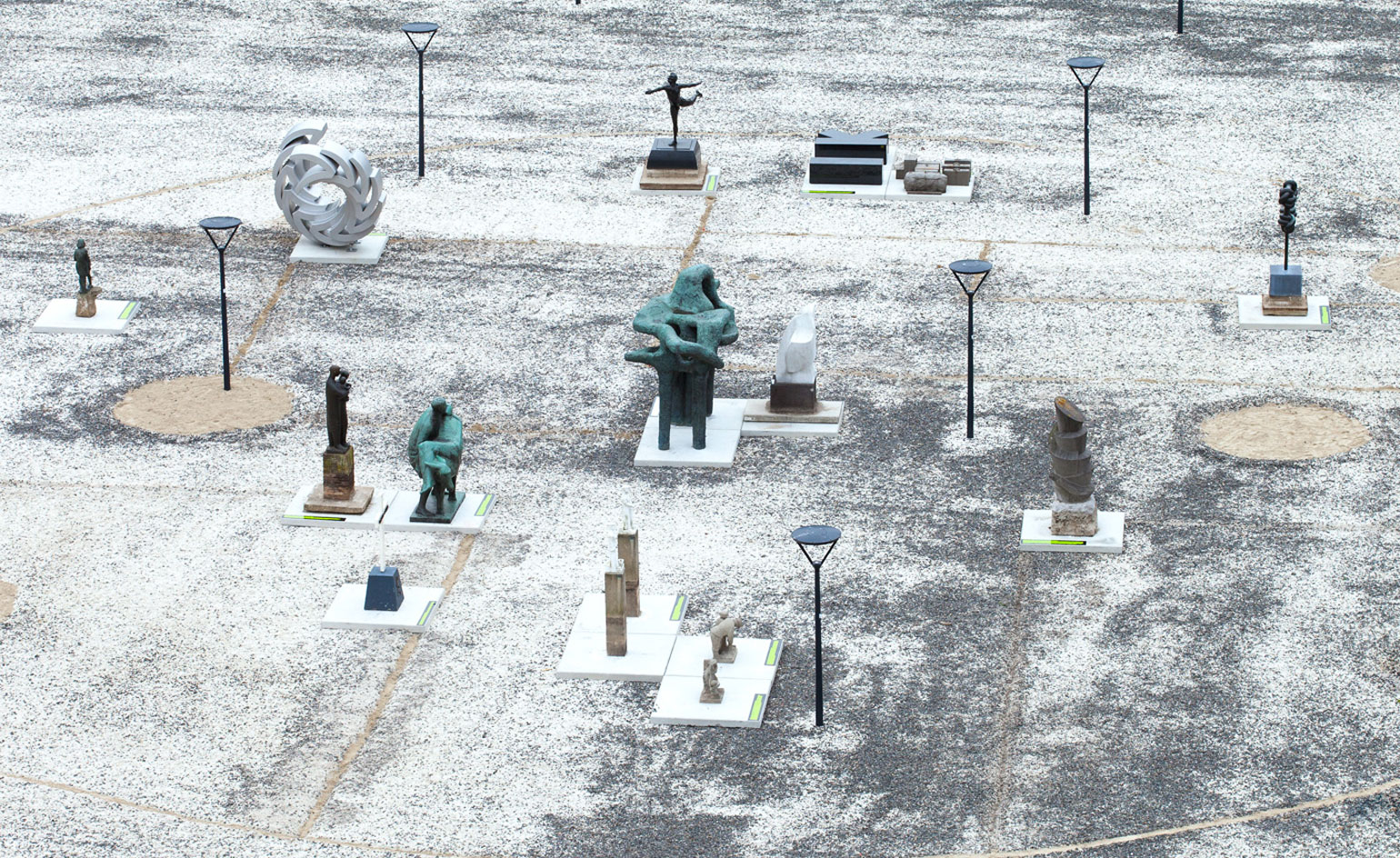
Uproot Rotterdam
Museum Boijmans Van Beuningen, Rotterdam, The Netherlands
A rediscovery of Rotterdam's post-war history is taking place this season in a project by by the Fine Arts & Public Space Programme at the Center for Visual Arts and Sculpture International Rotterdam. Curated by Studio Makkink & Bey, the architecture and design duo have physically uprooted some of the city's famous sculptures, placing them together in one location to create a new heritage narrative in a pop-up sculpture park at Museum Boijmans Van Beuningen.
Writer: Sujata Burman.
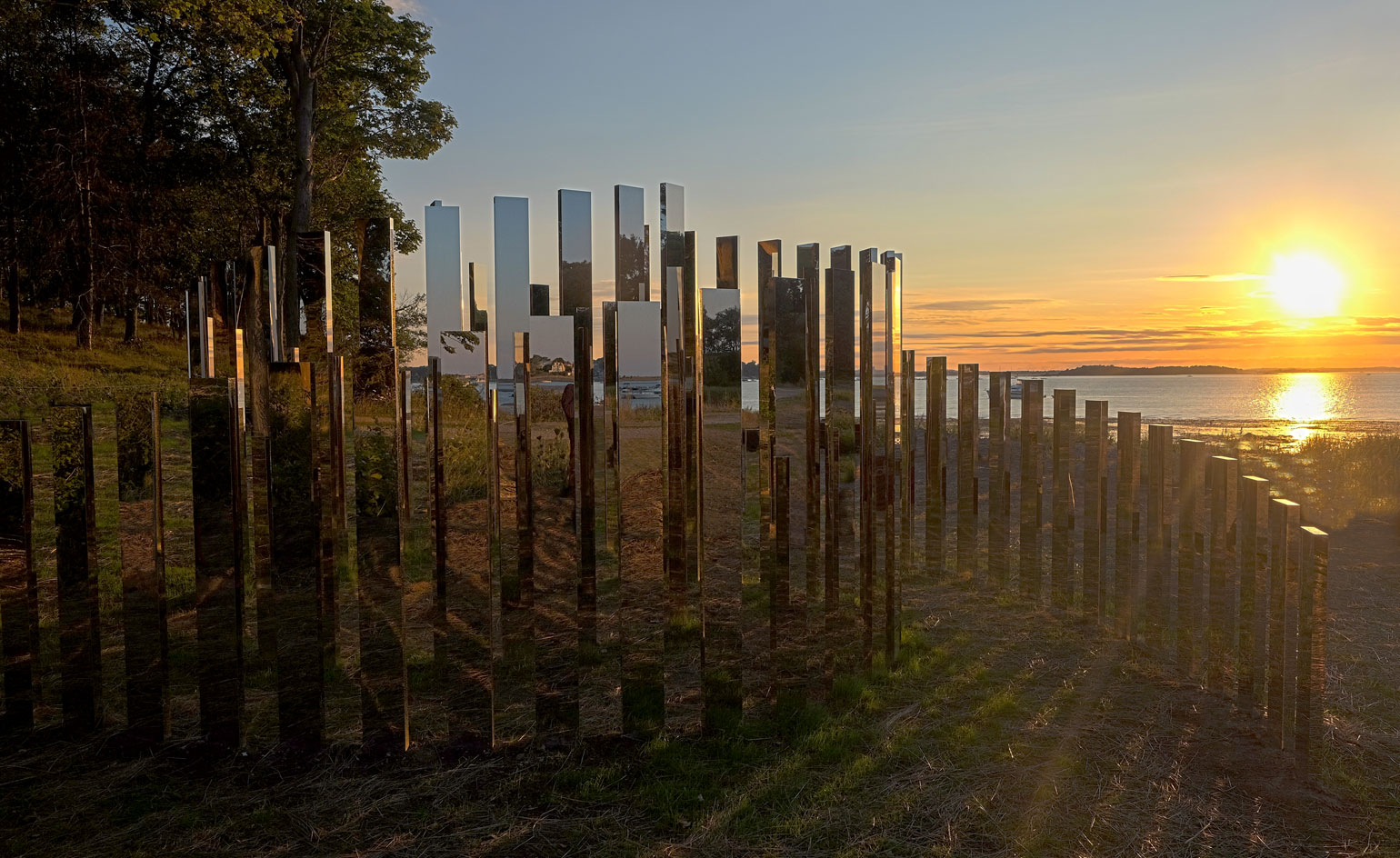
Lasting the entire year as part of 'Art and The landscape' exhibition presented by The Trustees of Reservations, the immersive installation will be given the chance to embrace its various different perspectives, from birds eye to sunset view.
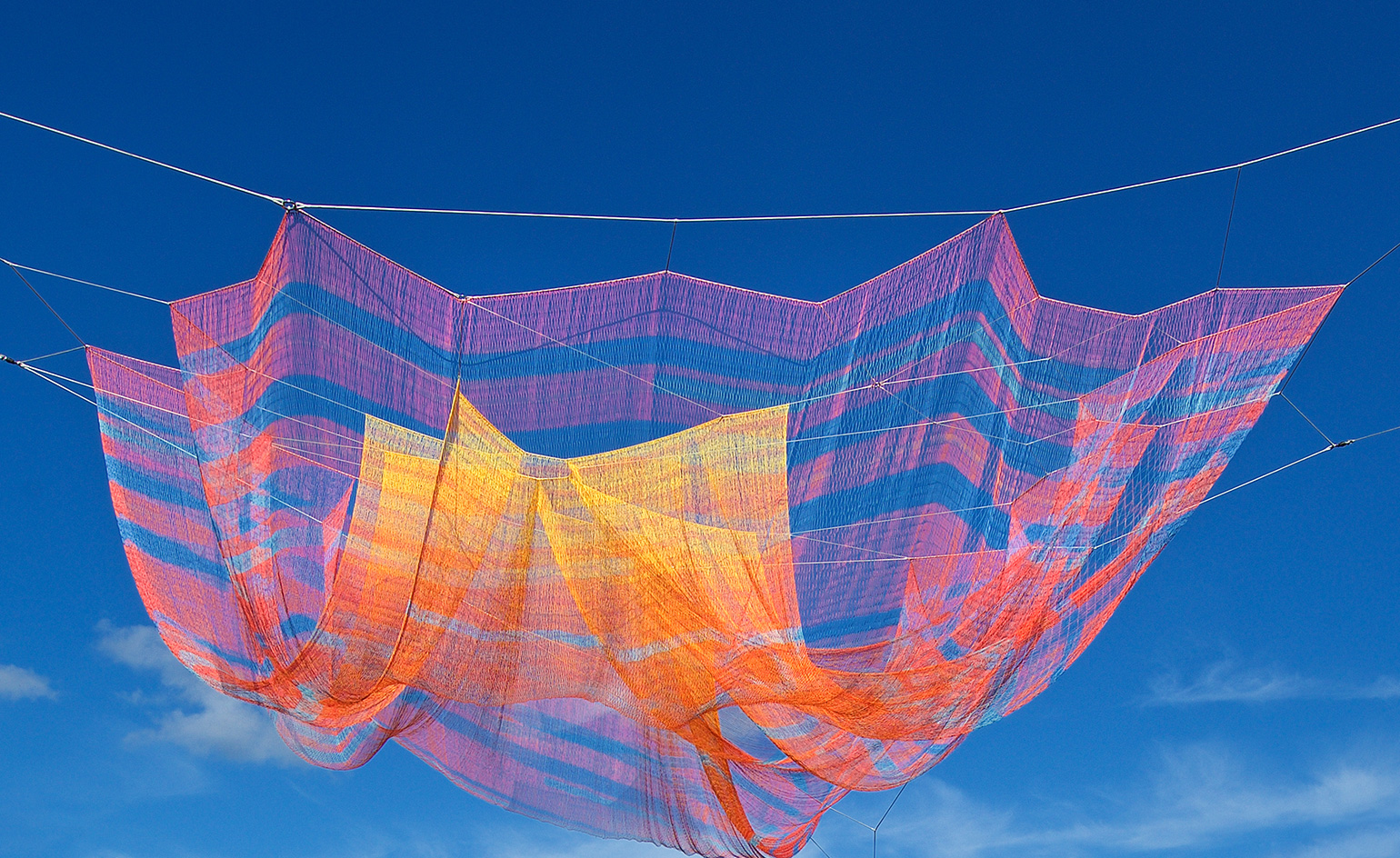
Where we Met, by Janet Echelman
Greensboro, North Carolina
This week, the newest sculpture by internationally renowned artist Janet Echelman opened to the public in downtown Greensboro, North Carolina. The monumental work, made of 35 miles of technical fibres crafted into 242,800 knots, floats as a multicoloured cloud above the new LeBauer City Park. The commission was supported by a grant from the Edward M. Armfield Sr. Foundation, which commissioned The Community Foundation’s Public Art Endowment to manage and execute the project in collaboration with the artist
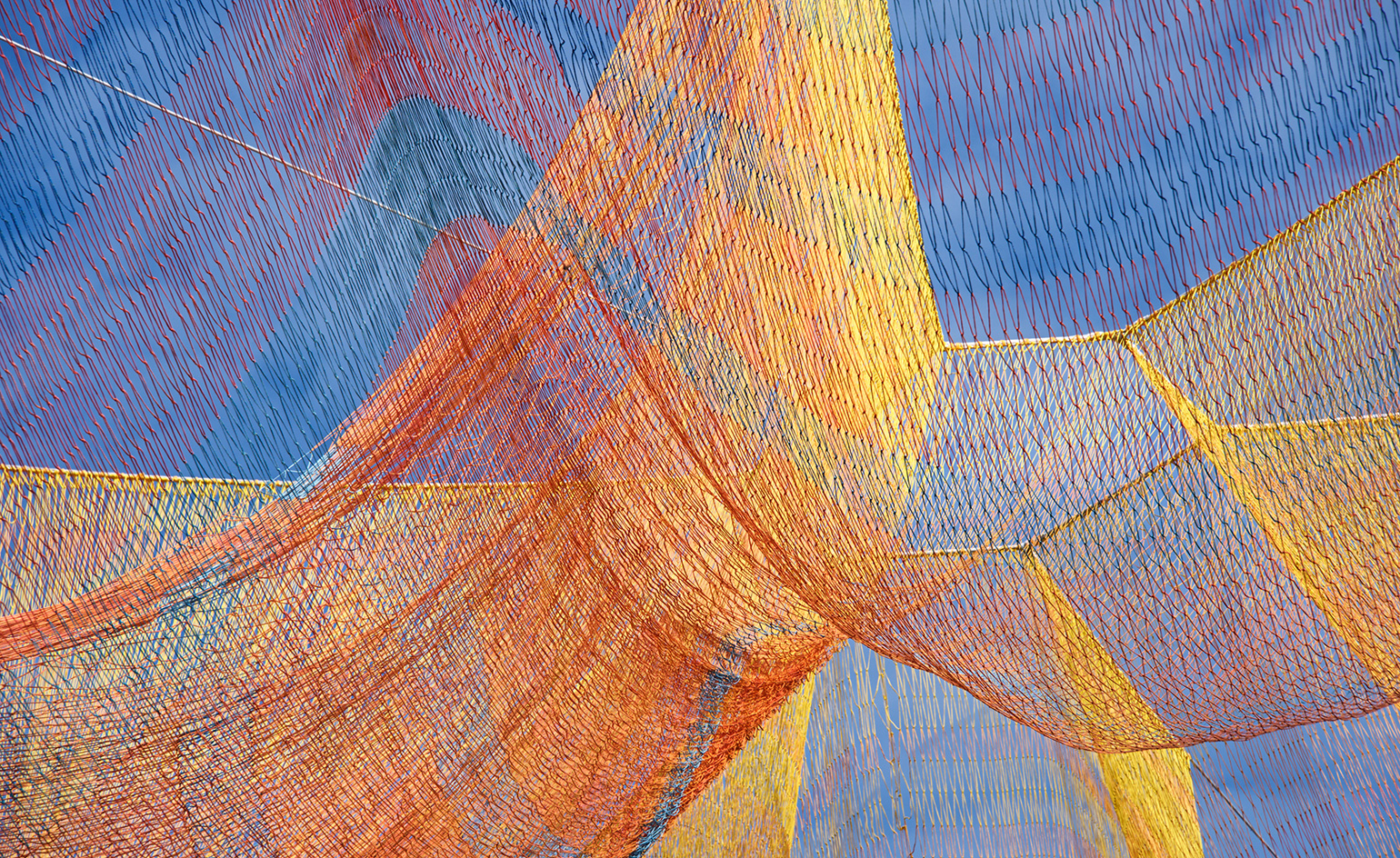
Animated by the breeze, the 200 ft artwork pulses, creating an ephemeral presence while giving visual form to Greensboro's textile tradition and history in the city’s Park. Indeed, Greensboro was nicknamed the 'Textile Capital of the World.' Janet Echelman explains, 'I started tracing the railway lines and marking the historic textile mills that dotted the routes. These routes brought together people from diverse cultures and races, so I wove together lines of brilliant colour that meet at the centre, and titled it Where We Met.'
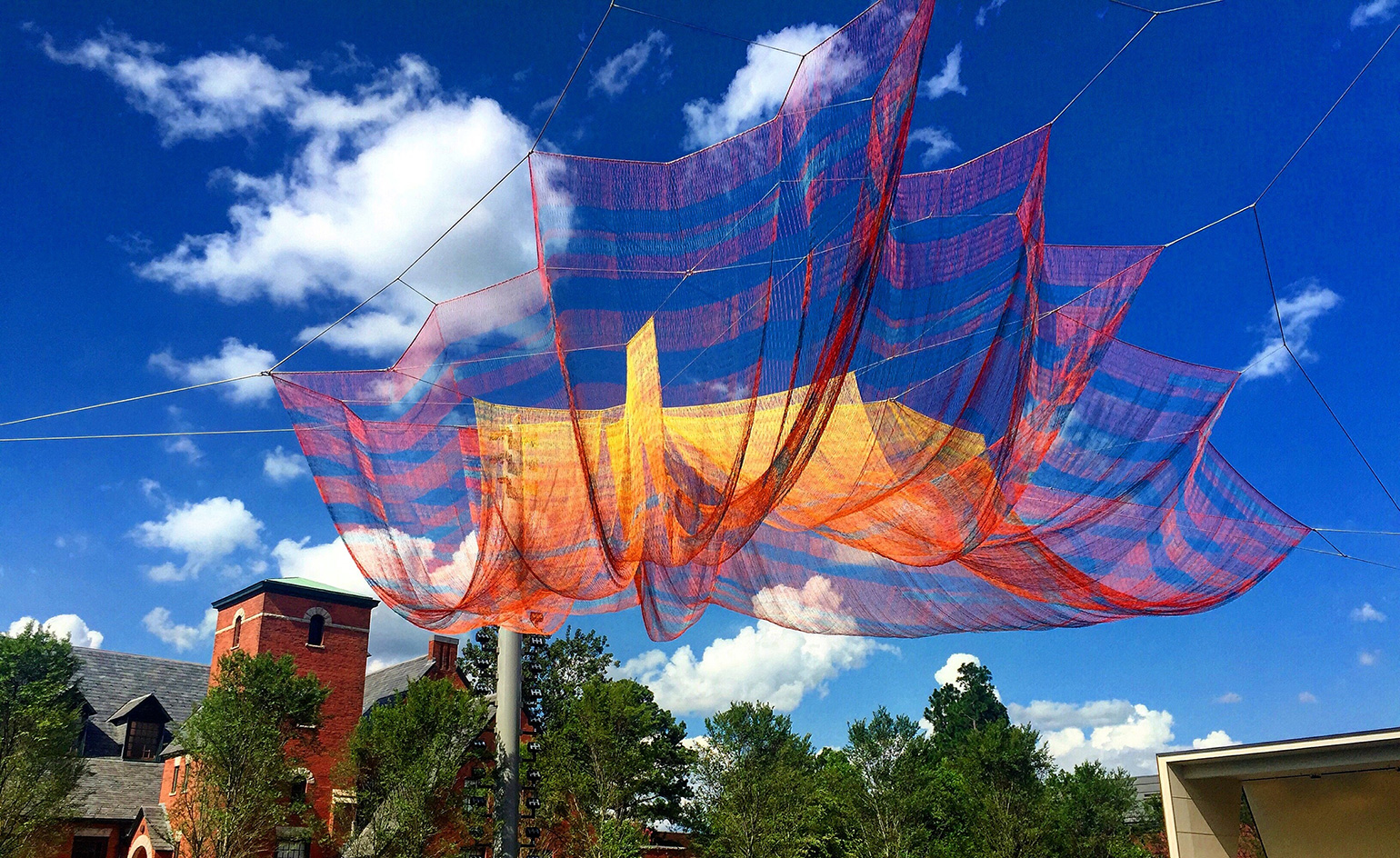
The sculpture's effortless floating belies its impressive engineering. Spanning 200 ft between 60 ft masts, each bearing up to 6 tonnes, the sculpture’s fibres are 15 times stronger than steel. Furthermore, designed to withstand the accumulated effects of sun and wind over time, they are also exceptionally colourfast, and have 100% resistance to UV radiation. Ever-changing shadows and shades of colour appear during the day, at night, however, coloured lights transform the sculpture's sunlit turquoise stripes into deep denim blues.
Writer: Alix Biehler.
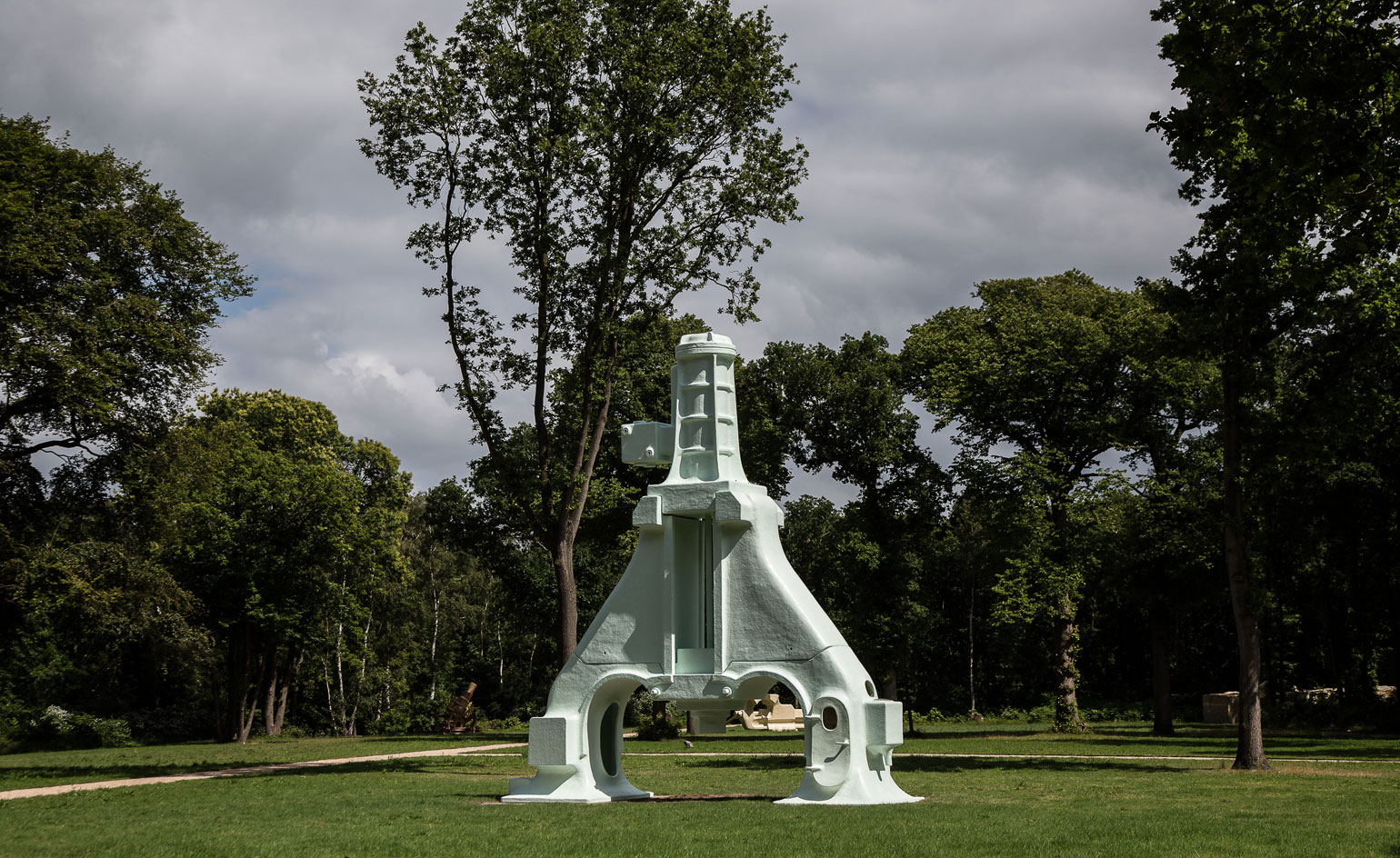
'The Good, The Bad and The Ugly'
Germany
Atelier Van Lieshout has returned to the German RuhrTriennale arts festival with an irreverent display of sculptural works, collectively entitled 'The Good, The Bad and The Ugly'. Dotted across the art village, this year’s additions are based on the dystopian theme 'Can we still separate man and machine?' Included in the selection is industrial piece Steam Hammer House (pictured) that merges man and machine with a human silhouette opening into a house incorporating a toilet and kitchen.
Writer: Sujata Burman
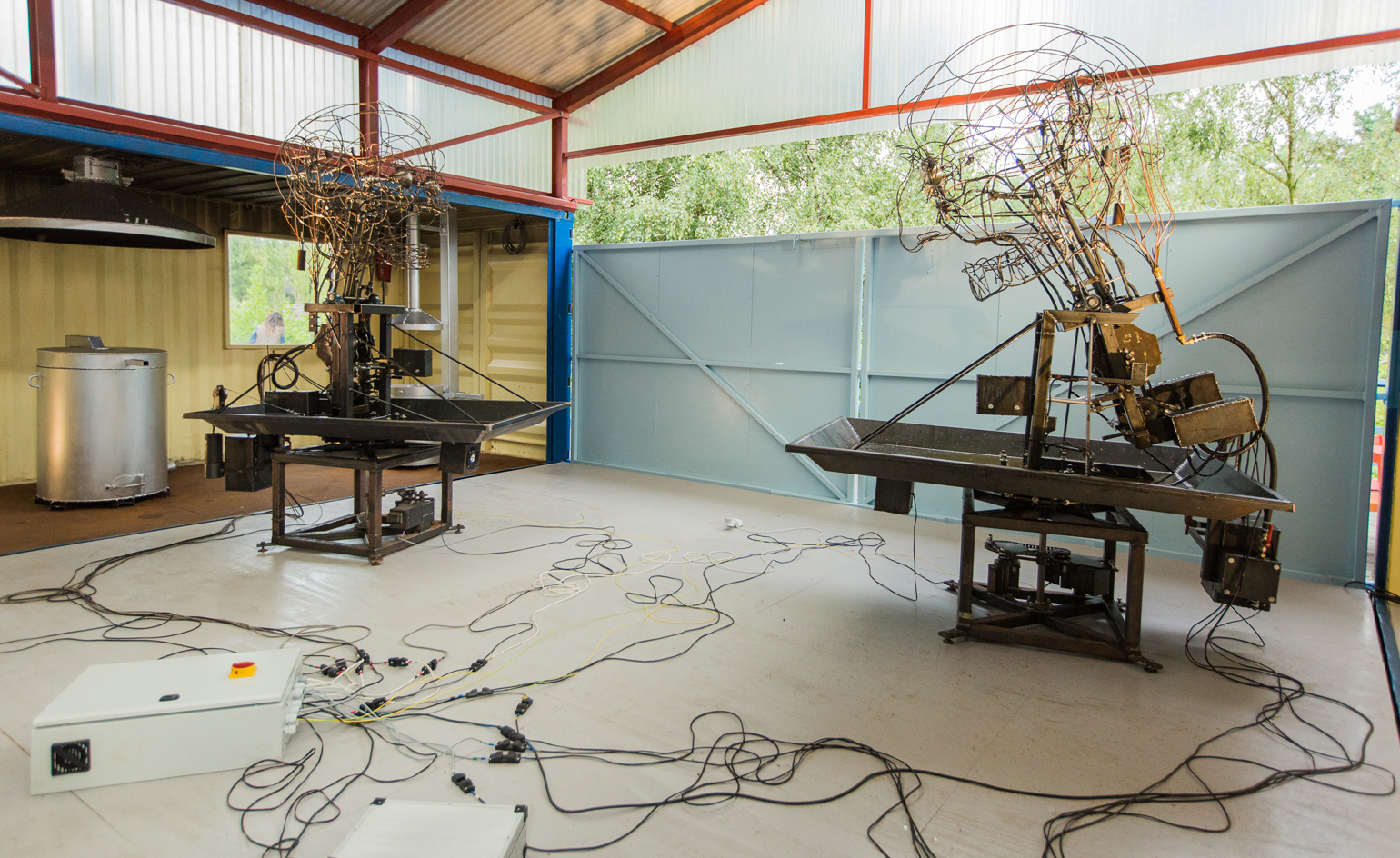
Elsewhere, Joep Van Lieshout’s newer work House of the Talking Heads takes on the concept of the humanisation of machines by way of two robotic wire skulls communicating with one another
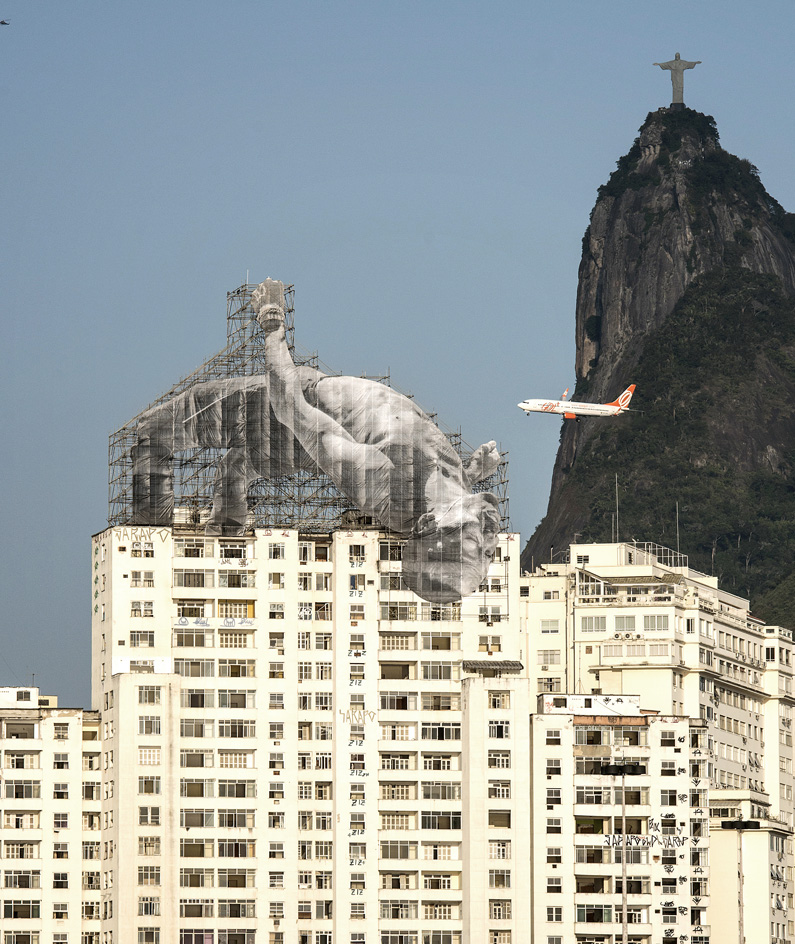
JR's Rio 'giants'
Continuing his 'Inside Out' project, French artist JR has created a trio of enormous, semi-transparent installations in Rio, celebrating the Olympic athletes he describes as 'giants'.
The first depicts an enlarged image of Sudanese high jumper Ali Mohamed Younes Idriss, Fosby-flopping over a 25-storey apartment block in the Flamengo district, under the gaze of Christ the Redeemer. Younes Idriss, the 7'5" African high-jump record holder, is only present at the Rio games in this larger than life form, after not making it through the qualifying rounds due to injury. If you're in the city catching the Olympic action, it's well worth heading to the former Porcão Rio, which is thought to be the best point to view Younes Idriss' herculean leap.
JR's second installation sees an anonymous diver plunge into the sea at Barra Beach, and the torso of a swimmer butterflying in Guanabara bay. The three works are JR's first to use industrial scaffolding, and his teasing Instagram hints that there's more to come.
Writer: Elly Parsons.
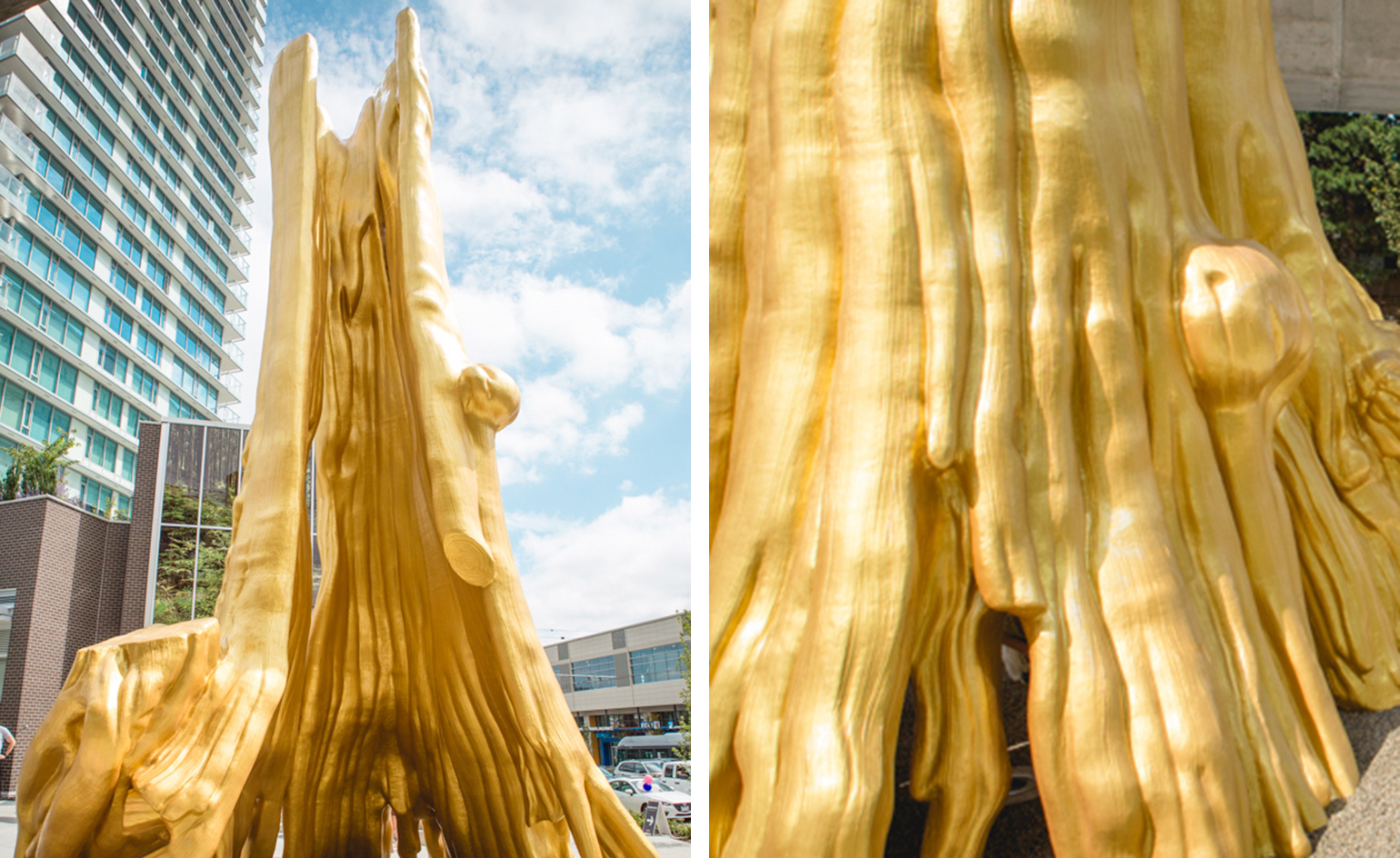
The Golden Tree by Douglas Coupland
Vancouver, British Columbia
Utilising 45 gallons of gold paint and 6,000 man hours, a gnarled tree has sprouted from the pavement in Vancouver's contemporary concrete jungle. Created by Canadian writer and artist Douglas Coupland for local housing design company Intracorp, the towering installation celebrates 25 years of Vancouver's Public Art Programme.
Stretching to 42 feet and weighing 15,875 kg, it's an exact replica of The Hollow Tree in Stanley Park, Vancouver's first ever documented public attraction, dating back to the 19th century. Historic photographs show revellers, and even cars, inside the 800-year-old Red Cedar. Coupland welcomes such frivolities within his creation, which he hopes will brighten an area he once thought 'spooky' and 'aura-less'.
The steel and fibreglass conifer also inaugurates Intracorp's James Cheng-designed MC2 residential tower, which itself aims to bring a bit of the natural world to city living, with plenty of outdoor community spaces, gardens and an open-air gym.
Writer. Elly Parsons.
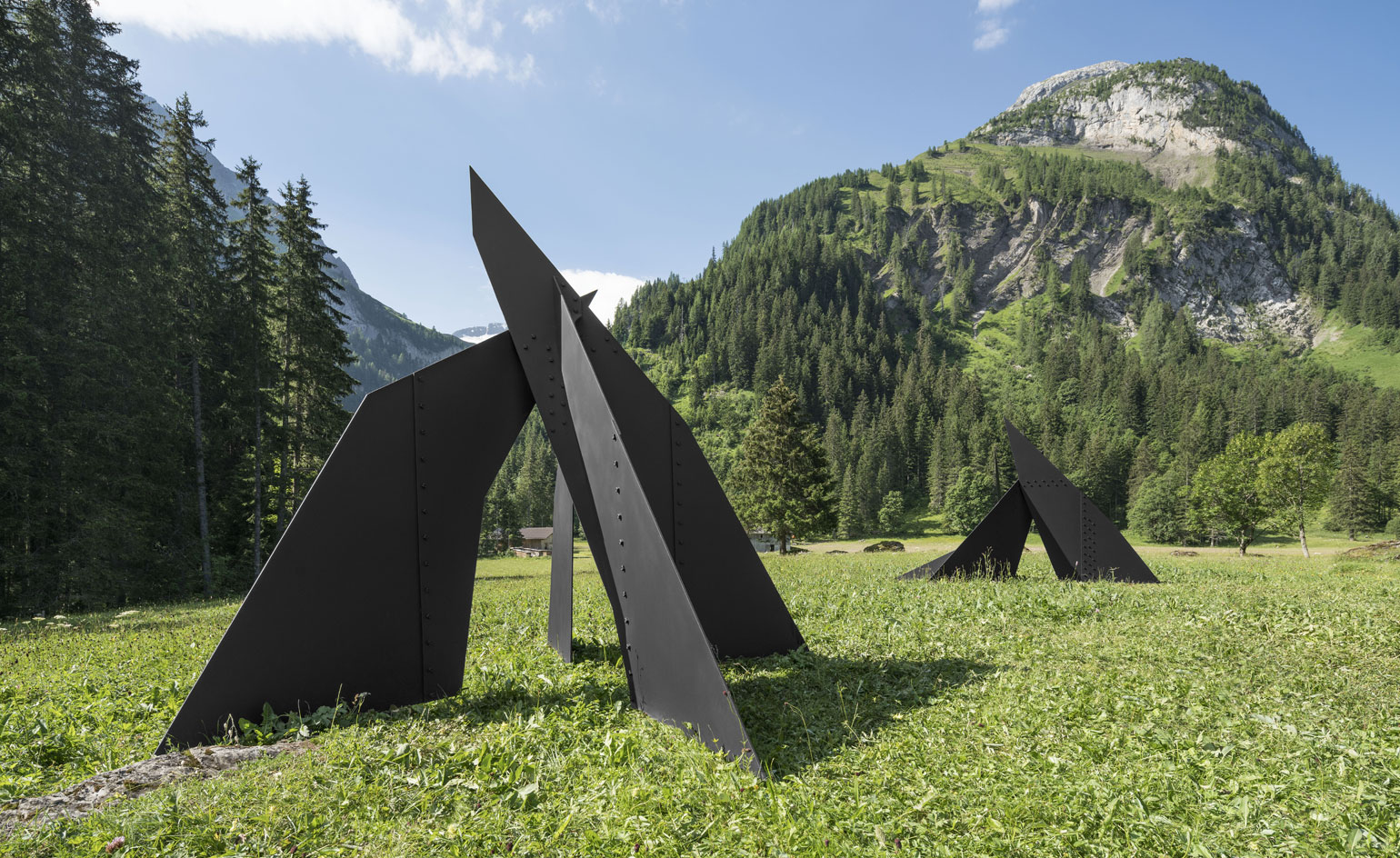
'Calder in the Alps' at Hauser & Wirth
Switzerland
This summer, Swiss gallery Hauser & Wirth presents an outdoor exhibition of monumental sculptures by Alexander Calder in Gstaad. Comprising a standing mobile and five stabiles from the 1960s and 70s, the works have been erected throughout the well-heeled alpine town, popping up in public locations including Saanen's church and Lake Lauenen. Pictured Six Planes Escarpé, 1967 and Four Planes Escarpé (1967) at the Lake.
Writer: Jessica Klingelfuss.
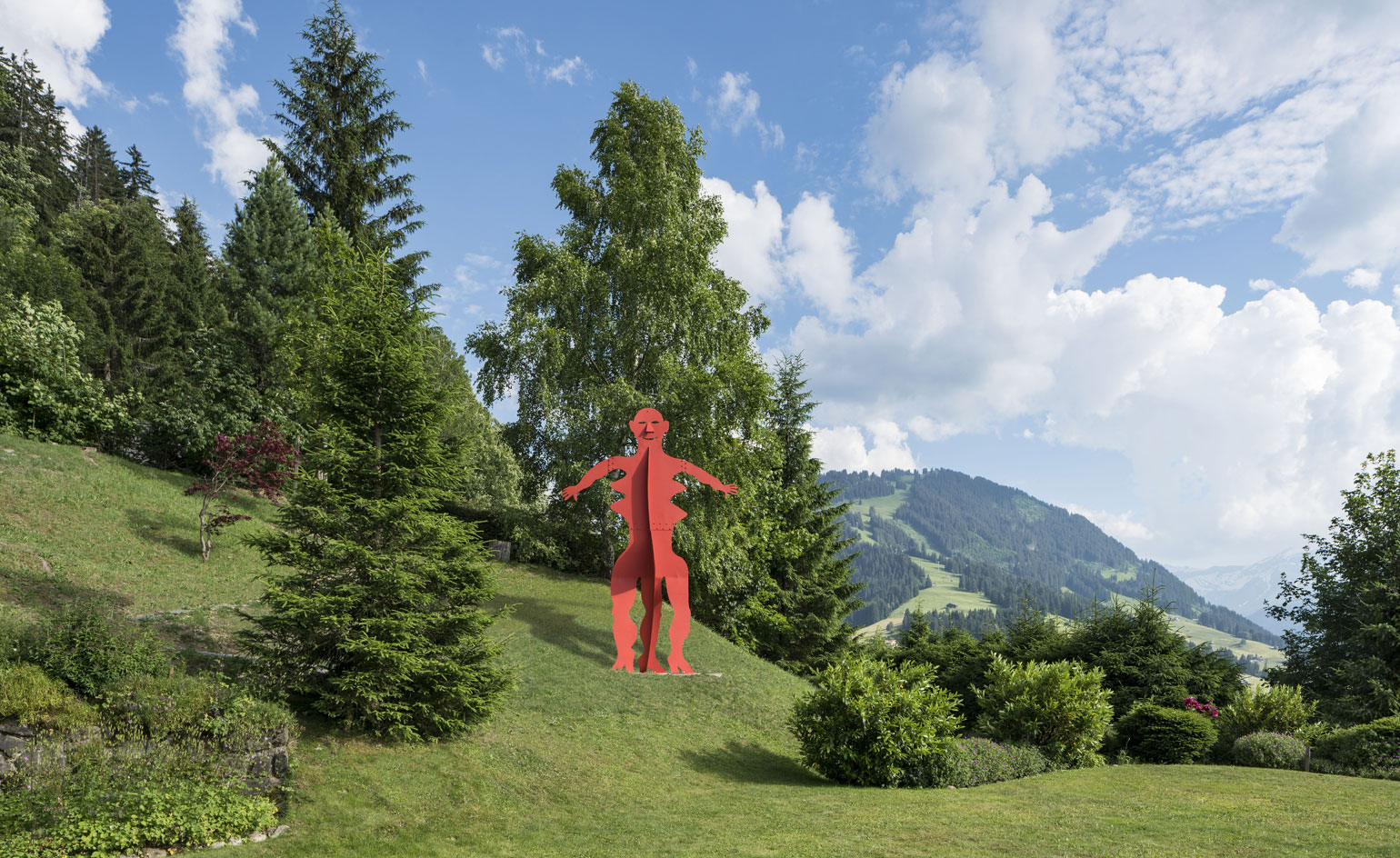
Calder Foundation president Alexander SC Rower says, 'Installed against the mountainous backdrop of Gstaad, these works will surely surprise viewers as they harmonise in unpredictable ways with their surroundings.’ Pictured: Untitled, 1976, at Oberbortstrasse 24, Gstaad.
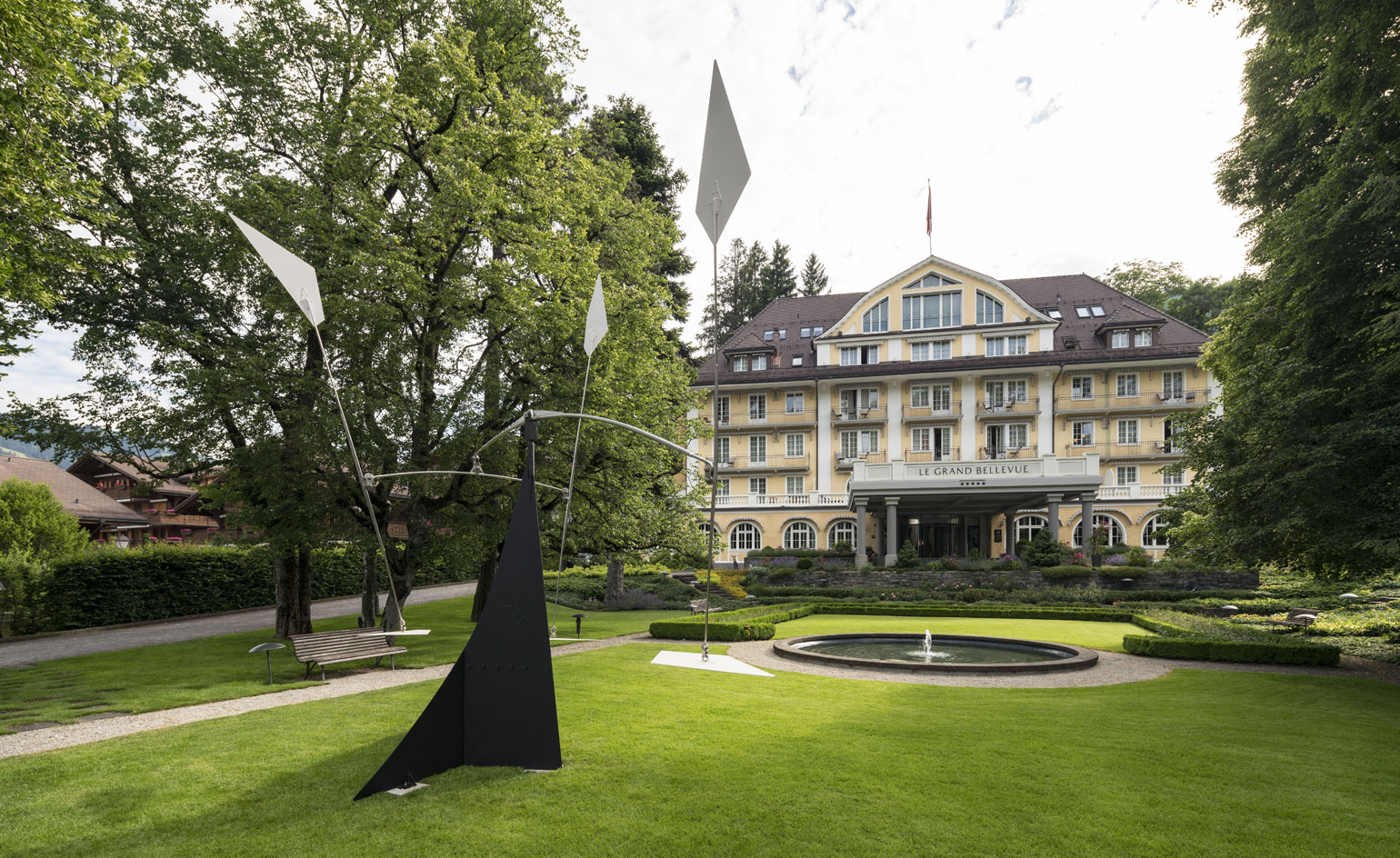
His dynamic stabiles come to life against the backdrop of towering mountains and verdant forests, as seen here at Le Grand Bellevue. Pictured: 3 flèches blanches, 1965.
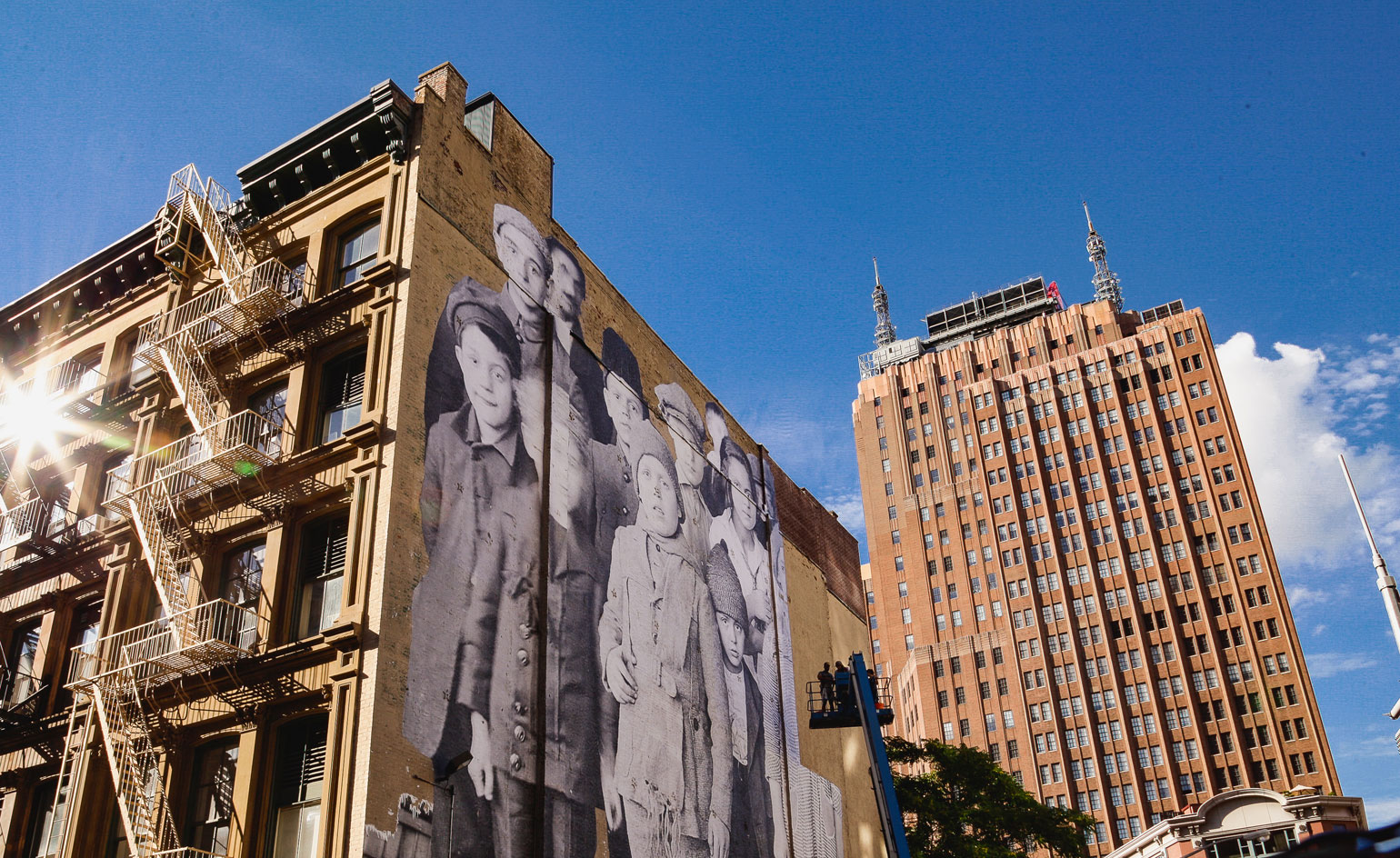
Mural by JR
Tribeca, New York
Eagle-eyed New Yorkers would have noticed a street corner in Tribeca that has been the subject of changing artwork. Starting at the end of 2015, a wall of developer DDG’s 100 Franklin Street site has served as a platform for the Parisian artist JR, who first plastered a 100-ft ballerina on it. This month, JR has returned with a 95-ft by 88-ft blow-up of a photograph from his ‘Unframed Ellis Island’ exhibition, which was originally taken in 1908.
Writer: Pei-Ru Keh.

Depicting a group of young immigrants, the seemingly innocent – yet haunting image – couldn’t be more tapped in to the state of the world today. The mural will be on display until at least the beginning of August.
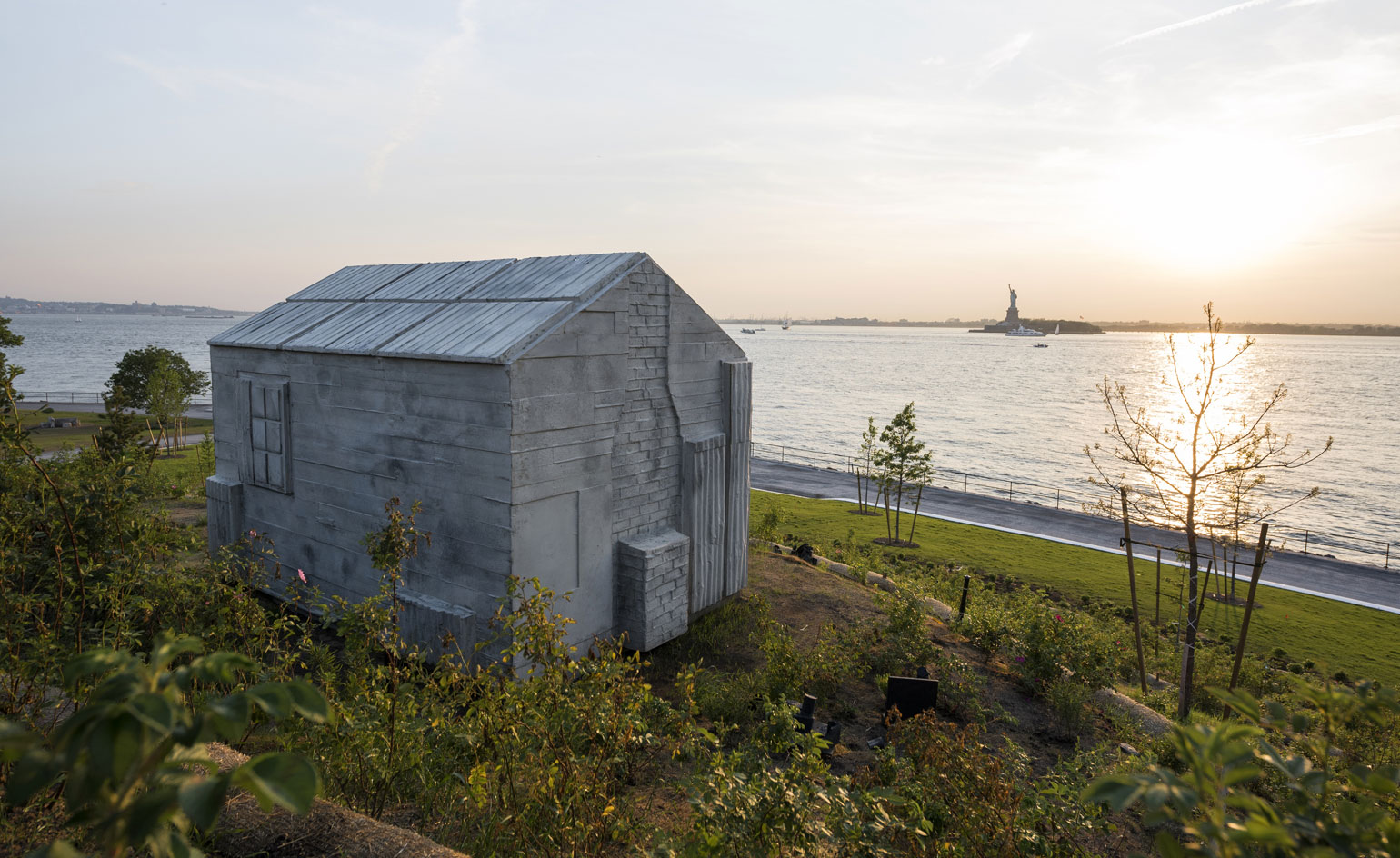
Cabin by Rachel Whiteread
Governors Island Park, New York
Turner Prize-winner Rachel Whiteread has planted a concrete cabin on The Hills of Govenors Island. Evoking the slightly eerie and mysterious nature of her work, the bleak structure is at one with the landscape, offering up epic views of the metropolitan city just across the water.
Writer: Sujata Burman.
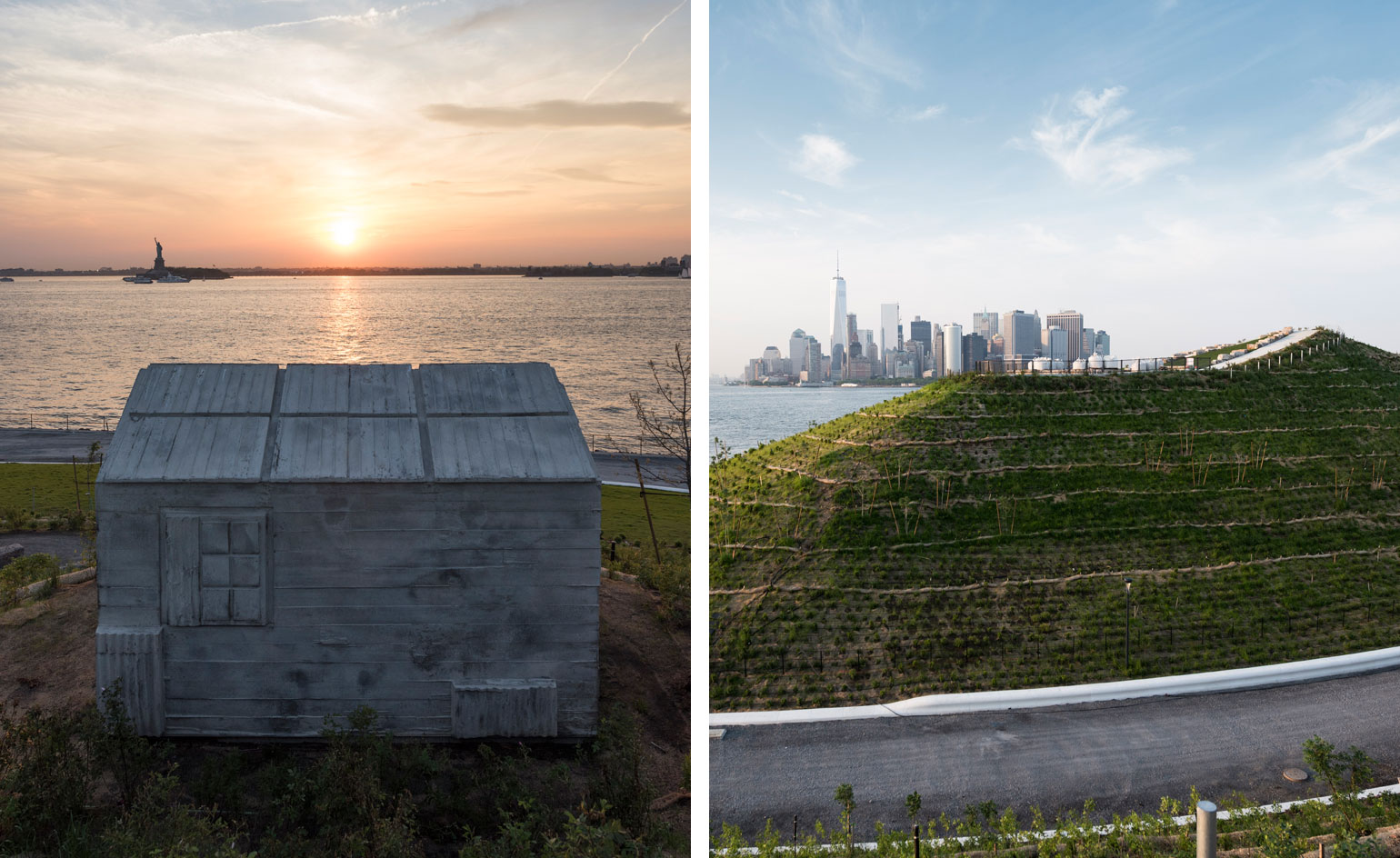
The shed-like structure appears as a hideaway from the bustle of city life. Though set to remain indefinitely, the uncanny artwork will be open to the public until 25 September.
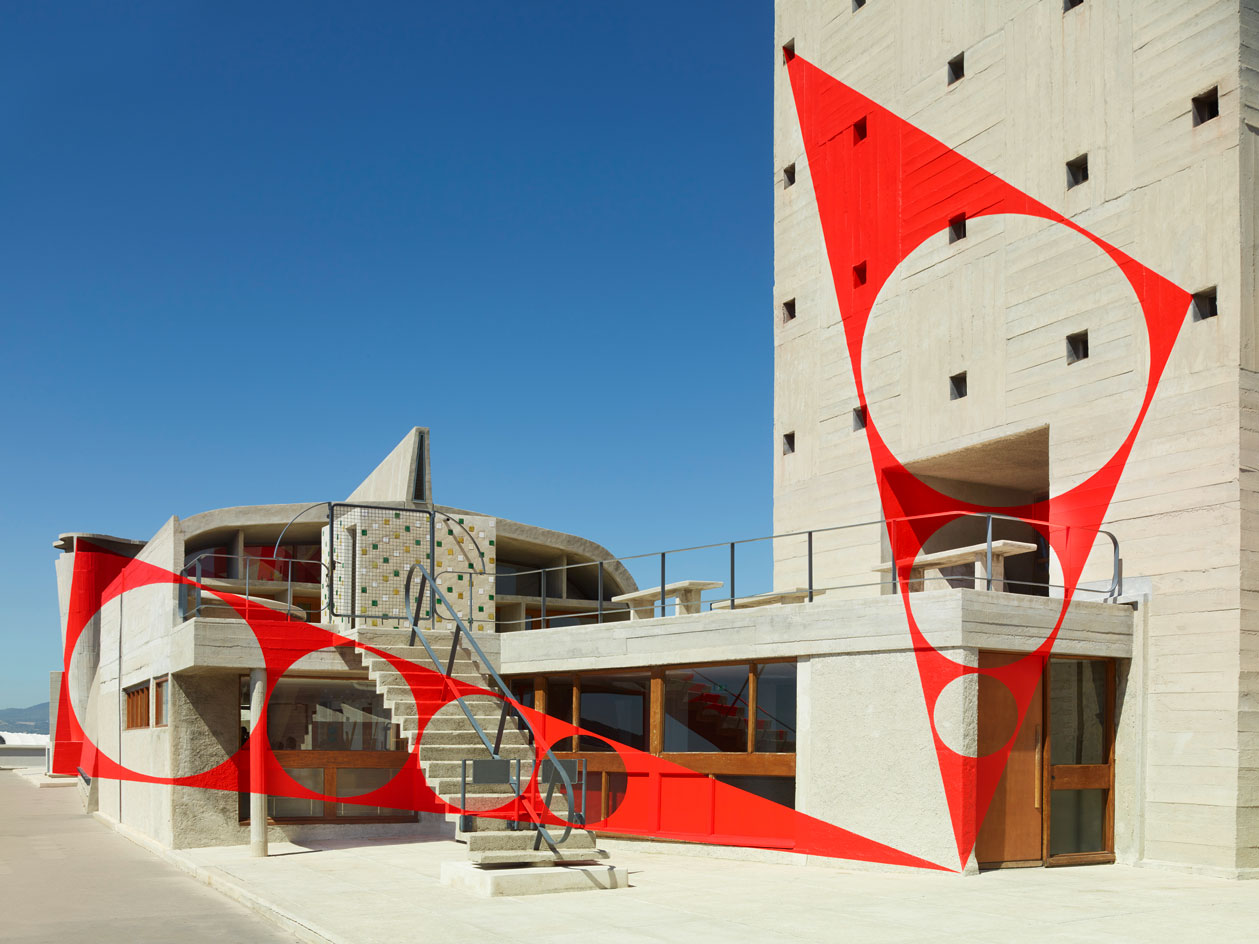
À Ciel Ouvert by Felice Varini
Marseille, France
Felice Varini has applied his optical illusion art to the concrete rooftop of Le Corbusier's Cité Radieuse. With two works outside and a third within, À Ciel Ouvert skims, dives, criss-crosses and swirls over various regions of the rooftop so that depending where a visitor stands, elements of each can be viewed simultaneously.
Writer: Amy Verner.
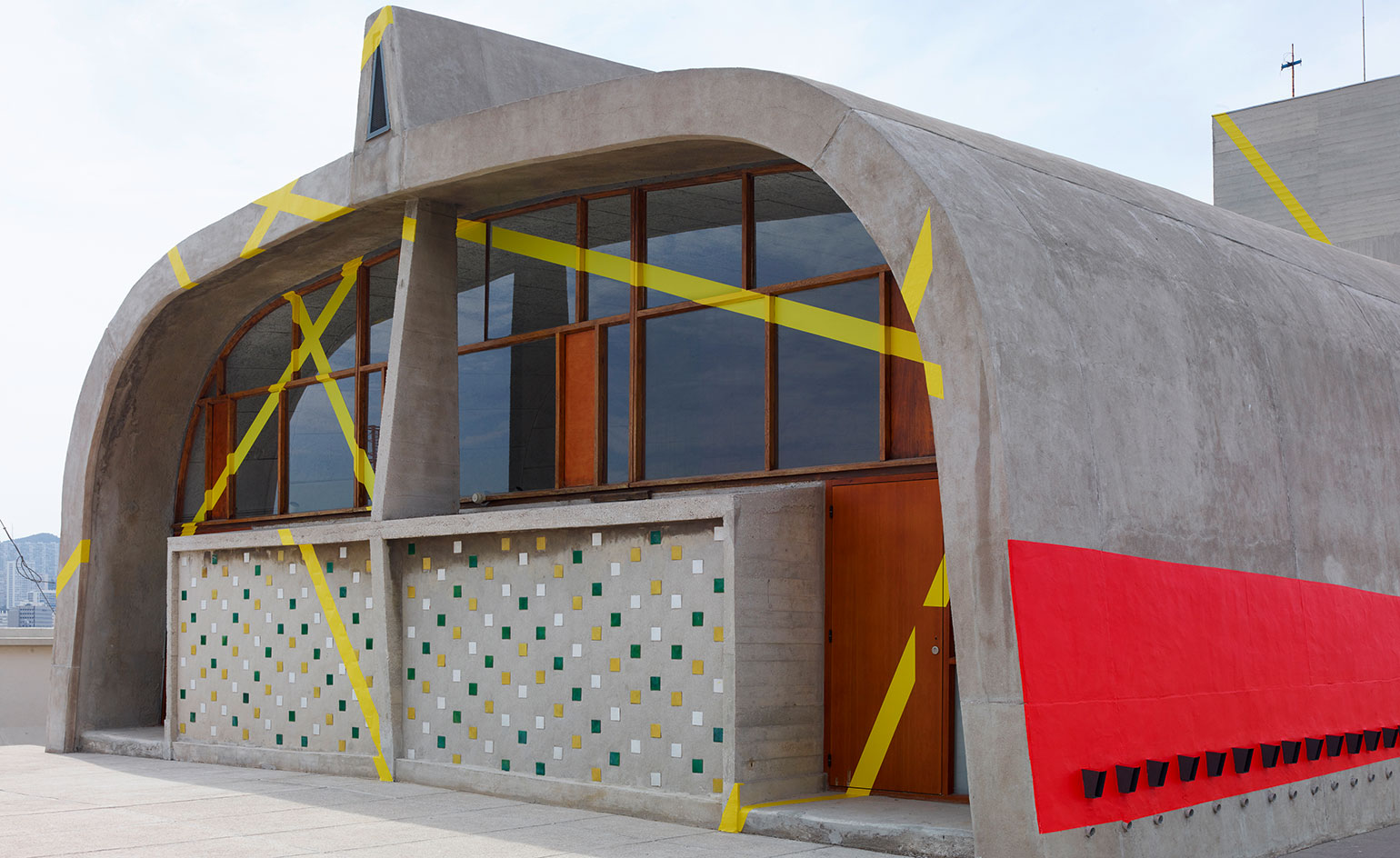
Designer Ora Ito invited the artist for the fourth annual edition of his artist intervention series, and the result is a dimensional dance of colour and form. The overlap between Varini’s yellow and red echo the hues that punctuate the Cité Radieuse, and have an especially meditative effect.
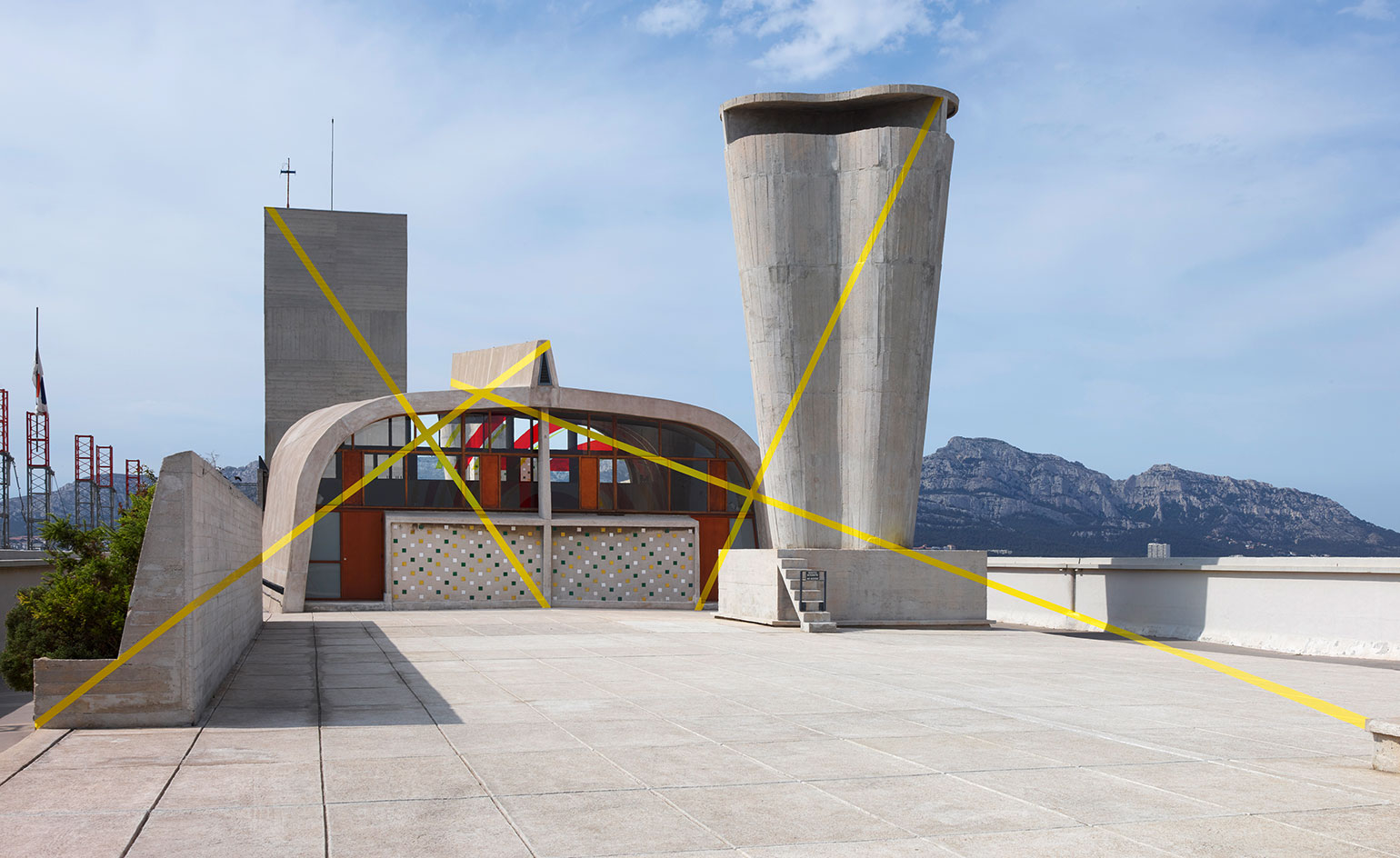
Ito confessed that Varini is one of the few artists whose work he could project onto such an unconventional combination of vertical and horizontal structures – most notably, the boat-inspired funnel chimney.
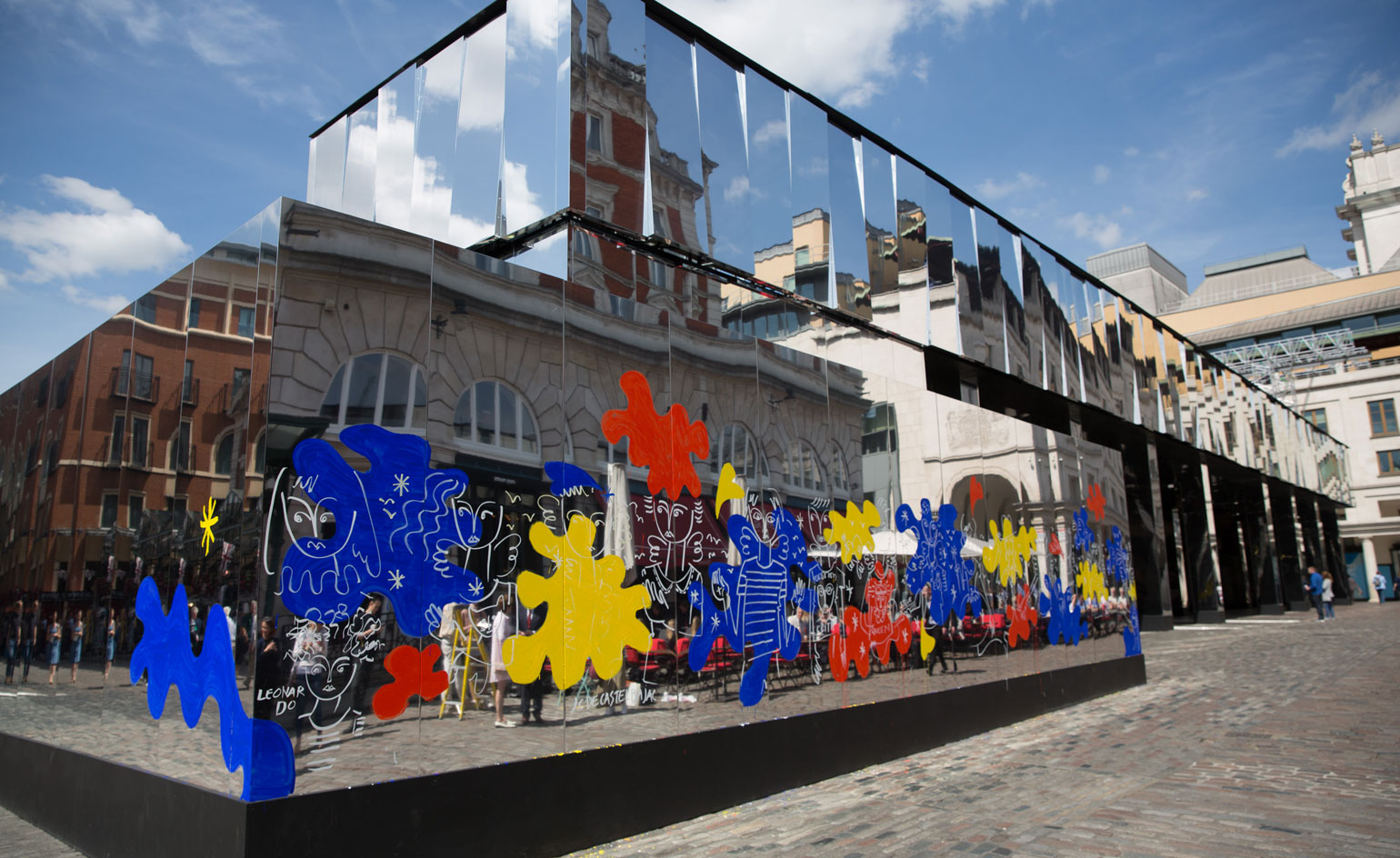
Colourful clouds by Jean-Charles de Castelbajac
London
Pop art comes to London's Covent Garden with these murals by artist Jean-Charles de Castelbajac. Designed as part of ‘Covent Garden After Hours’, the primary hued whimsical clouds were created on site for the public to watch. The performance piece is layered onto the Reflect London mirrored installation for added impact during the nighttime shopping event
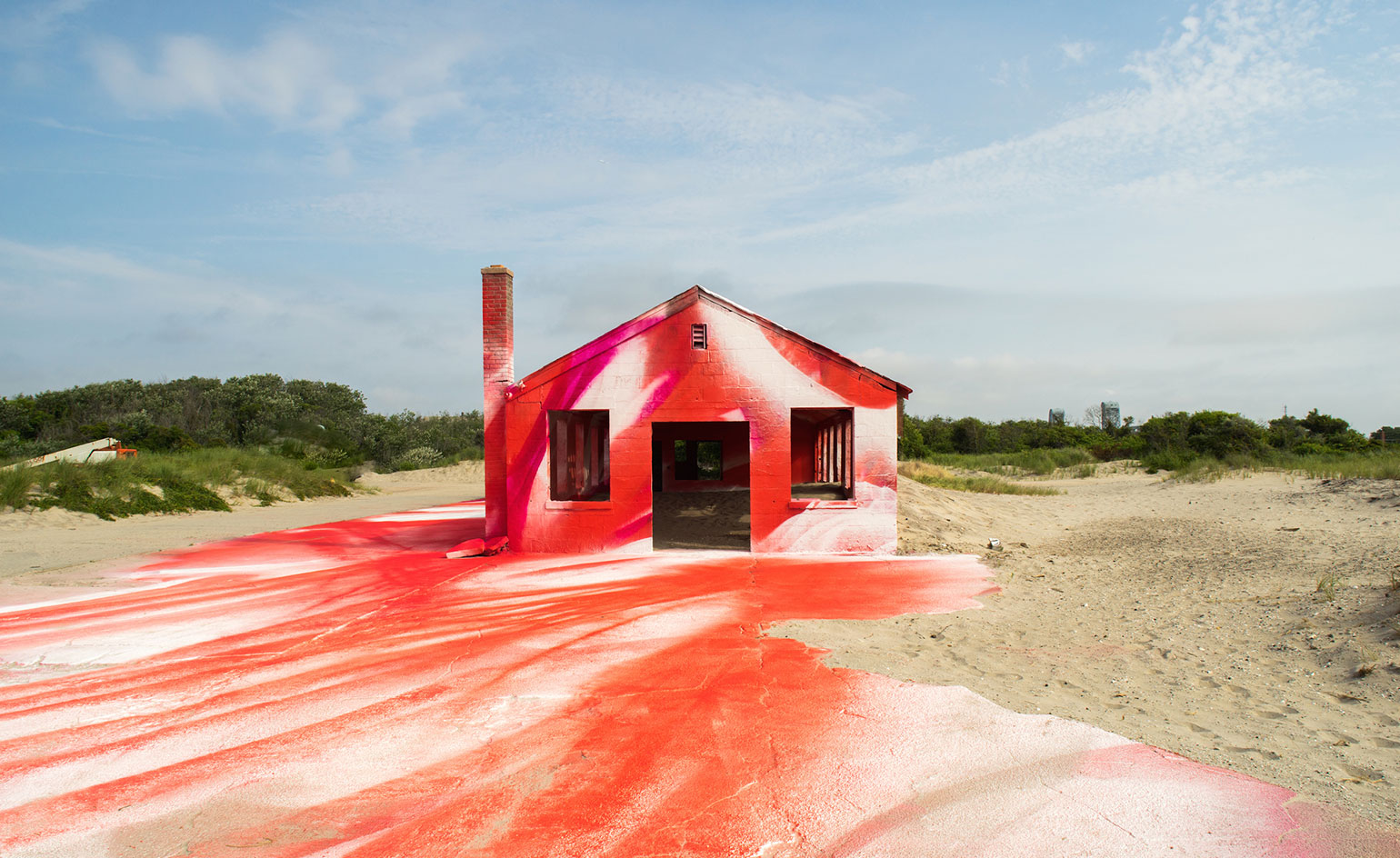
Rockaway by Katharina Grosse
New York, USA
German artist Katharina Grosse's latest installation, Rockaway!, features her signature spray-paint technique on a condemned building that rises from the sand dunes on New York’s Fort Tilden beach. On view until November, the installation was created as part of MoMA PS1’s programming in Rockaway, New York, which aids the ongoing recovery of the area after Hurricane Sandy hit in 2012.
Writer: Olivia Martin.

It took seven days to complete the project, with Grosse layering three different red paints on top of a white base coat – allowing the white to reflect the sky and bounce back light while the red confronts the viewer.
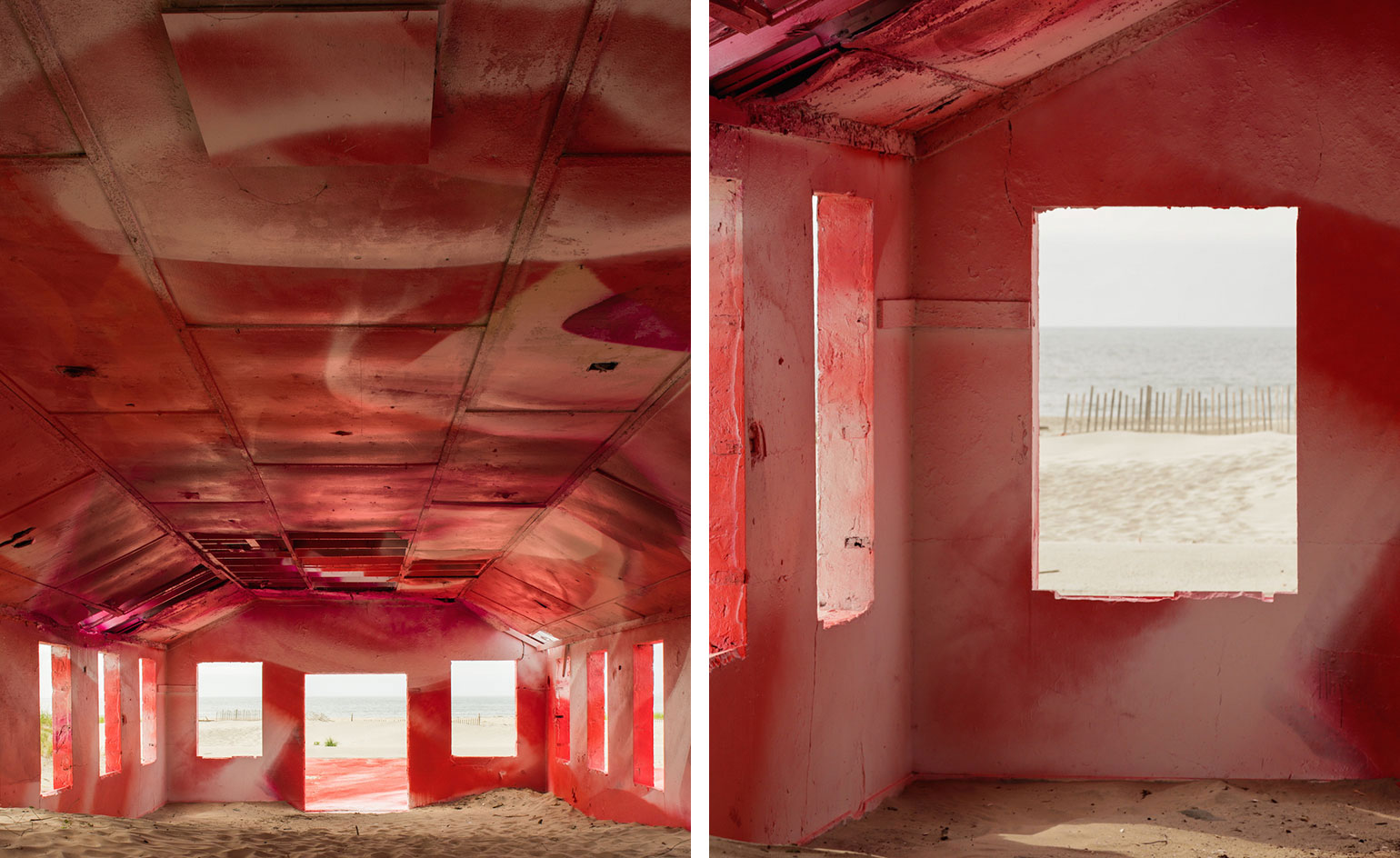
The project is fully immersive. ‘In here, I am inside and I am outside and I am relating it far more to its components like the sky and the sea and this open setting,’ Grosse says.
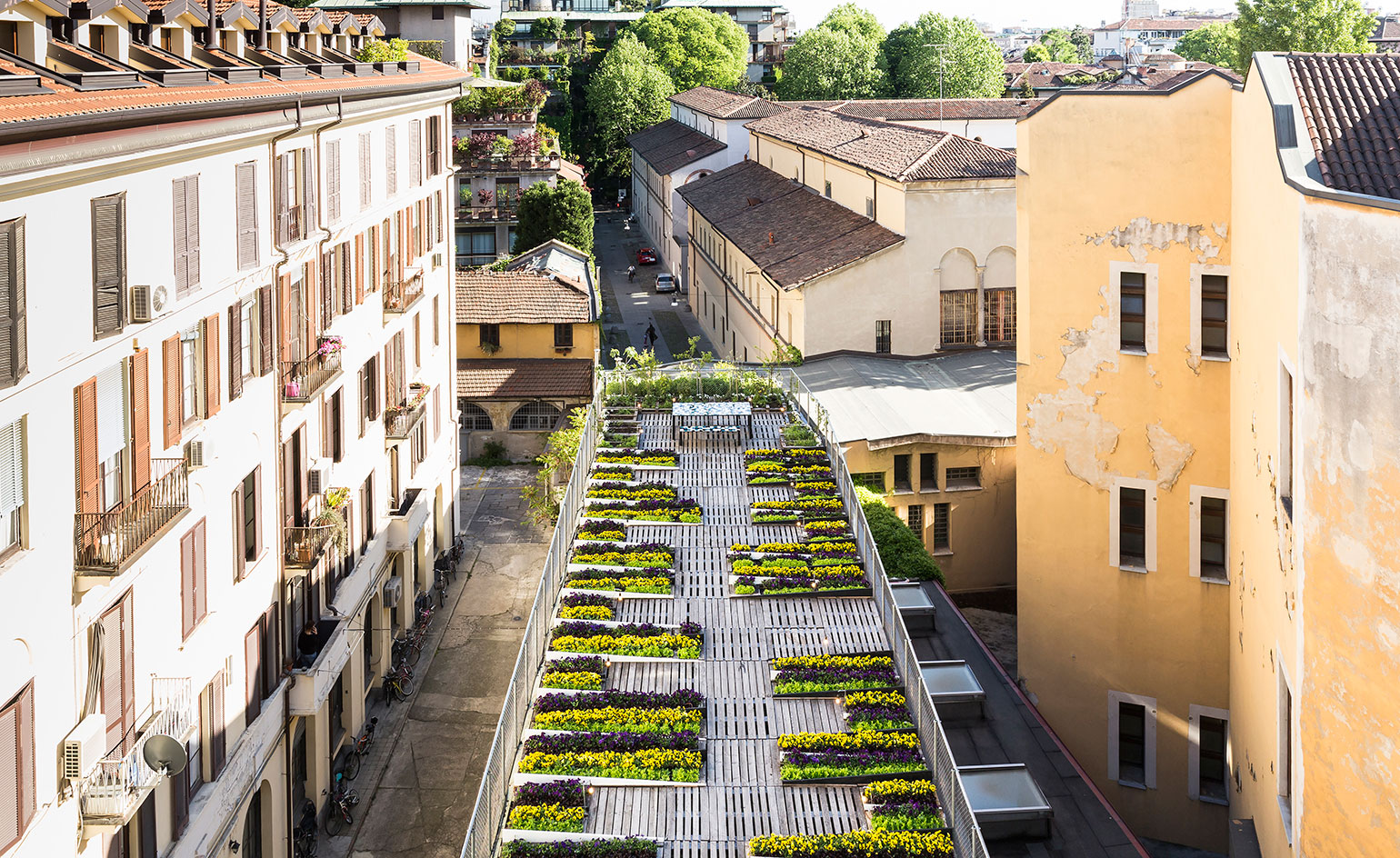
'Kinetic Garden' by Piuarch
Milan, Italy
Milan's Brera district is blooming this summer, courtesy of a vibrant botanical installation atop Piuarch's rooftop, a floral tribute to the kinetic artwork of Venezuelan artist Carlos Cruz-Diez. Created in collaboration with landscape architect Cornelius Gavril and unveiled at this year's edition of Salone del Mobile, the garden uses four different types of flowers, displayed in asymmetrical flower boxes and arranged to run the full length of the building.
Writer: Sophie Hillier.
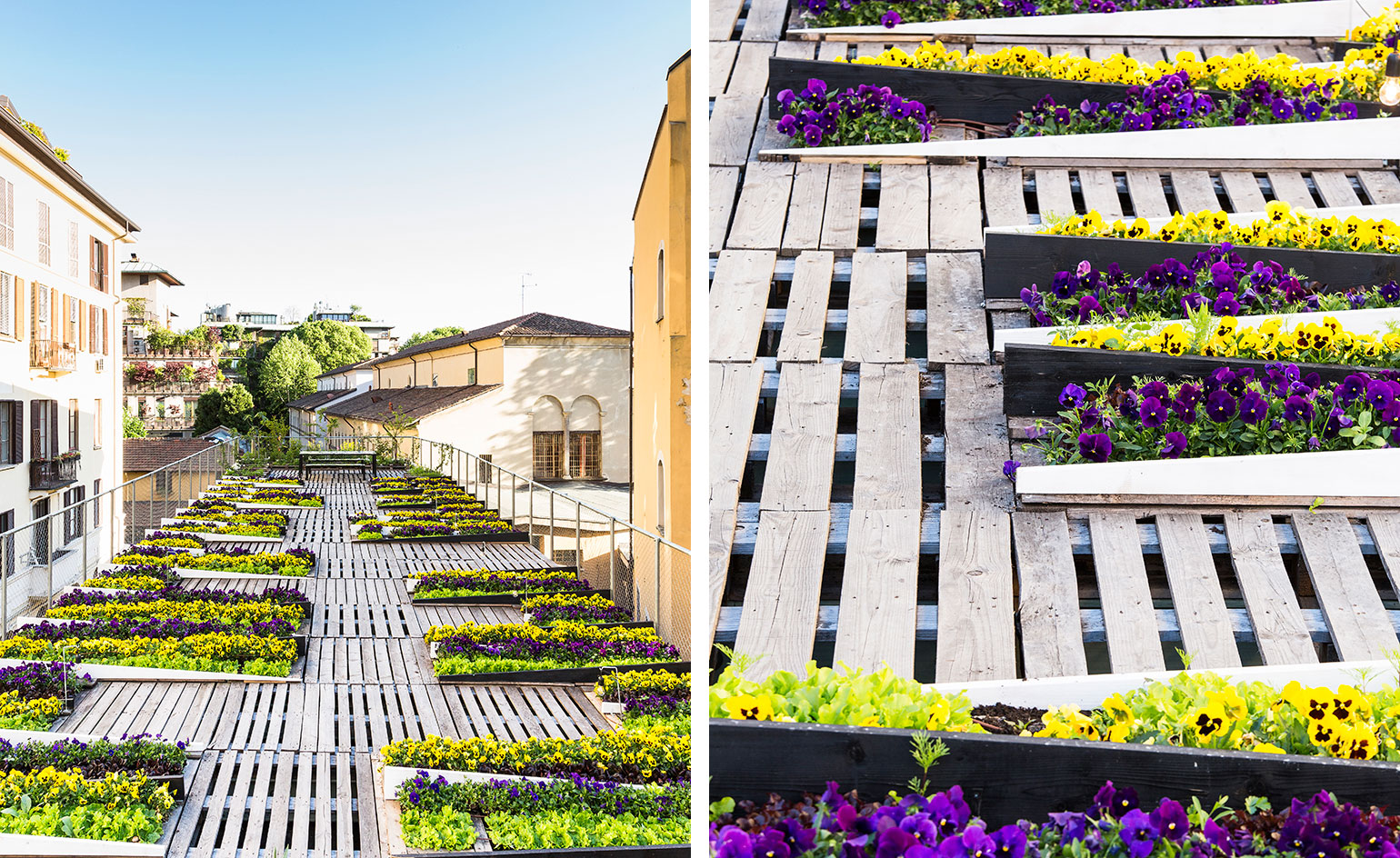
Beyond the look and perceived depth of the installation, the garden is also about the evolving experience: the fragrances the flowers give off at different times of day and throughout their natural lives, as well as the textures and changing scenery as they blossom and grow.
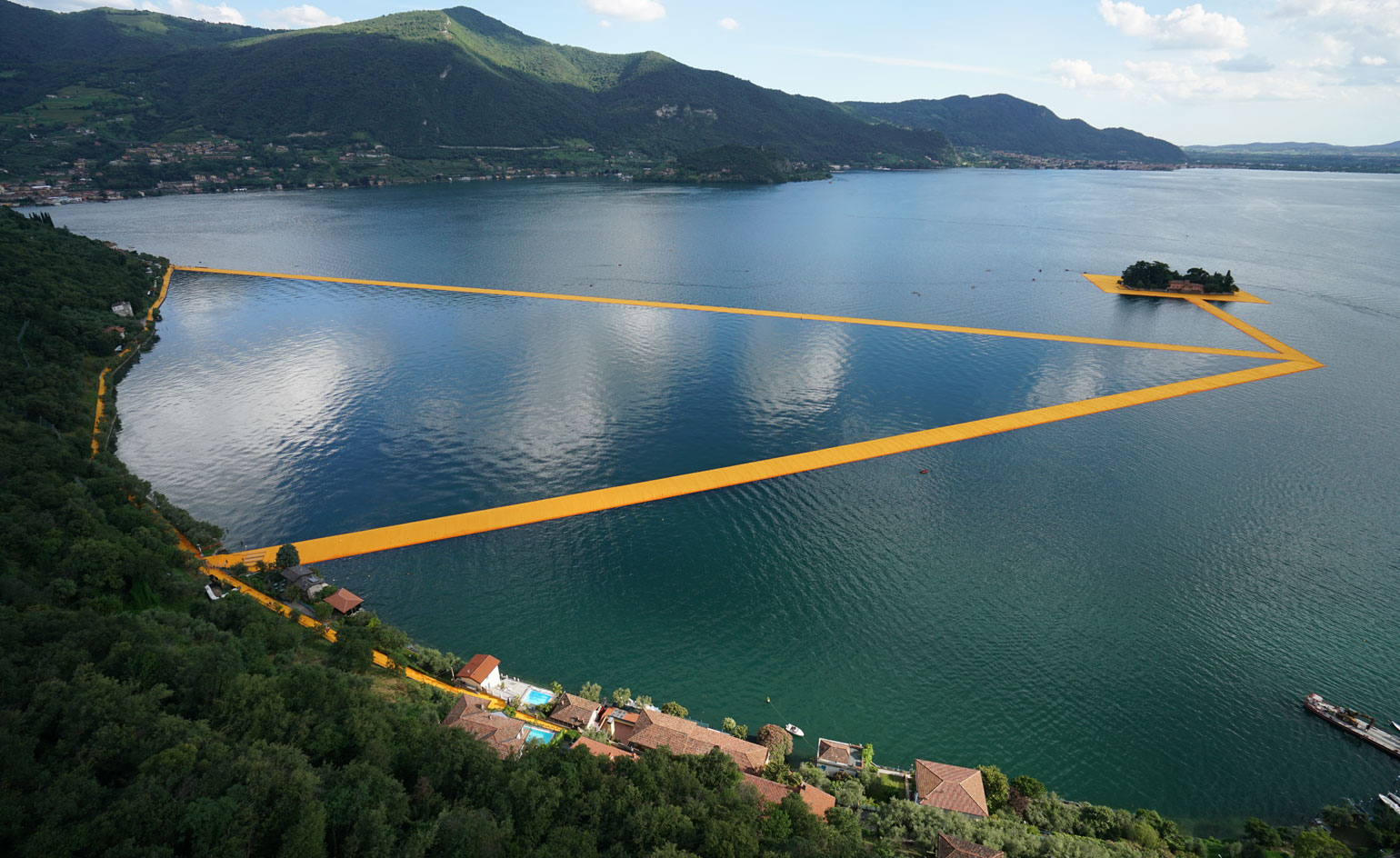
Floating Piers by Christo and Jeanne-Claude
Lake Iseo, Italy
Amid the picturesque nature of Lake Iseo, artists Christo and Jeanne-Claude laid down a new installation to take the meditative scene to the next level, facilitating some literal walking on water. The Floating Piers was an immense three-kilometre walkway comprised of a whopping 100,000 sq m of yellow fabric.
Writer: Sujata Burman.
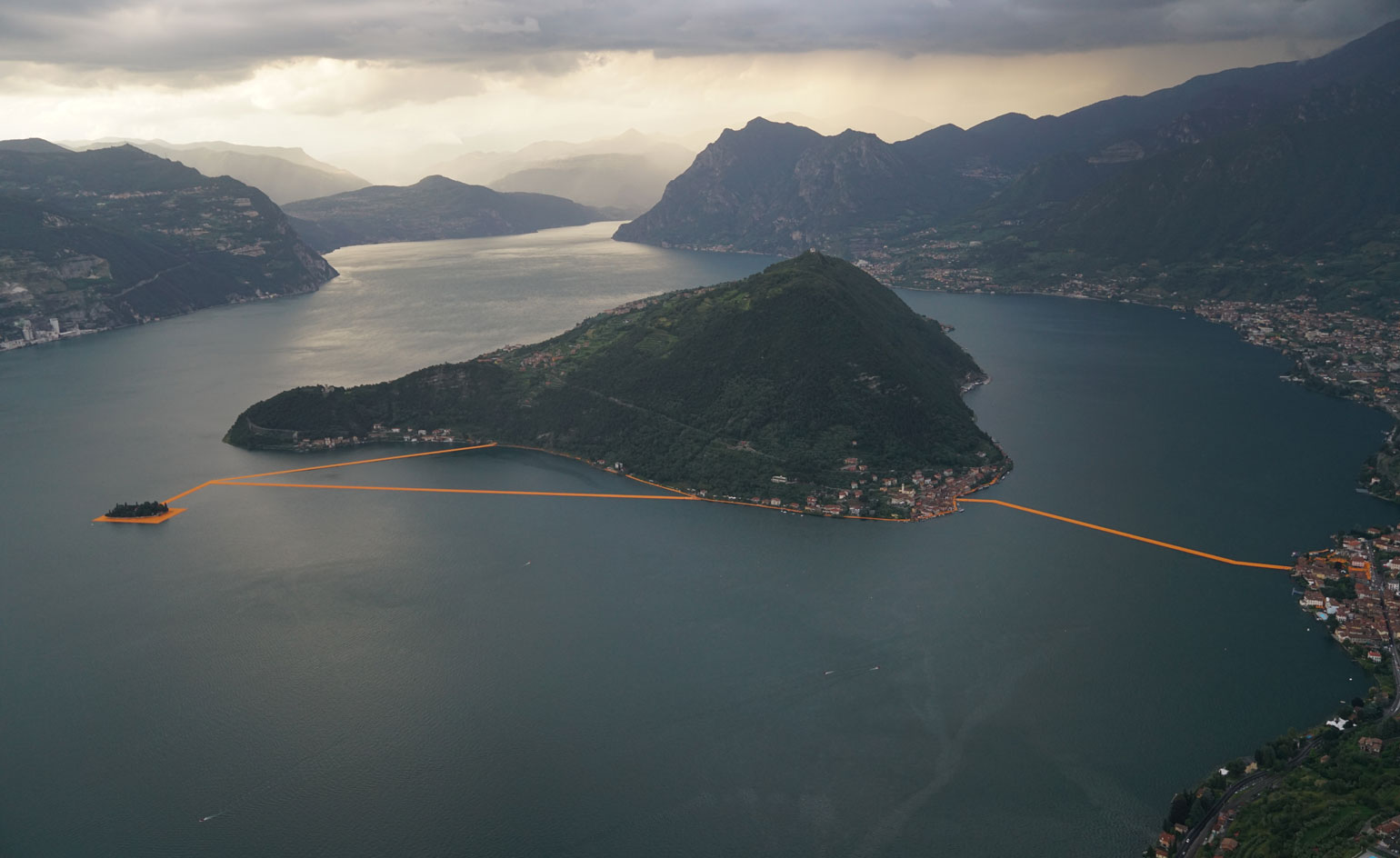
While visitors are able to appreciate the serene ‘walking on water’ experience, the visual is just as powerful. Up in the mountains above, people can observe the scorching mustard-hued snake running through the azure waters, creating graphic lines and cutting the colours of the landscape.
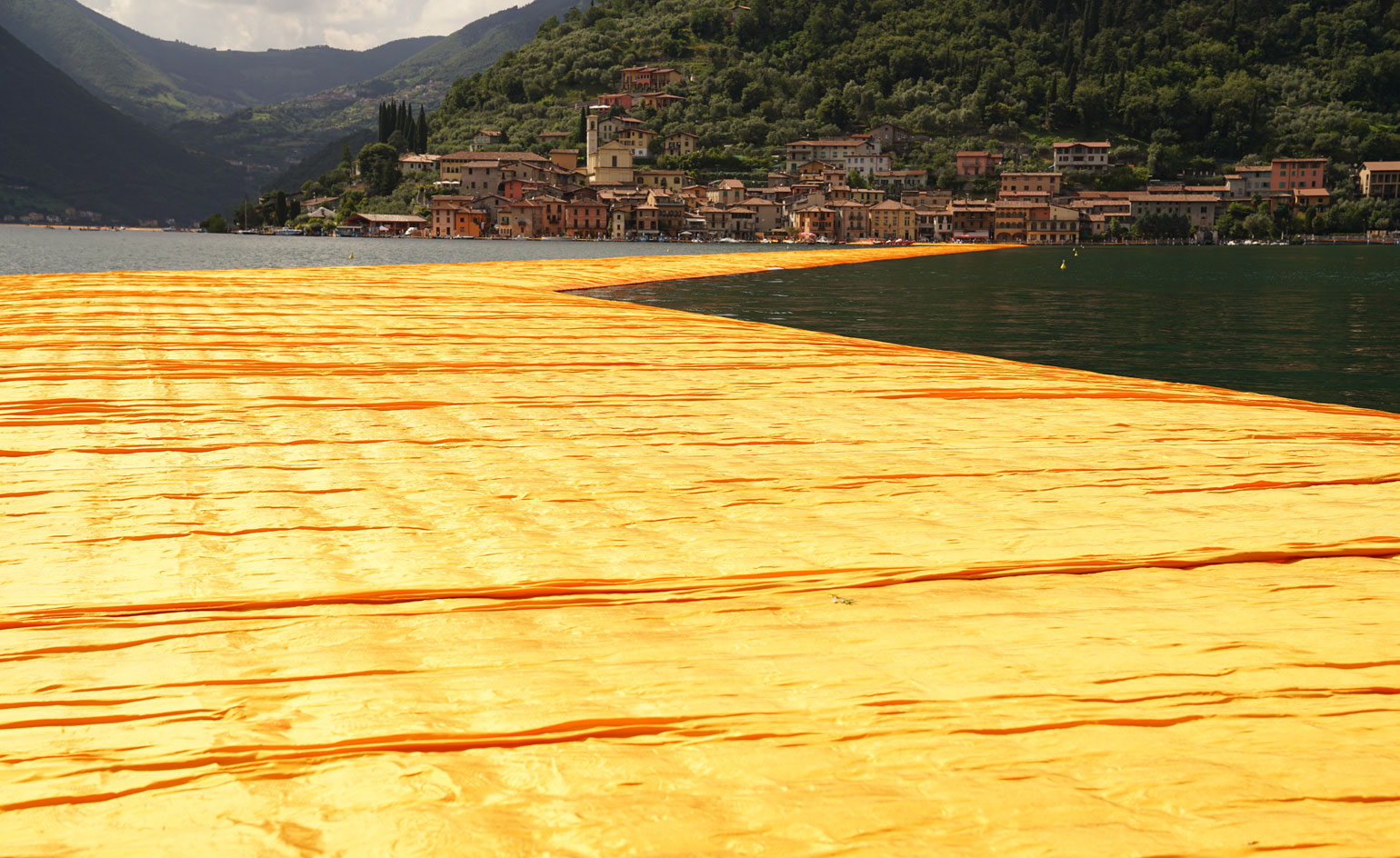
‘The light and water will transform the bright yellow fabric to shades of red and gold throughout the 16 days,’ Christo explains.
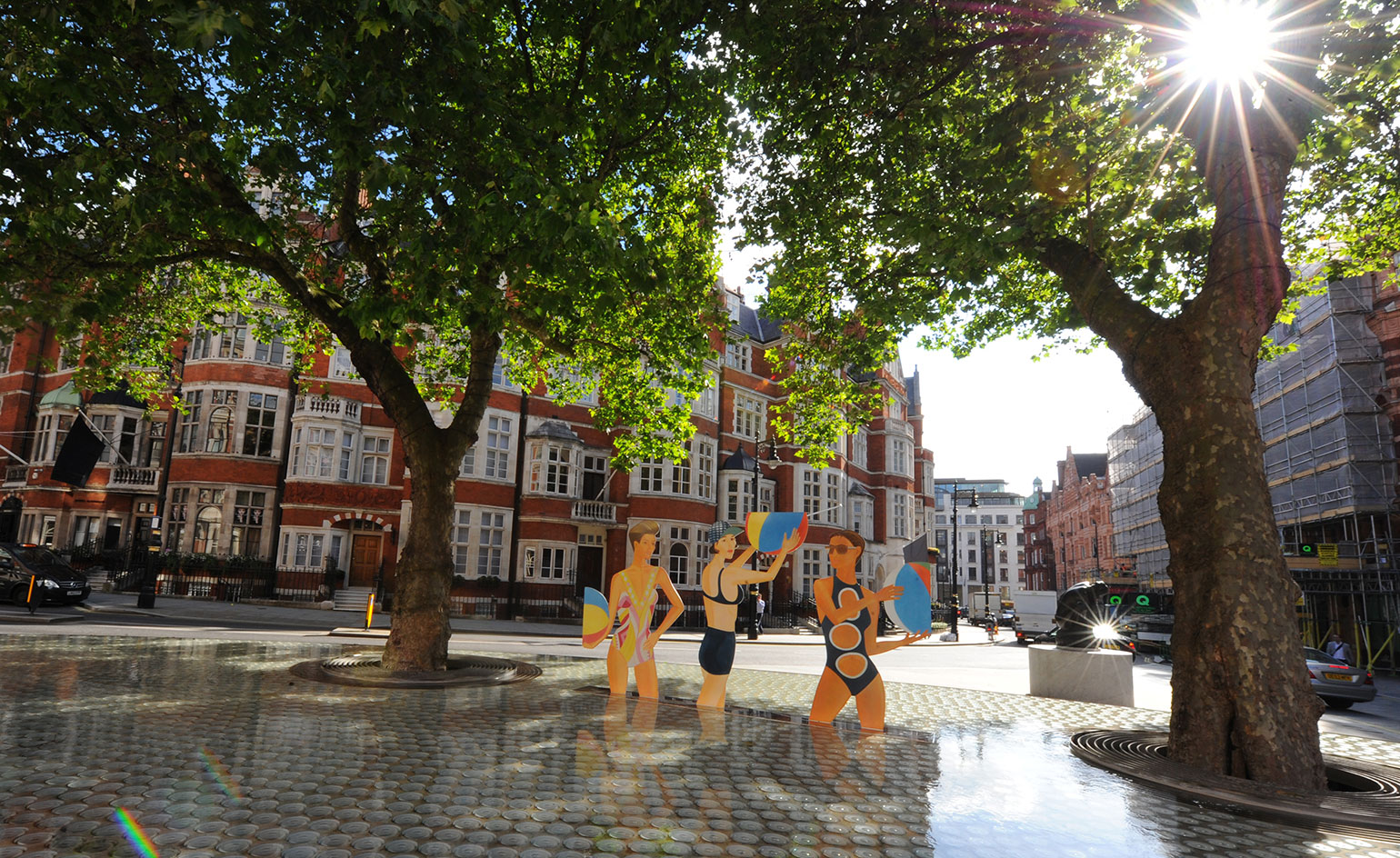
Chance, 2016 by Alex Katz
The Connaught, London, England
Making a splash in Mayfair, Alex Katz and his dead-pan cutouts transformed Tadao Ando's water feature in The Connaught's courtyard into a veritable pool party for a brief moment earlier this June. Three glam gals posed in their bathing suits holding beach balls, each a classic Katz cutout, painted on enamel to withstand the elements. The statuesque piece has since moved next door, to Timothy Taylor.
Writer: Sam Rogers.
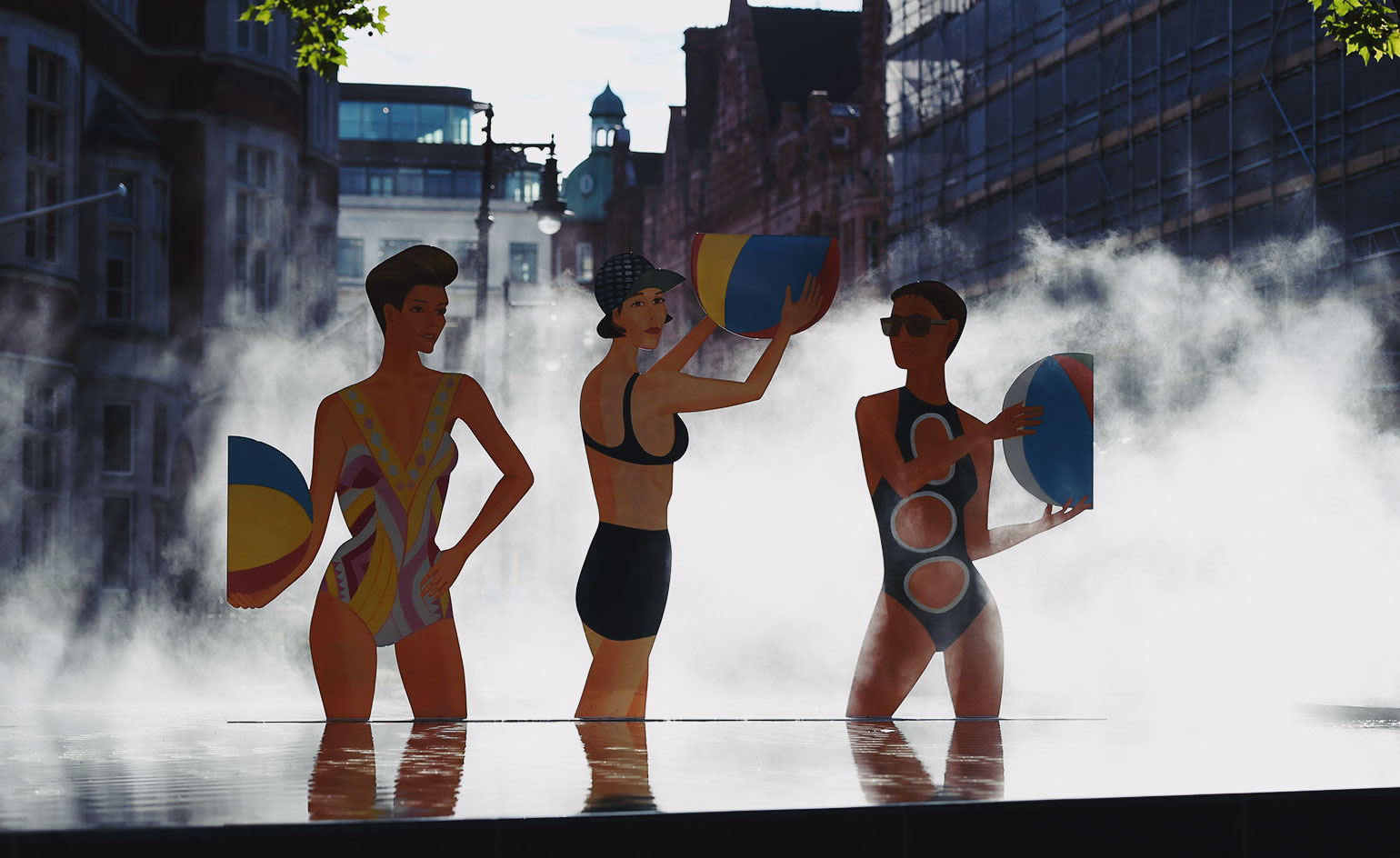
Beyond adding a dose of summer frivolity to the area, the installation celebrates the Serpentine's latest exhibition 'Alex Katz: Quick Light' which will be on view until September.
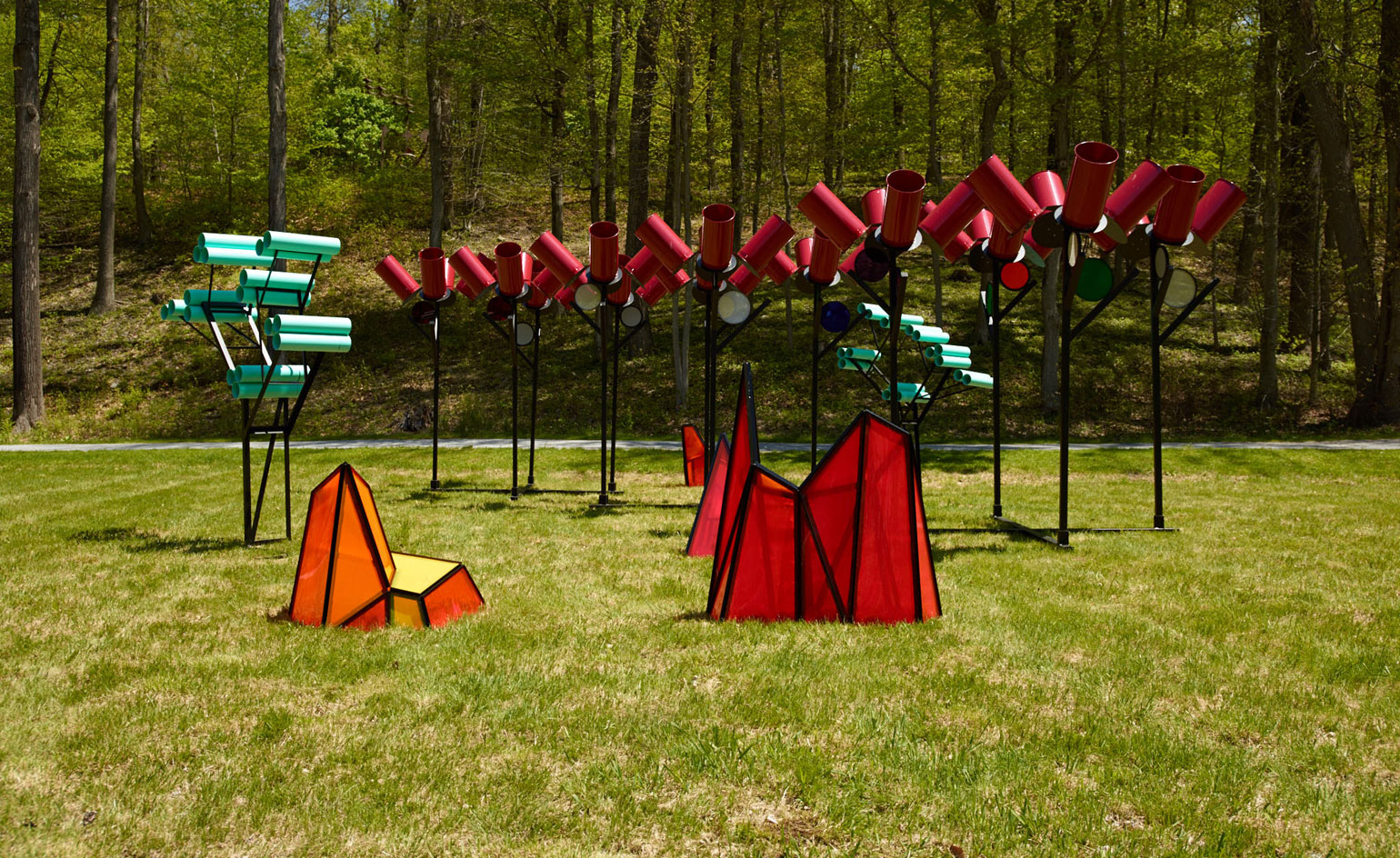
'Dennis Oppenheim: Terrestrial Studio'
Storm King Art Center, New York, USA
Seven of Dennis Oppenheim’s poignant works are on view at Storm King Art Center; only an hour outside of New York City, yet a world away from the concrete jungle. The conceptual works are being spread across 500 acres, channelling the late artist’s interaction with nature. Creating a formal landscape with Alternative Landscape Components (pictured) from 2006, welded steel and acrylic rocks meet steel bushes and trees for a playful pop-up forest in ironically inappropriate primary hues.
Writer: Sujata Burman.
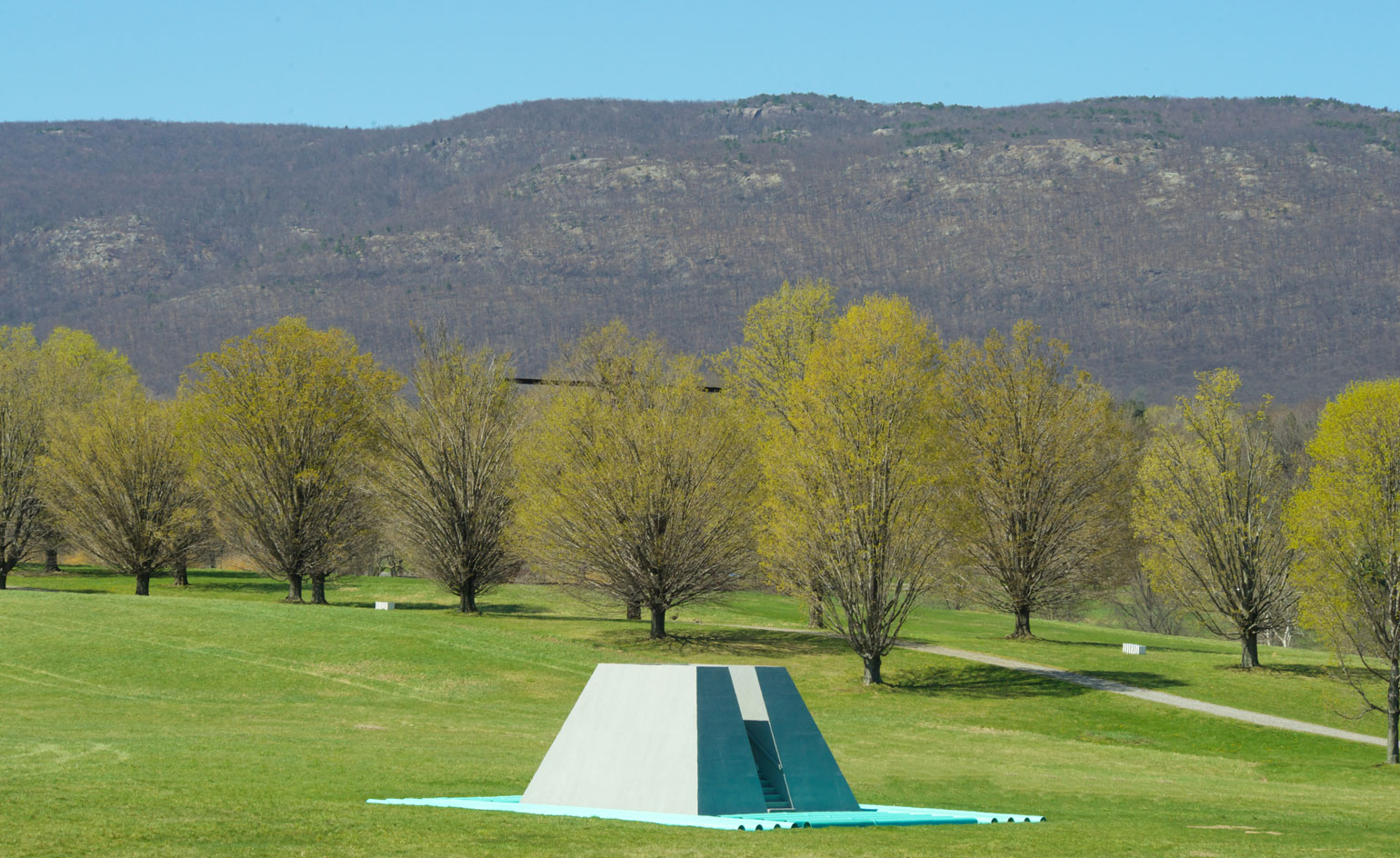
Dead Furrow, 1967, evokes more serious notions with its hard lines and clean cut form protruding from the manicured grass. Nodding to the idea of a trench left after ploughing a field, the interactive sculpture invites visitors to climb the stairs – affording an alternative platform from which to experience the vista.
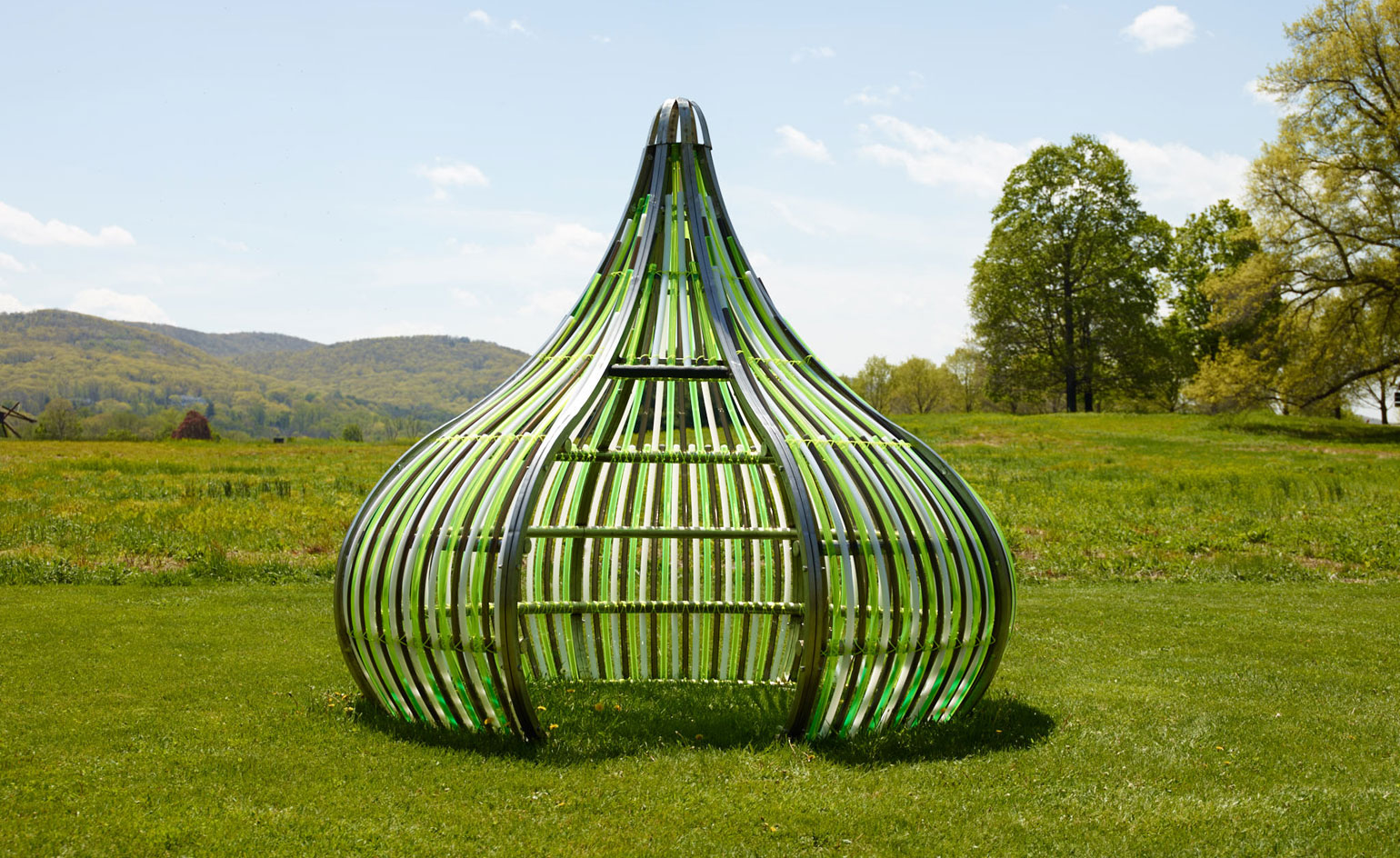
Reminiscent of both a Hershey’s Kiss and a wild plant, Electric Kiss, 2009, is an abstract, onion-shaped cove. Oppenheim explains ‘this could be a three-dimensional replication of the mechanics of a kiss, the way that it extracts and expands’.
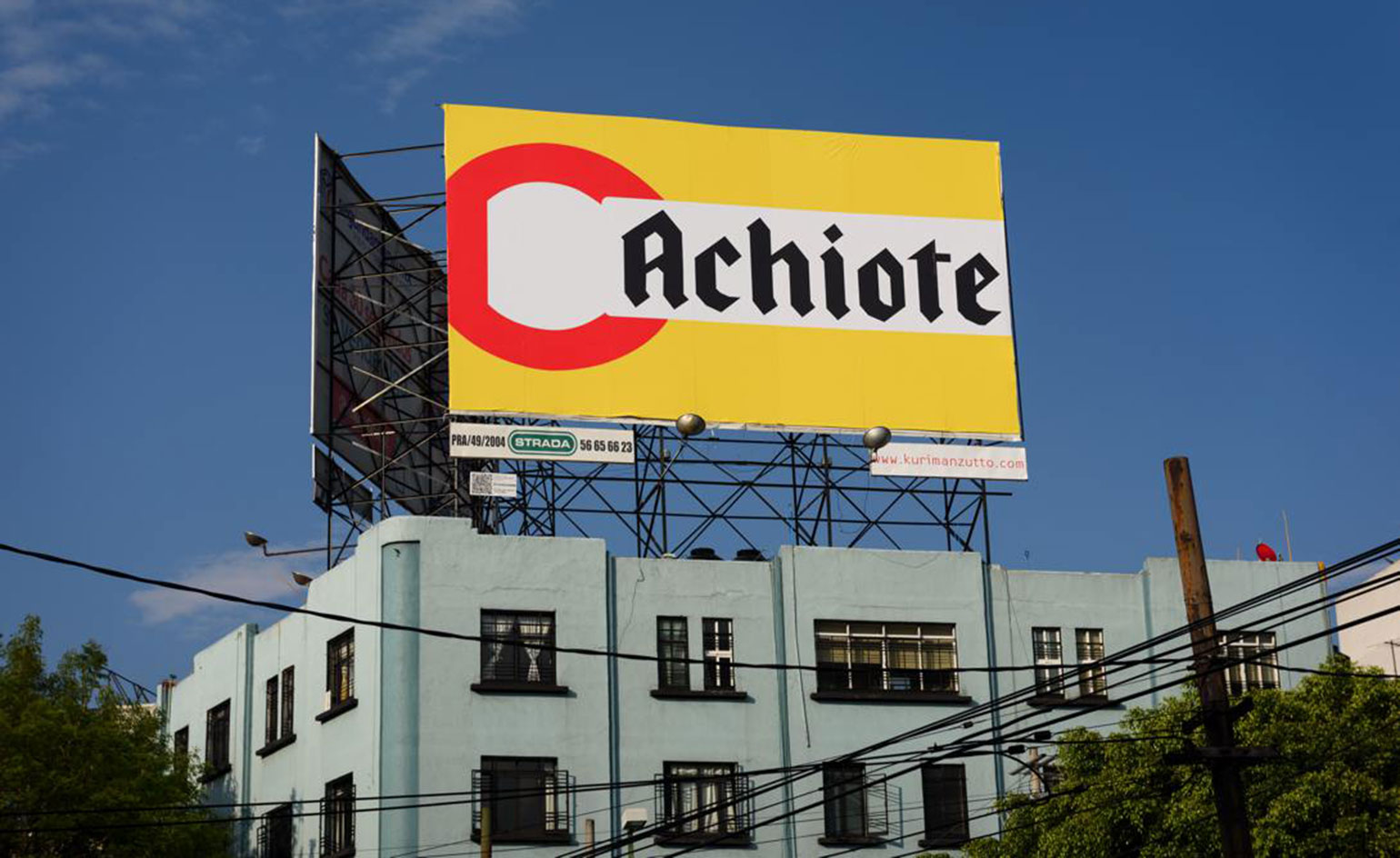
Achiote, by Antonio Caro
Sonora 128, Mexico City
Bogota-based artist Antonio Caro first emerged from the shadows of his copywriting gig (on campaigns for instant soups, or men's suits in the local office of Chicago's Leo Burnett) in 1977 with his iconic text art piece Colombia-Coca Cola. 'The work came first and the meaning came later,' says Caro, whose four decade exploration of conceptualism, pop art and advertising motifs has made him one of the most revered contemporary Colombian artists.
Writer: Michael Slenske.
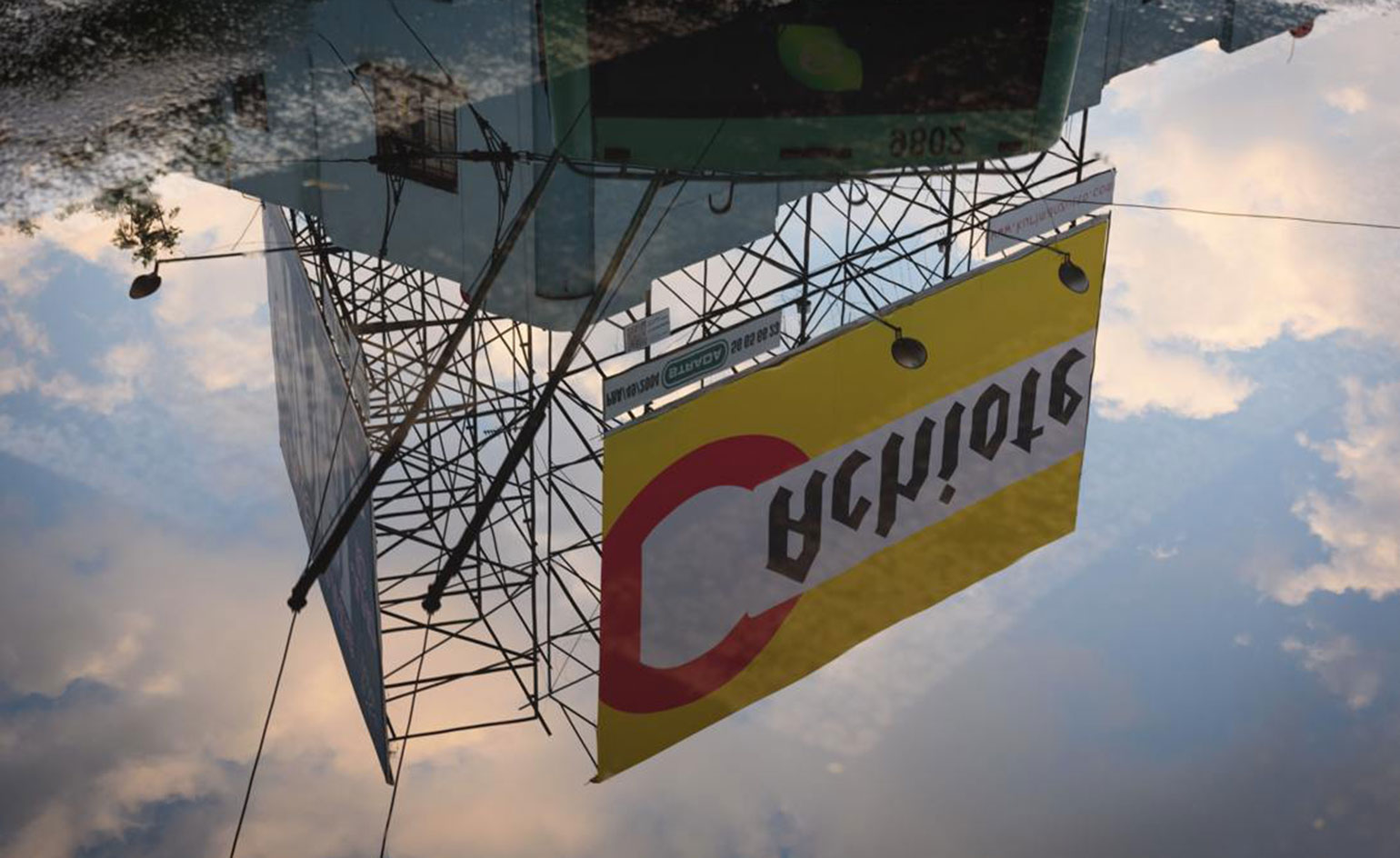
This summer, however, he's making his biggest push into the advertising realm by erecting his 2011 work, Achiote, at Sonora 128, Kurimanzutto's new billboard project – launched this spring with Wolfgang Tillmans – in the Condesa neighbourhood of Mexico City. Originally painted on Mexican amate paper, the work employs the Chiclets logo and subverts the power of the company back to the indigenous peoples of both countries. 'Before, my work was always seen in an art context,' says Caro. 'But now it lives on the street, day by day, in the real world.'
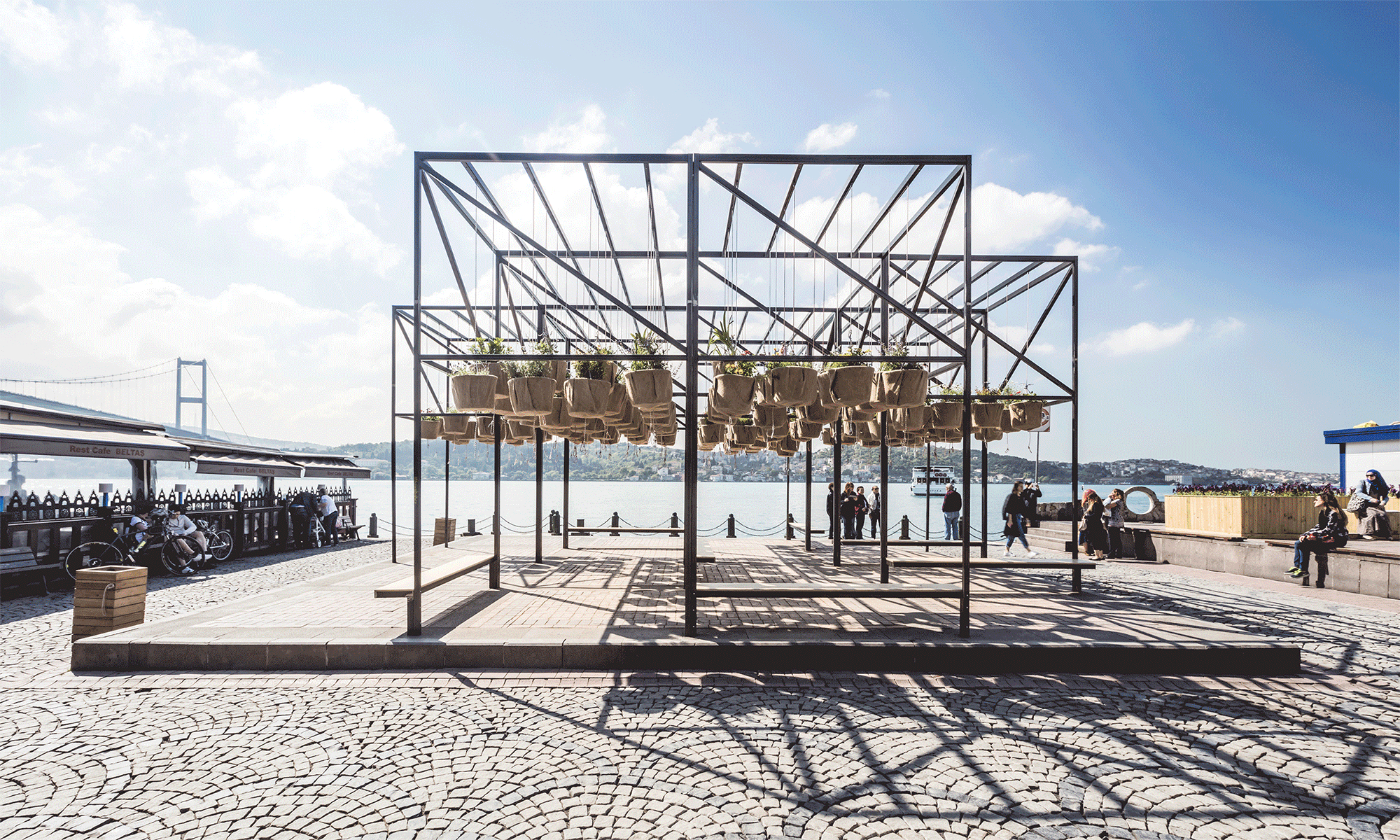
Sky Garden, by SO? Architecture
Istanbul, Turkey
Istanbul-based firm SO? Architecture presents a floating garden above a popular and idyllic location in their busy hometown. Created with the aim of saving walking space, the organic installation cleverly plays with alternating levels: the Bosphorus waterway that exists beside the piece, the elevated flora and the balancing act created when each one is pulled down for visitors to intimately admire.
Writer: Sujata Burman.
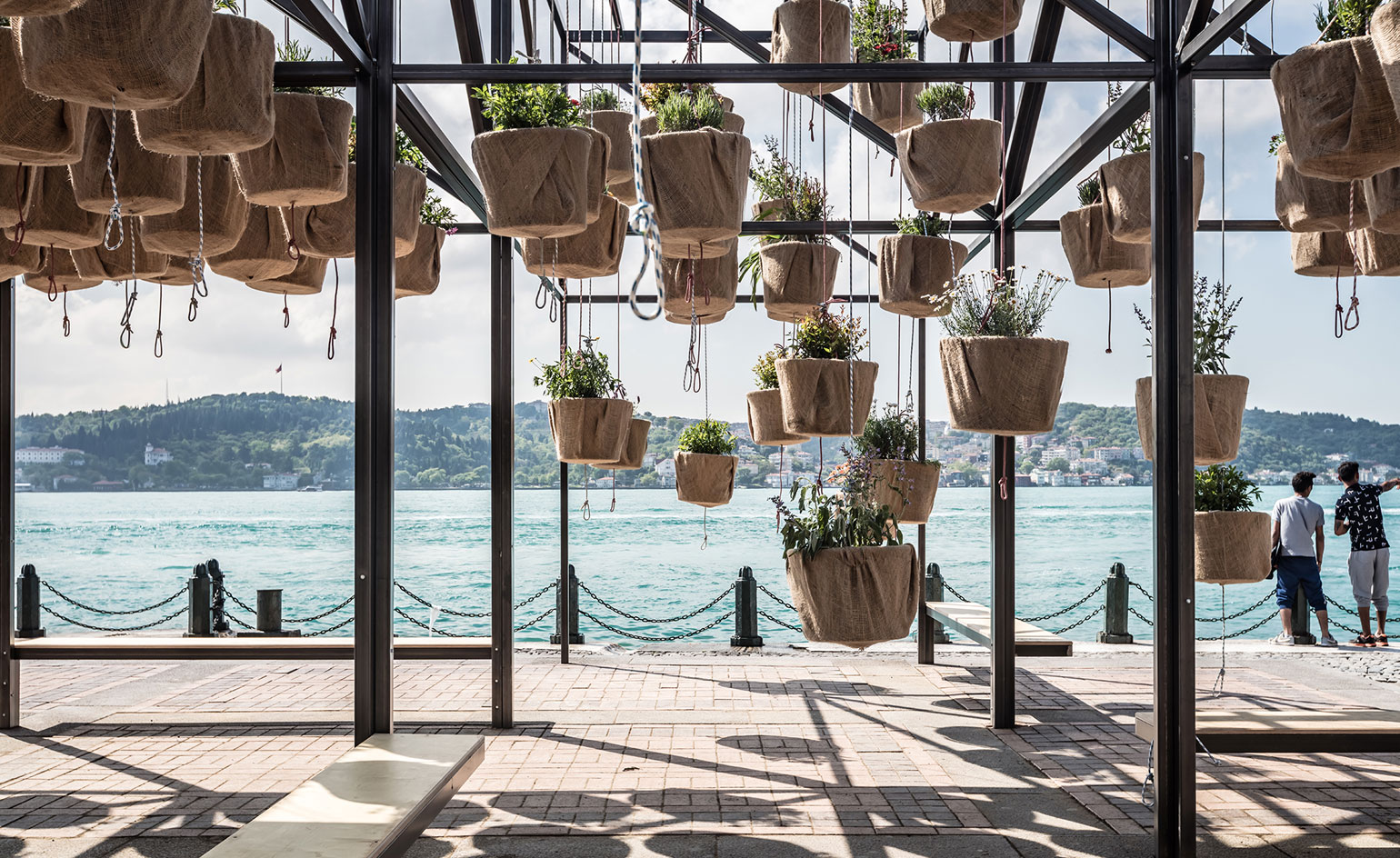
Made up of a large black frame and brown cloth covered pots, the simplistic design allows for a rich assortment of flowers to stand out.
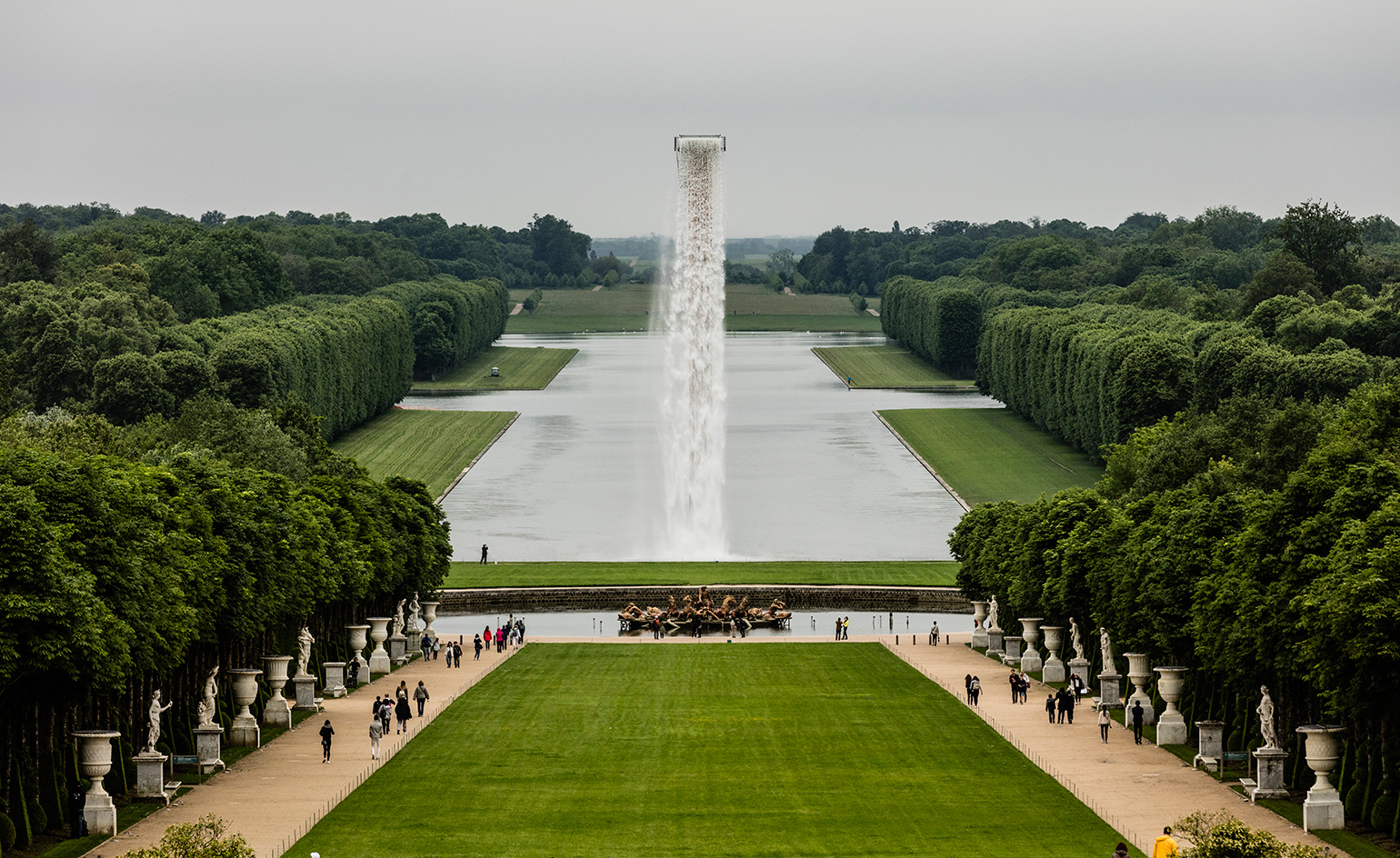
Olafur Eliasson at Chateau de Versailles
Versailles, France
Every year, Versailles president Catherine Pégard invites a contemporary artist to put their spin on the 17th-century architectural masterpiece. This year, Danish-Icelandic visual artist Olafur Eliasson has created eight works that question perception; five mirror-focused pieces that sit within the chateau and three that play on the elements in the gardens, including the perception-baffling Waterfall, in the Grand Canal, pictured.
Writer: Rooksana Hossenally.
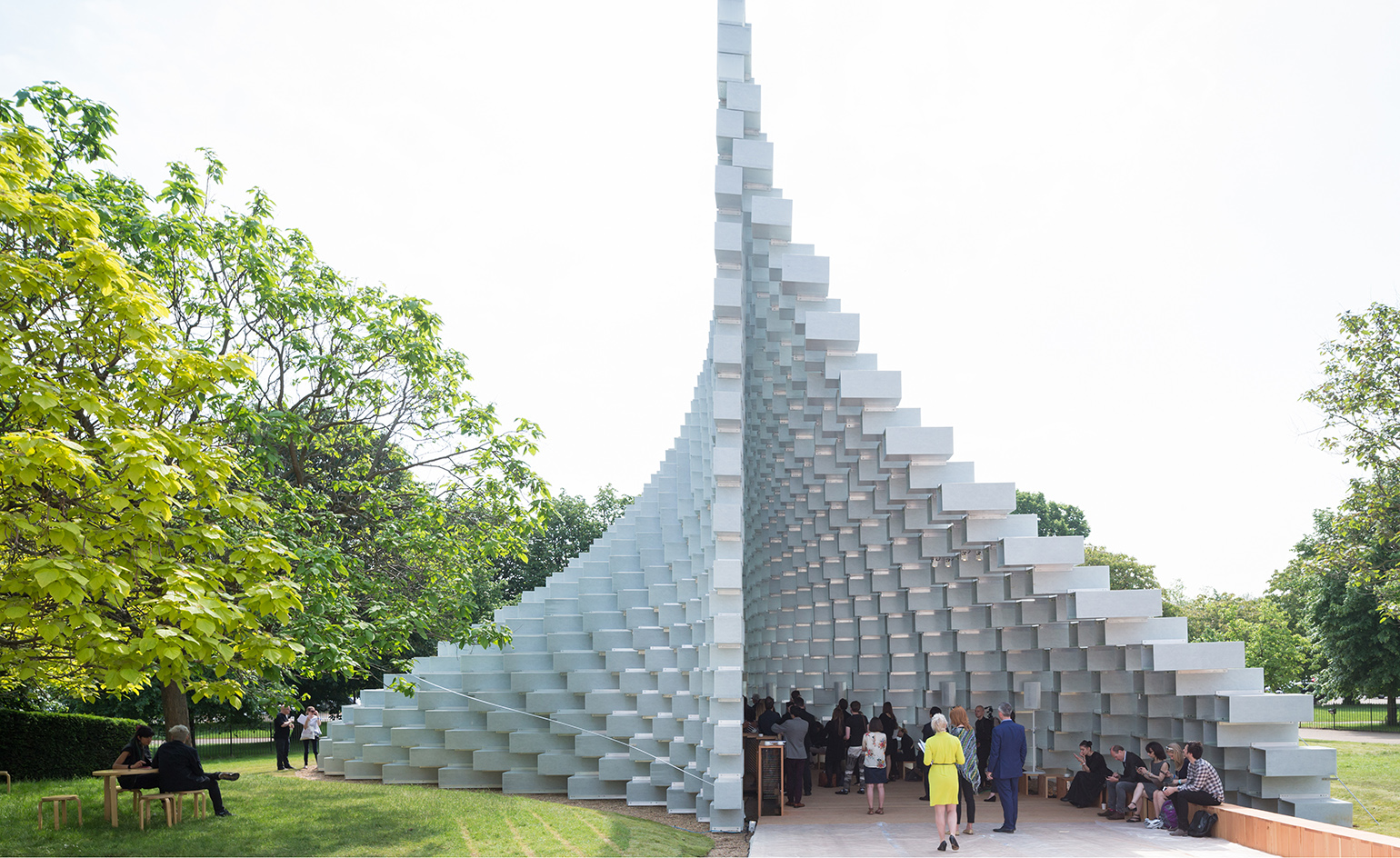
Serpentine pavillion, by BIG
Serpentine Galleries, London, England
Bjarke Ingels has an innate understanding of architecture's dramatic potential and the way in which subtle, repetitive modulations can create a sense of scale and awe. The 2016 Serpentine pavilion is simplicity itself, built from extruded square tubes of glass fibre, supplied by Fiberline Composites, reinforced and bolted together using hundreds of T-shaped aluminium brackets. This wall of blocks is canted and sloped, rippled and twisted, expanding within to create a cave-like interior, while the exterior 'walls' offer up a slice of man-made landscape in the verdant surroundings.
Writer: Jonathan Bell.
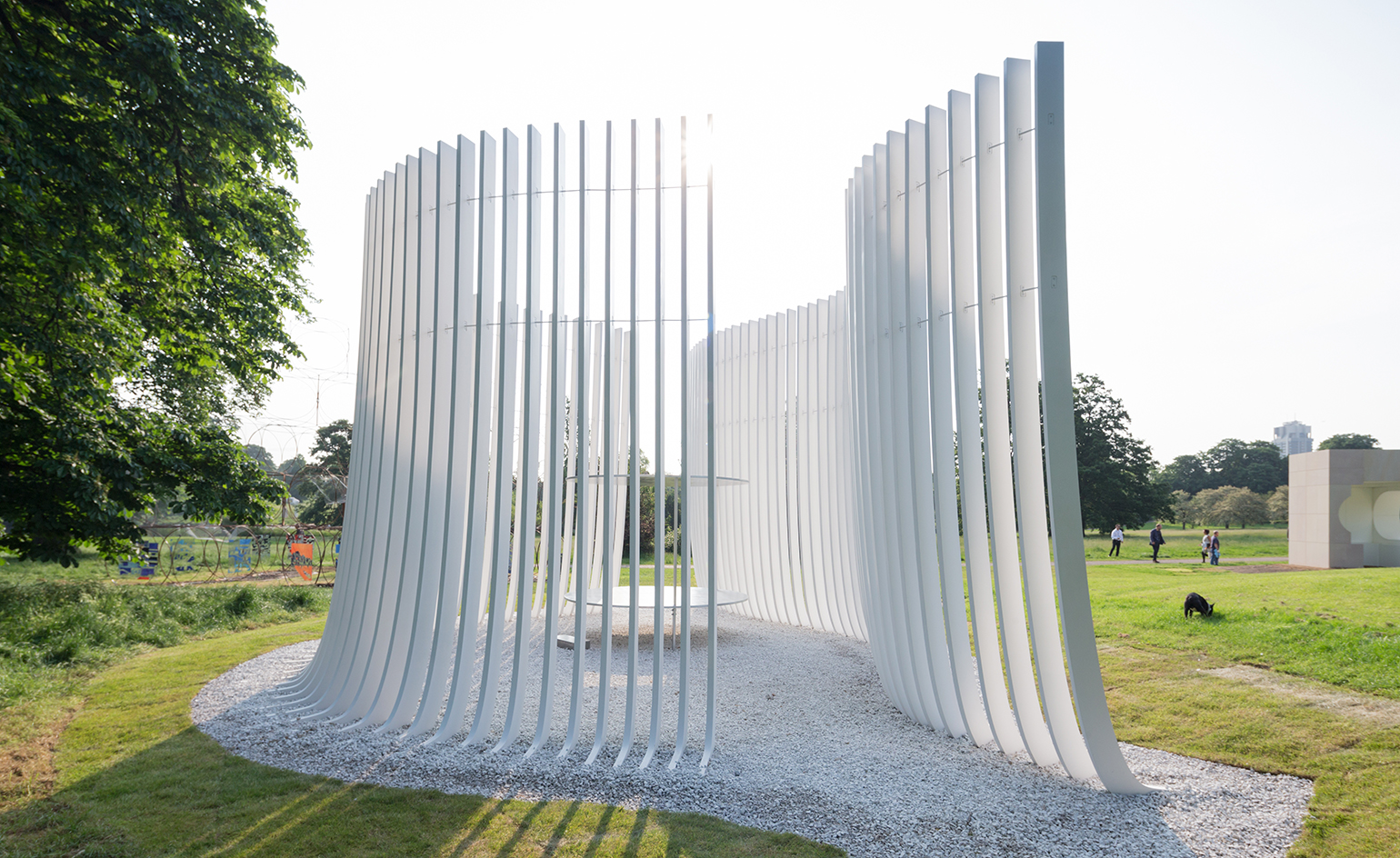
Accompanying the BIG pavilion are four 25 sq m summer houses created by Kunlé Adeyemi, Barkow Leibinger, Yona Friedman and Asif Khan. Pictured: Asif Khan's cool, calm spiky 'temple' is designed to align to the position of the sun on Queen Caroline's birthday, as with William Kent's original build.
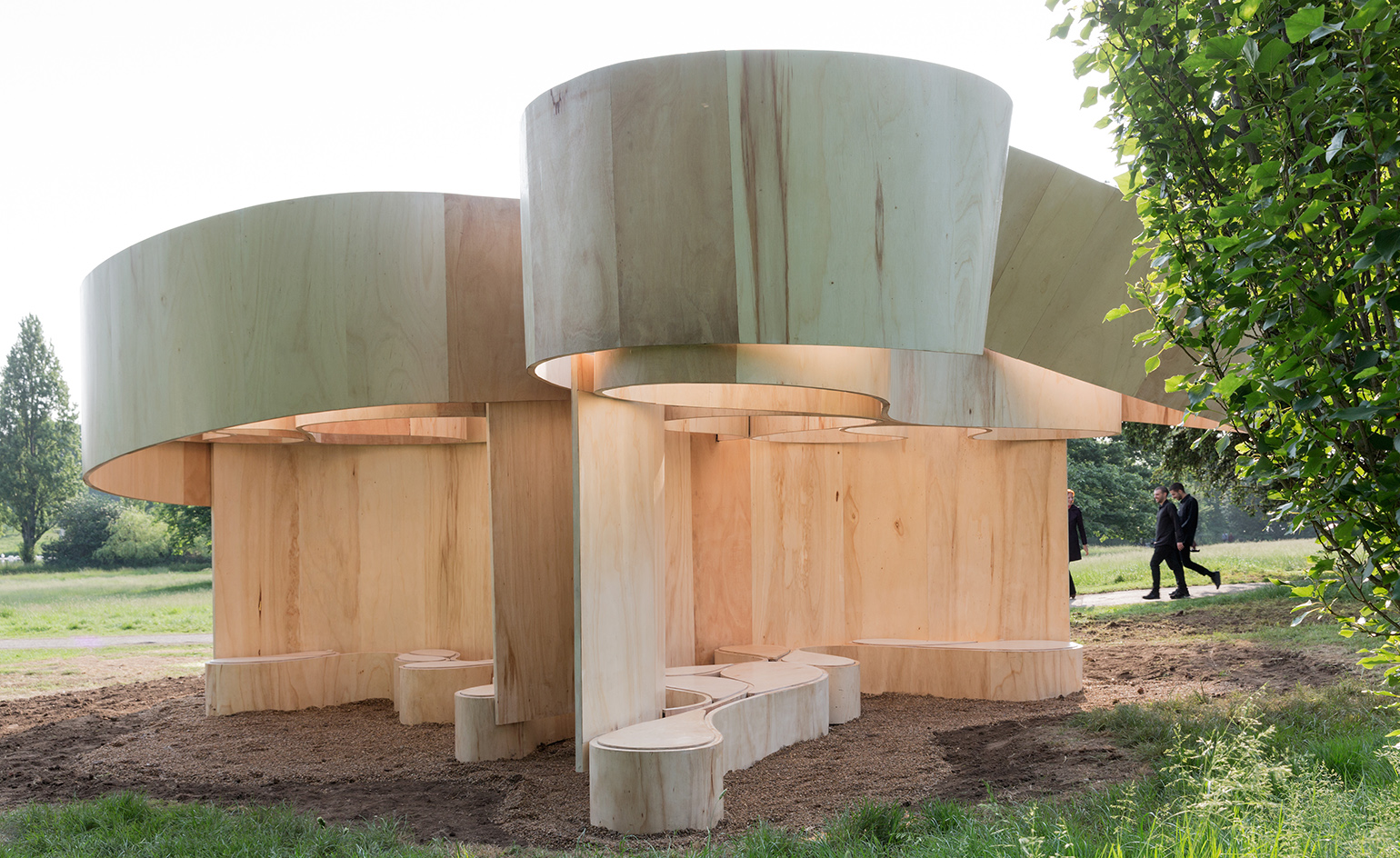
Frank Barkow was explicit about the prototypical nature of Barkow Leibinger's chunky curved wood extravaganza – 'it has a resonance and will live beyond its four months here', he says.
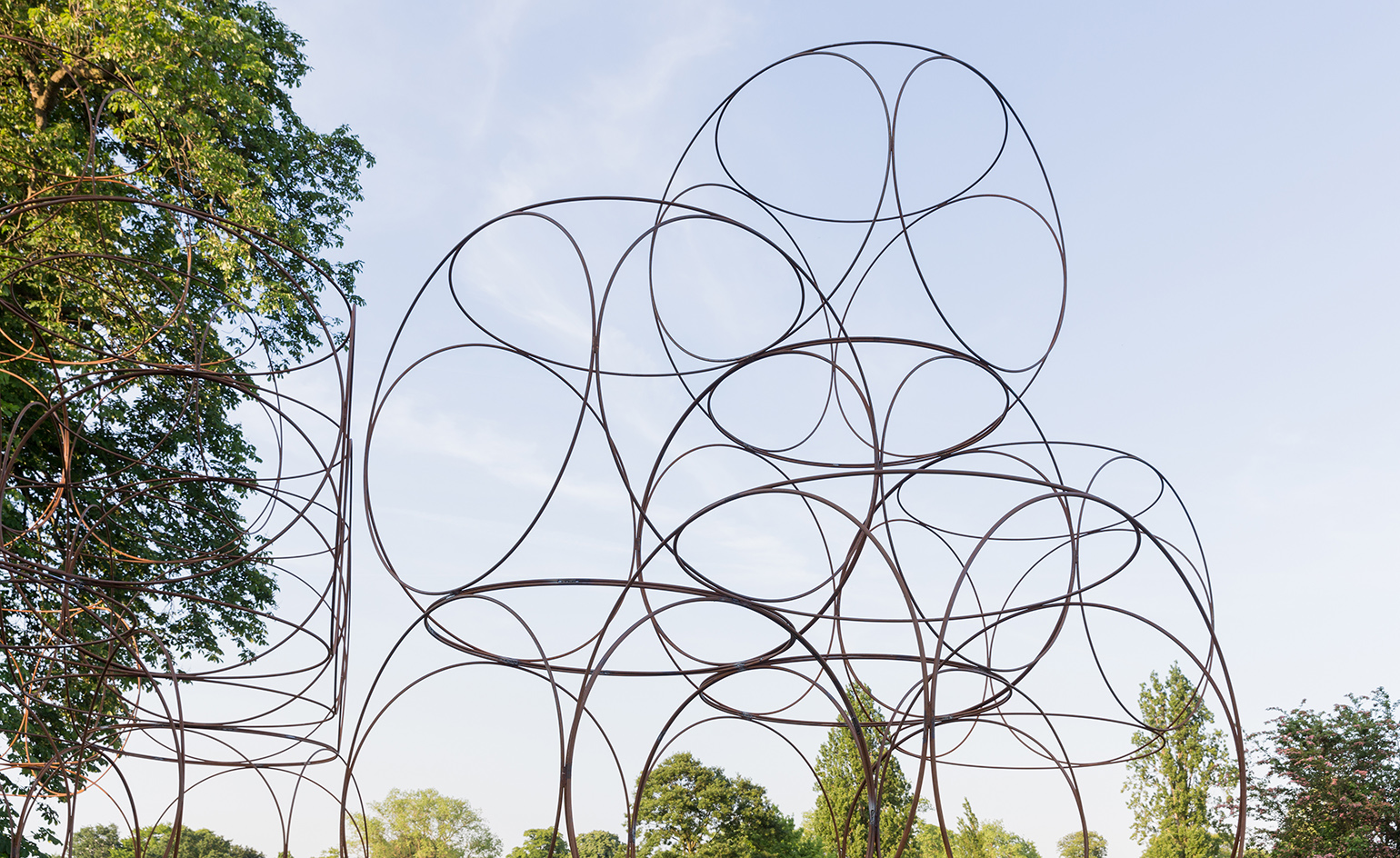
Yona Friedman's contribution is a flexible modular structure which can be assembled and disassembled in a variety of ways.
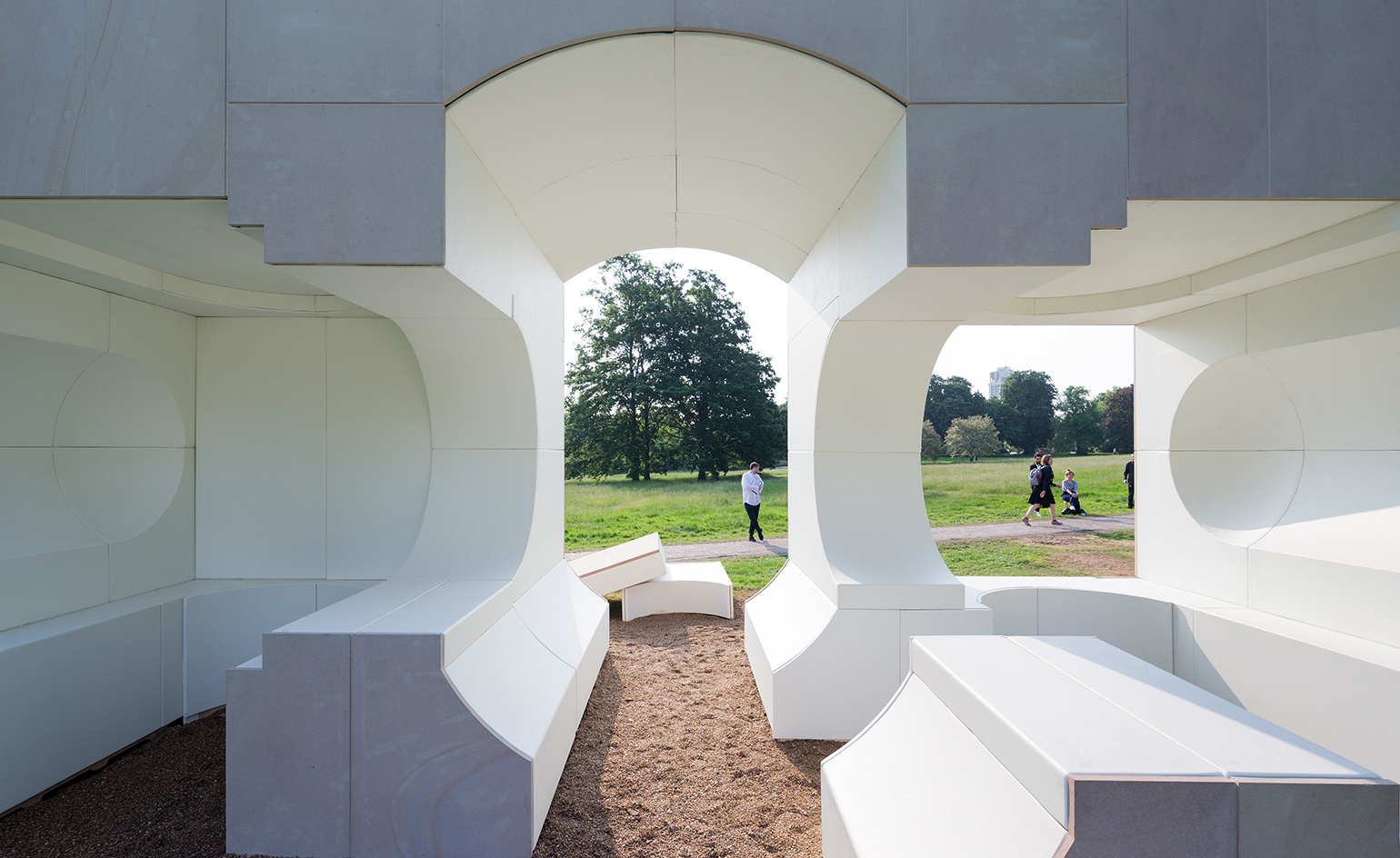
Kunlé Adeyemi’s structure is an inverse replica of Queen Caroline’s Temple, playing with its material space and form to create a new and exciting sculptural object.
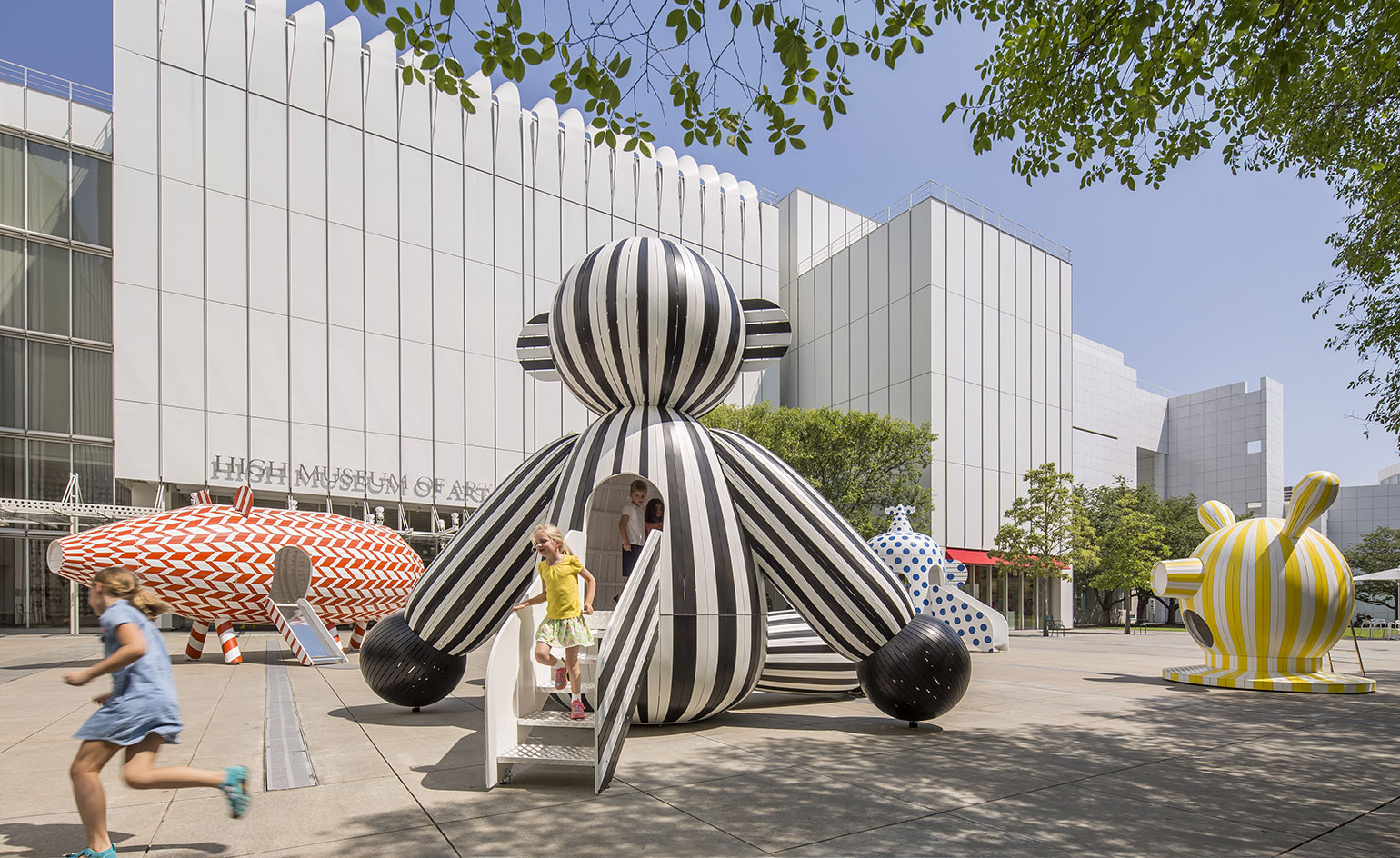
'Tiovivo: Whimsical Sculptures', by Jaime Hayon
High Museum of Art, Atlanta, USA
Spanish designer Jaime Hayon has brought his trademark wit to Atlanta's annual summer installation program at the High Museum of Art. A bright and bold foil to the all-white museum, these large-scale wooden sculptures are decorated in colourful patterns – polka dots, stripes or zig-zags – and interpret familiar shapes, such as a bell, a pig and even a monkey. Adding to the blithe ethos of the sculptures, slides and steps invite children and guests to explore and play.
Writer: Sam Rogers.
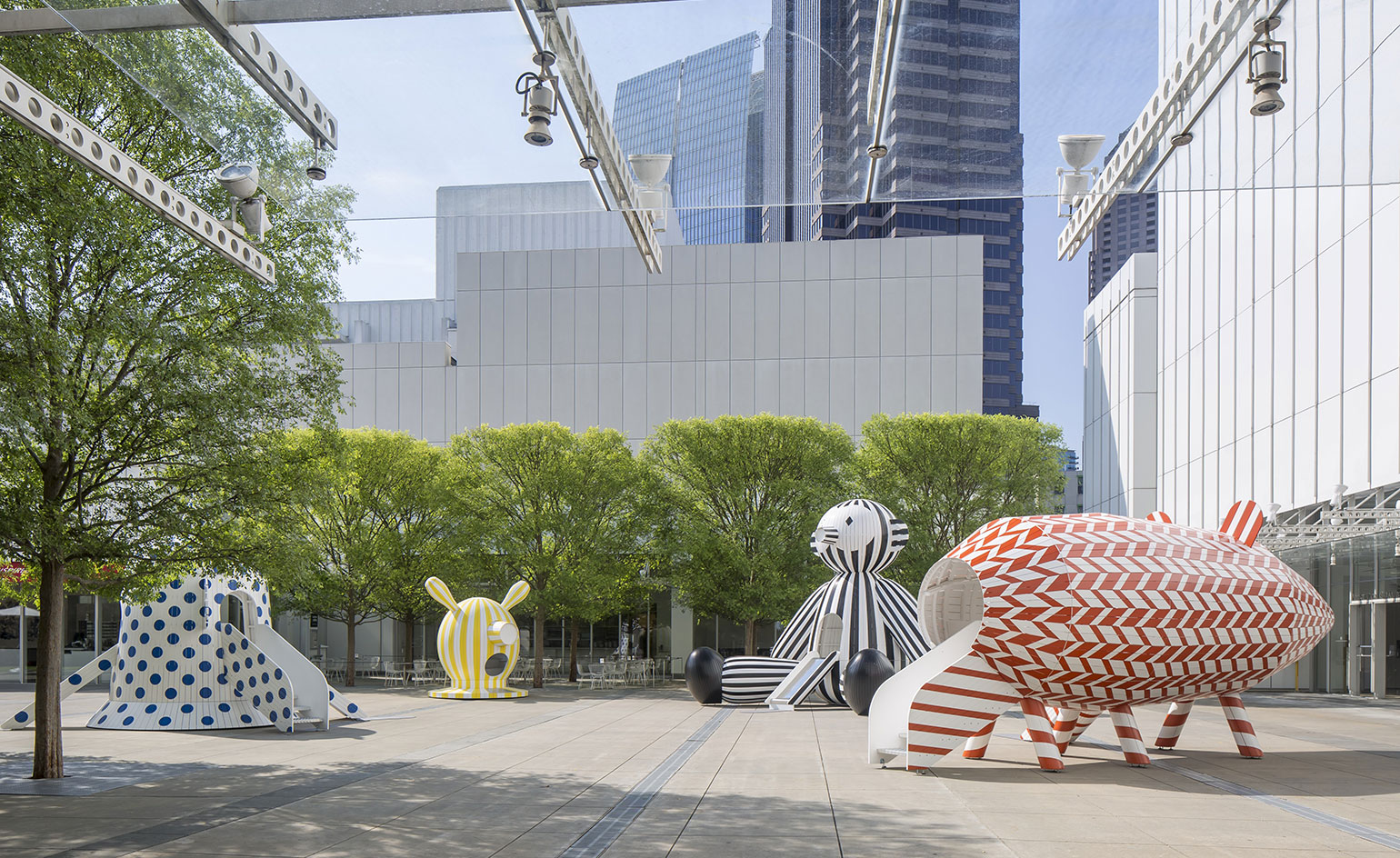
On view until 27 November, Hayon's cheerful structures follow in the footsteps of Mexican designers Hector Esrawe and Ignacio Cadena, whose interactive installation from 2014 and 2015 started the large-scale initiative of the Atlanta Museum. Now in it's third year, the 'Piazza Activation Initiative' aims to explore how engagement with art and design can extend beyond the museum’s walls.
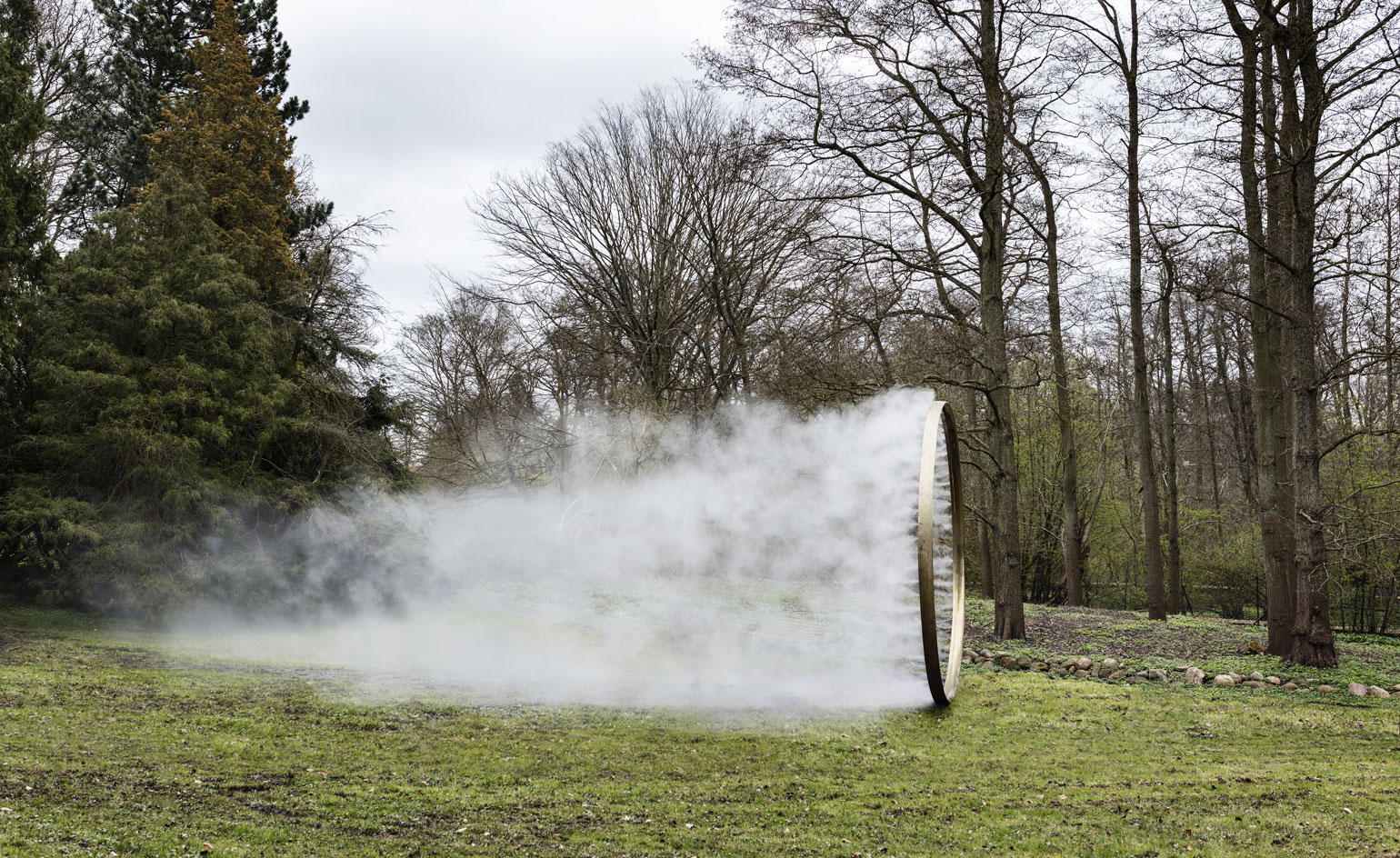
Vær i vejret, by Olafur Eliasson
Ordrupgaard Museum, Denmark
Olafur Eliasson embraces the climate with his artwork at Ordrupgaard Museum's park. Meaning 'weather of weather', the interactive piece releases a misty bank of fog with the breeze. Physically creating art with the weather, the Danish-Icelandic artist is making the ethereal element of wind briefly visible.
Writer: Sujata Burman.
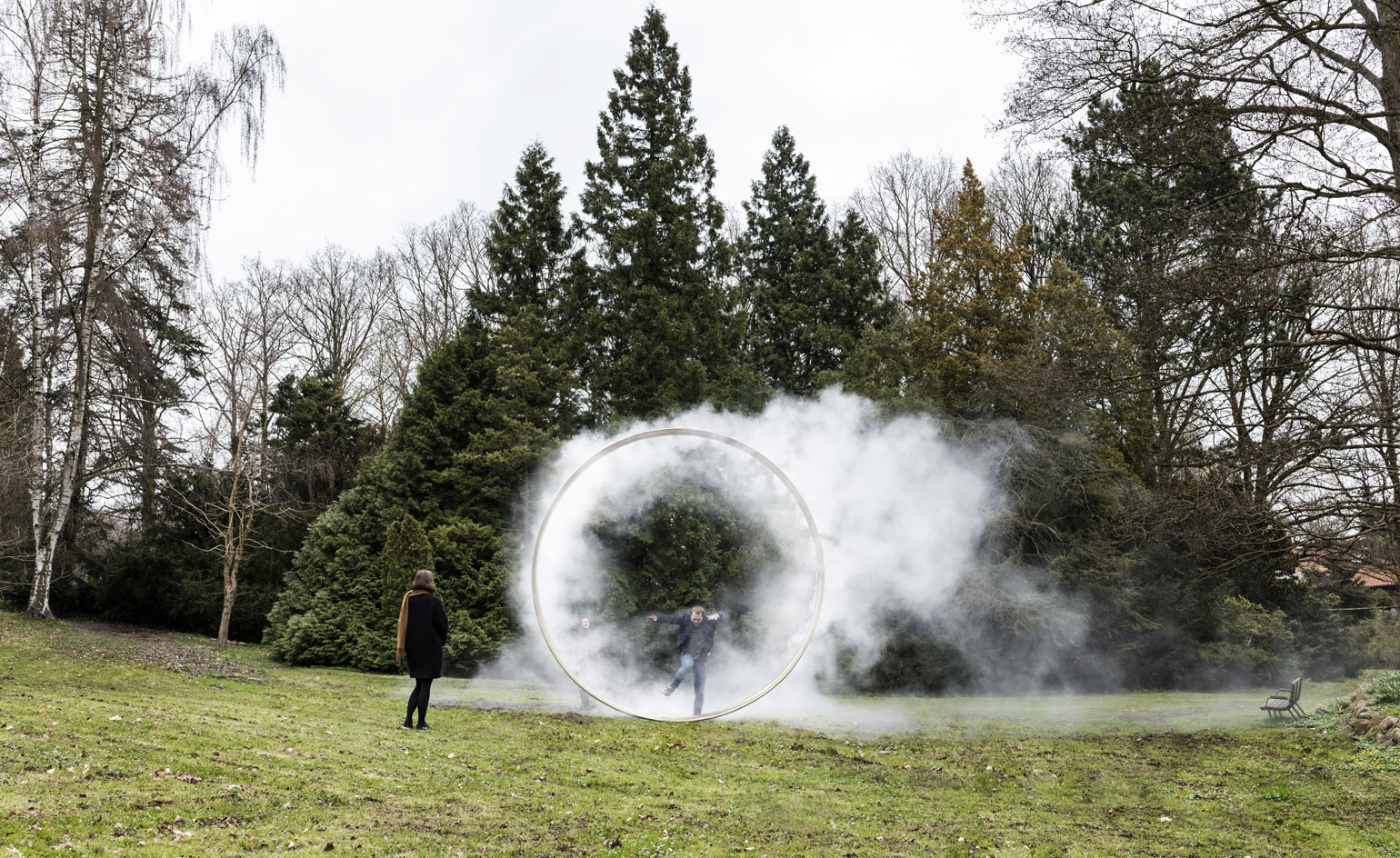
The artist provides a sensory experience for visitors, as they become enveloped in the hallucinatory fog when stepping into the bronze ring.
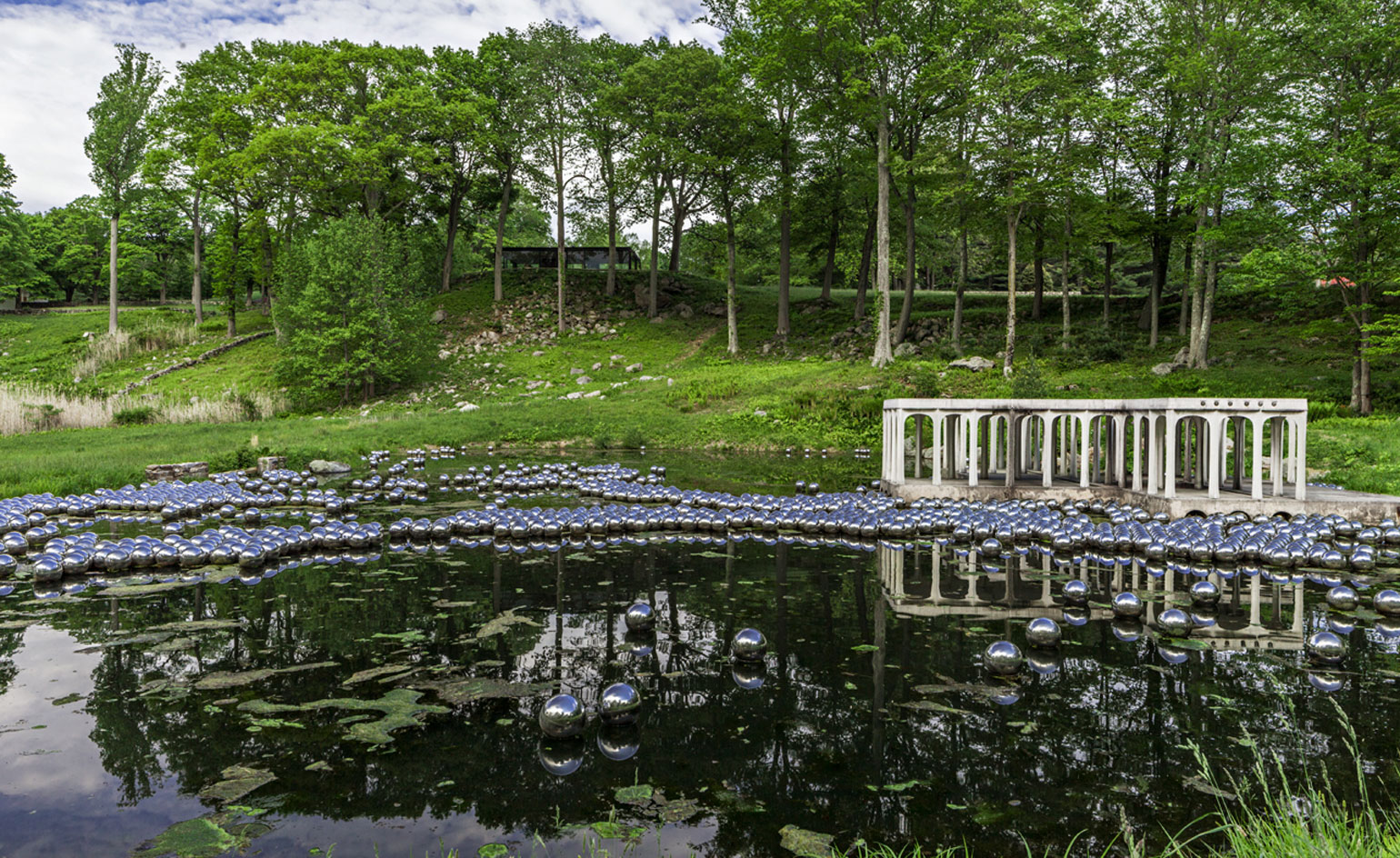
Narcissus Garden by Yayoi Kusama
Glass House, Connecticut, USA
Becoming at one with the tranquil landscape at the Glass House in Connecticut is this reflective installation by Yayoi Kusama. Originally conceived half a century ago for the 22nd Venice Biennale, it was here created as a celebration of architect Philip Johnson's birth. The 1,300 floating steel spheres move naturally on the pond, creating vivid reflections of the shiny refined domes and quantifying the work's title, Narcissus Garden.
Writer: Sujata Burman.
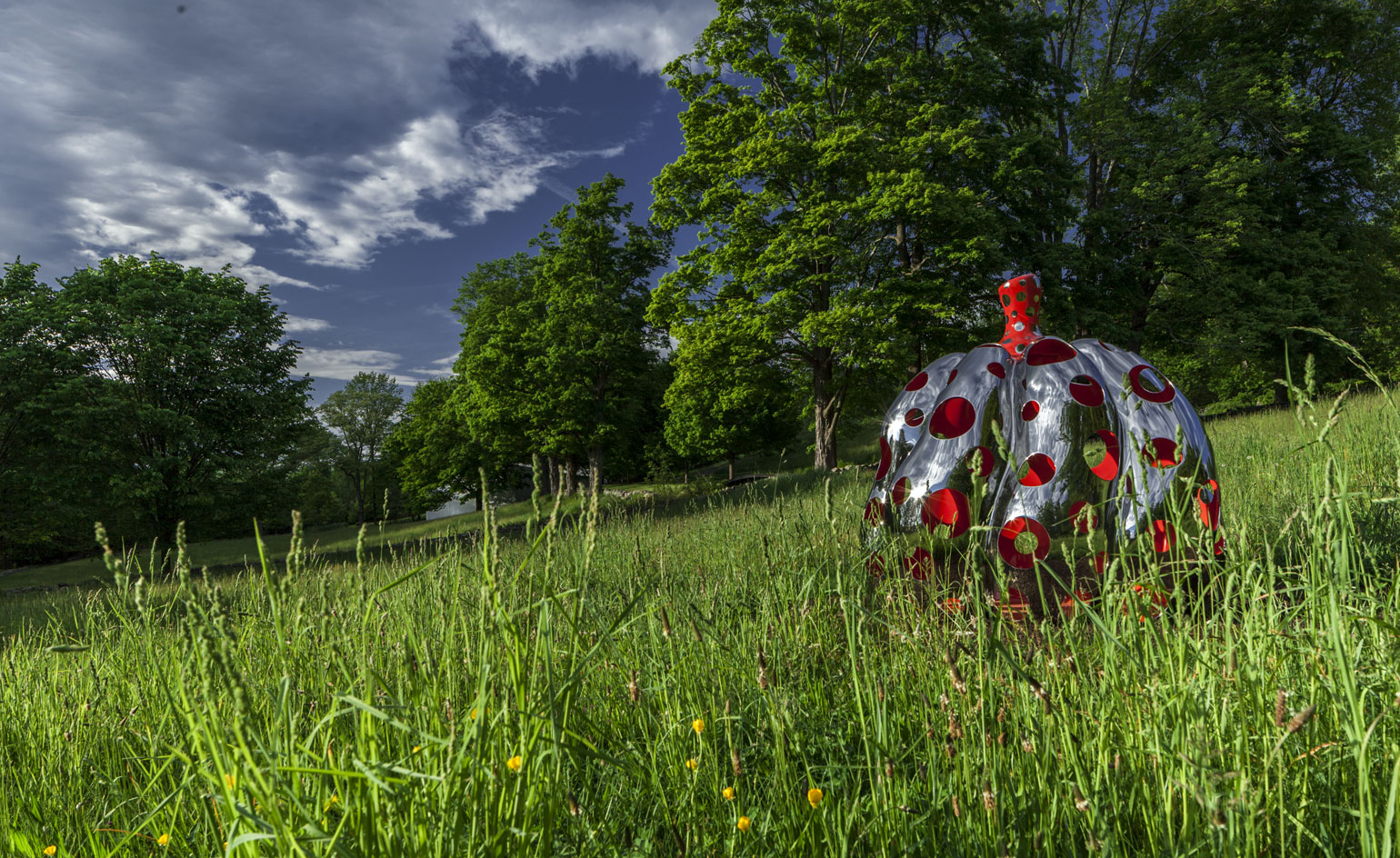
Also appearing in the garden is the Japanese artist's Pumpkin, its foiled red and silver form whimsically popping out of the grass on a hillside meadow. Kusama's interest in pumpkins began at a young age; 'I am charmed by its shape, form, and lack of pretension,' she explains.
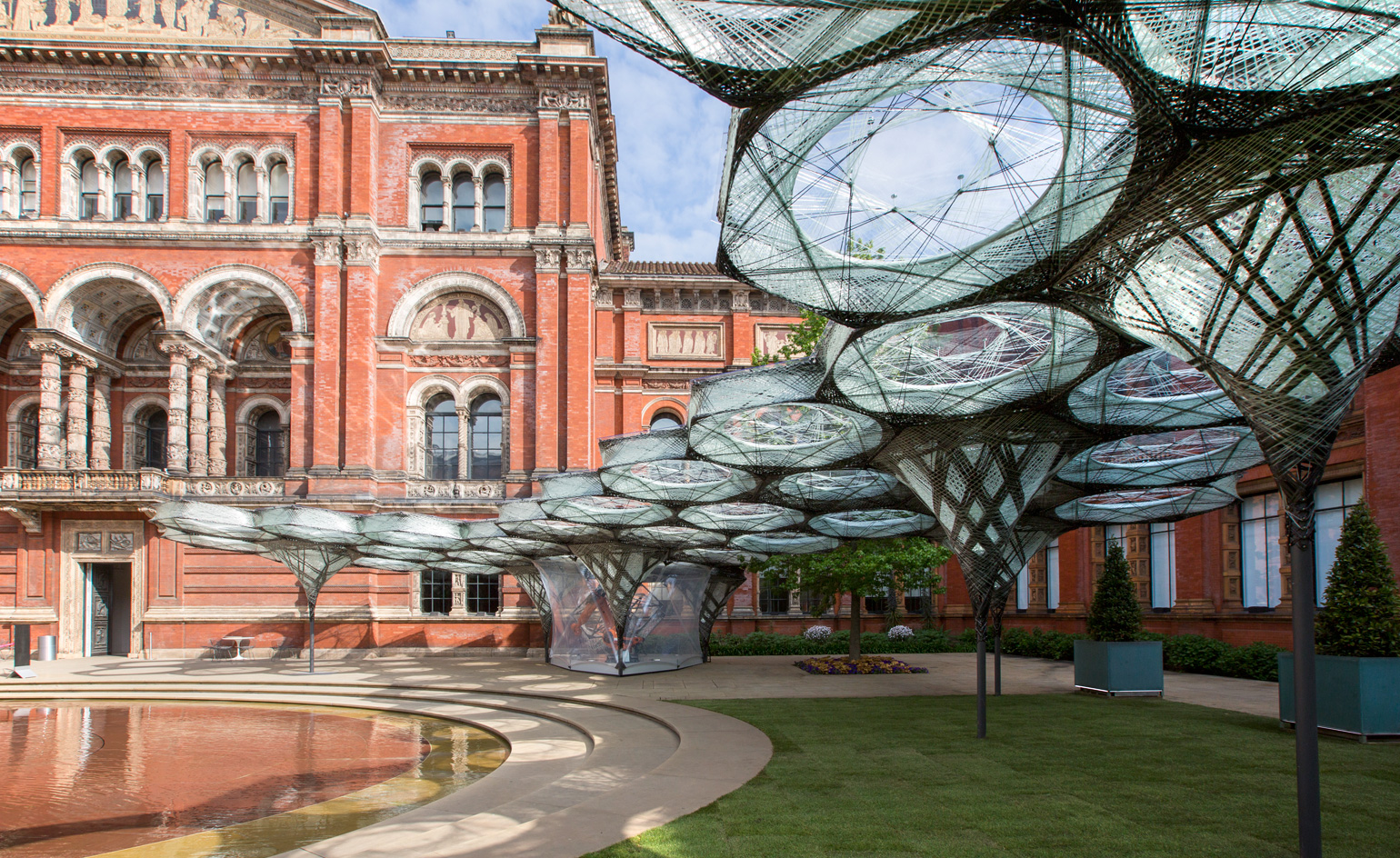
Elytra Filament Pavilion by Achim Menges, Moritz Dörstelmann, Jan Knippers and Thomas Auer
V&A, London, UK
This summer's V&A pavilion is all about experimentation. Inspired by nature and fabricated by robots, the structure comprises an intricate canopy of resin-coated, carbon fibre and glass thread, woven using a unique robotic technique.
Writer: Jessica Klingelfuss
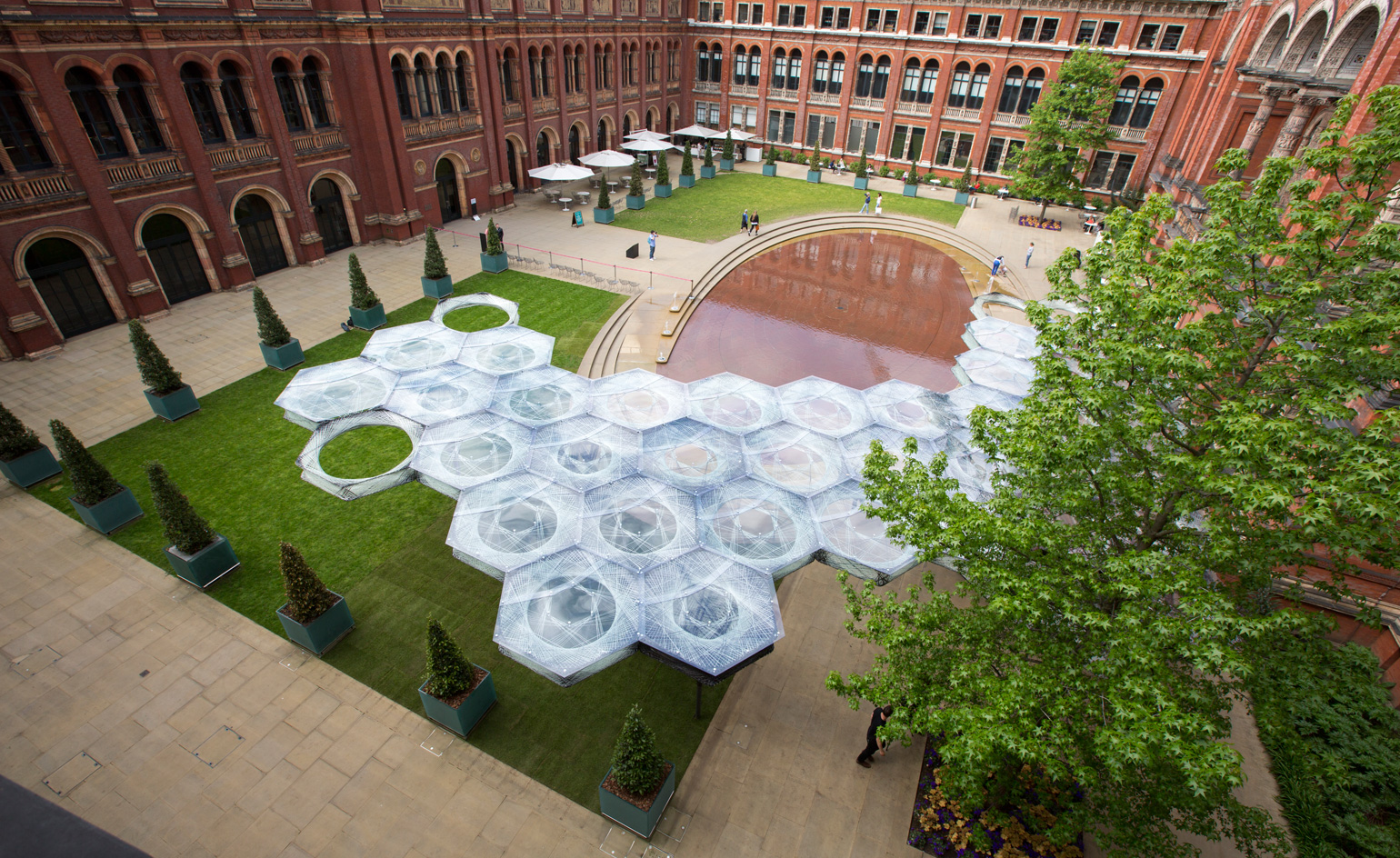
Marking the launch of the V&A's inaugural Engineering Season, the pavilion’s cellular, lightweight design draws inspiration from its namesake – elytra is a type of hardened forewing typical of beetles and other insect orders
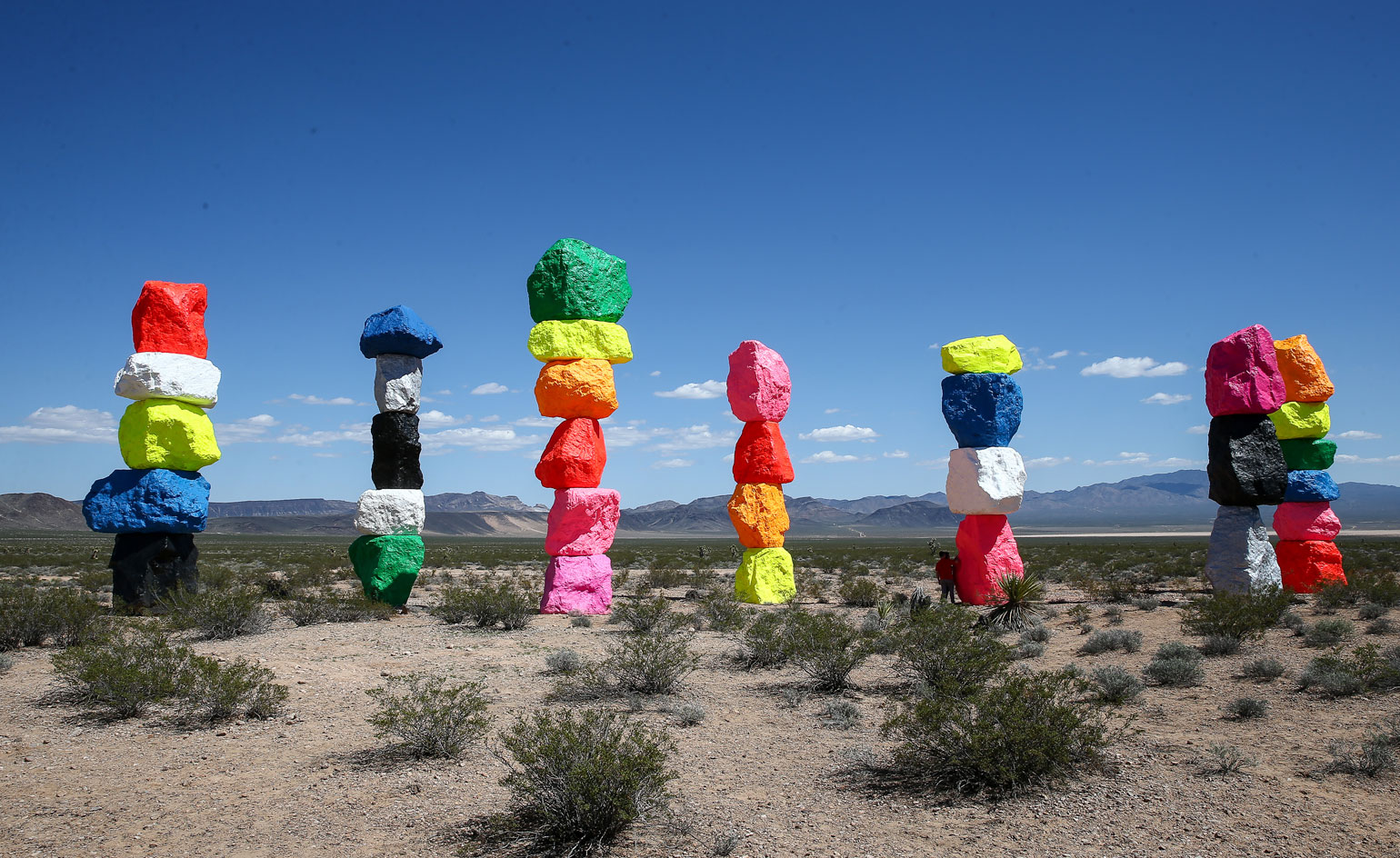
Seven Magic Mountains, by Ugo Rondinone
Nevada Desert, USA
Seven Magic Mountains, by Swiss-born artist Ugo Rondinone, is a large-scale desert installation that has been constructed and installed near Las Vegas and consists of seven monumental day-glo stone sculptures. Five years in the making, the project pays homage to the history of 'land art' and offers a contemporary commentary on the nearby super bright lights of Sin City.
Writer: Daniel Scheffler.
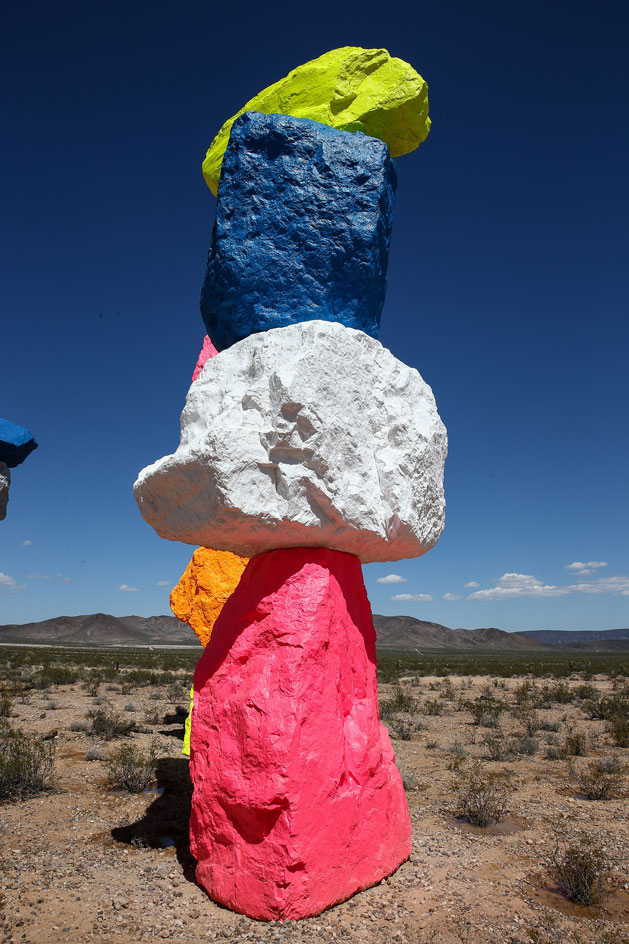
The seven towering sculptures are made from locally-sourced limestone boulders piled vertically in assortments, each showing off a different fluorescent colour. The project will remain on show for two years, and is located approximately 10 miles south of the intersection of Las Vegas Boulevard and St Rose Parkway in Henderson, Nevada. Photography courtesy Nevada Museum of Art
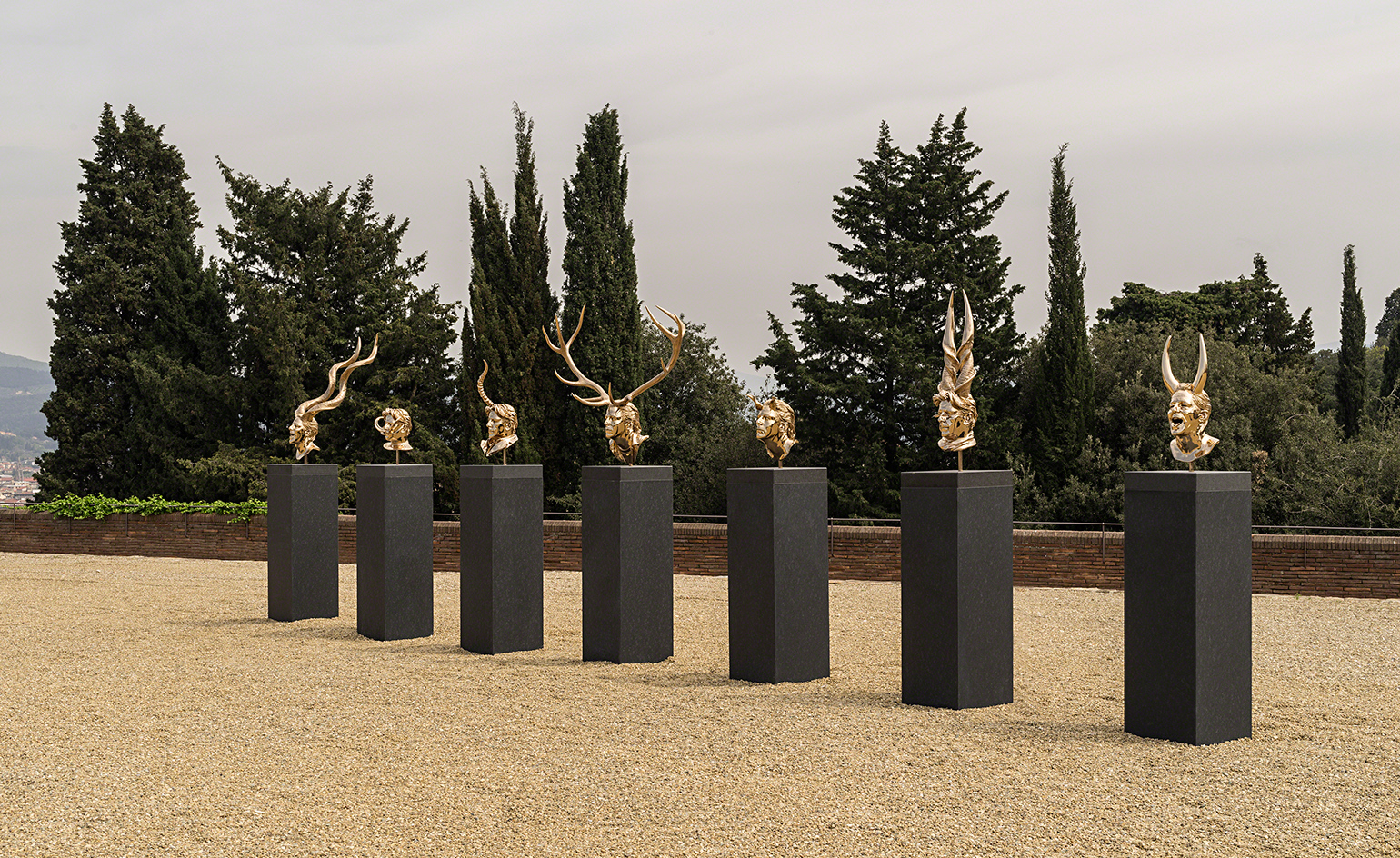
Jan Fabre's 'contemporary Renaissance'
Florence, Italy
Three of Florence's most visited locations are playing host to Jan Fabre's 'contemporary-Renaissance' art. Located at Forte di Belvedere, Piazza della Signoria and Palazzo Vecchio, Fabre builds a rapport with the strong political and religious symbols the city is strewn with, reactivating them through his own work. Pictured: Chapters I–XVIII, 2010.
Writer: Siska Lyssens.
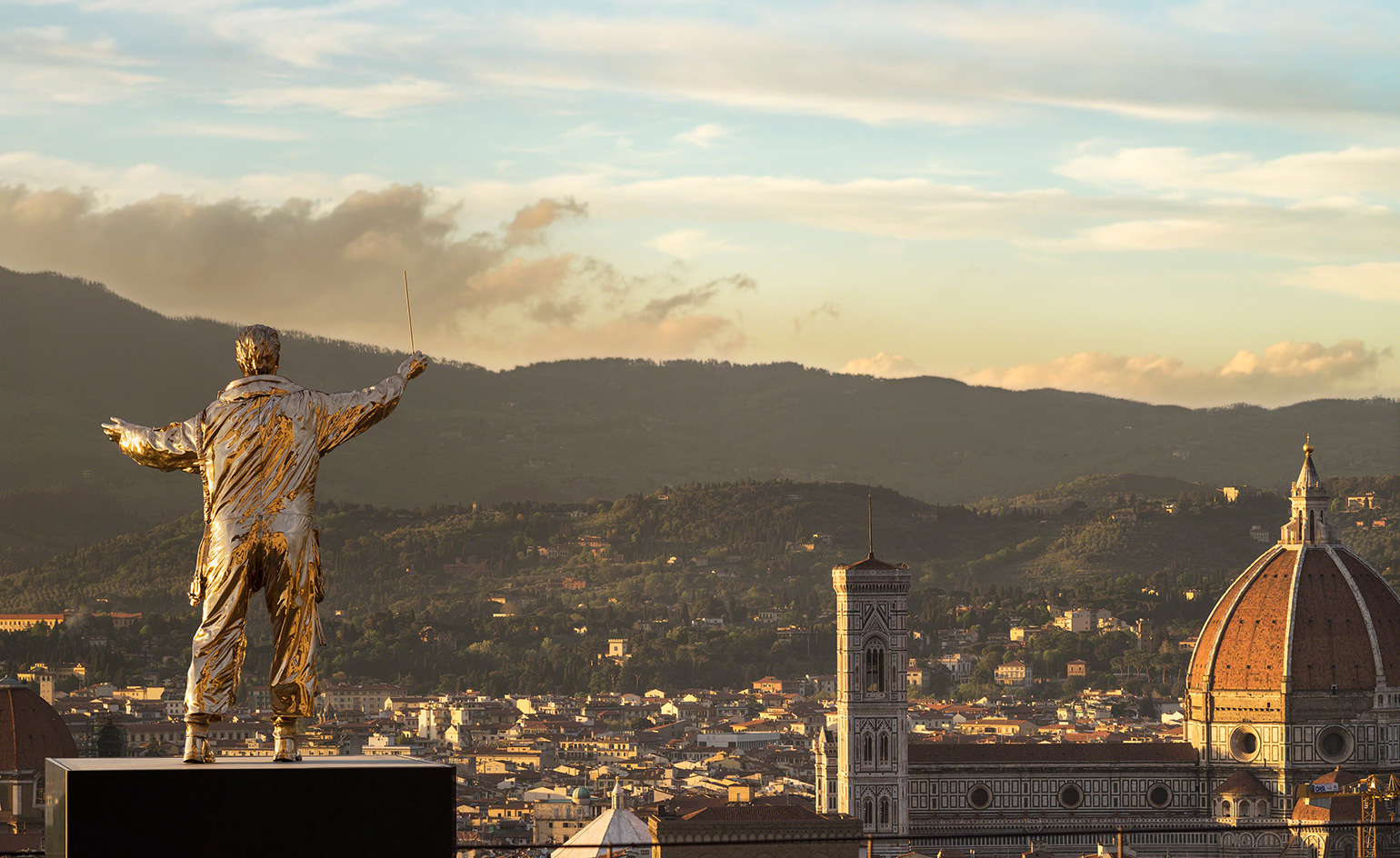
'I think I was invited because, to the organisers, I am a kind of contemporary Renaissance artist. I sculpt, I draw, I write, I do solo performances and direct a theatre company,' says Fabre. Pictured: The man who conducts the stars, 2015.
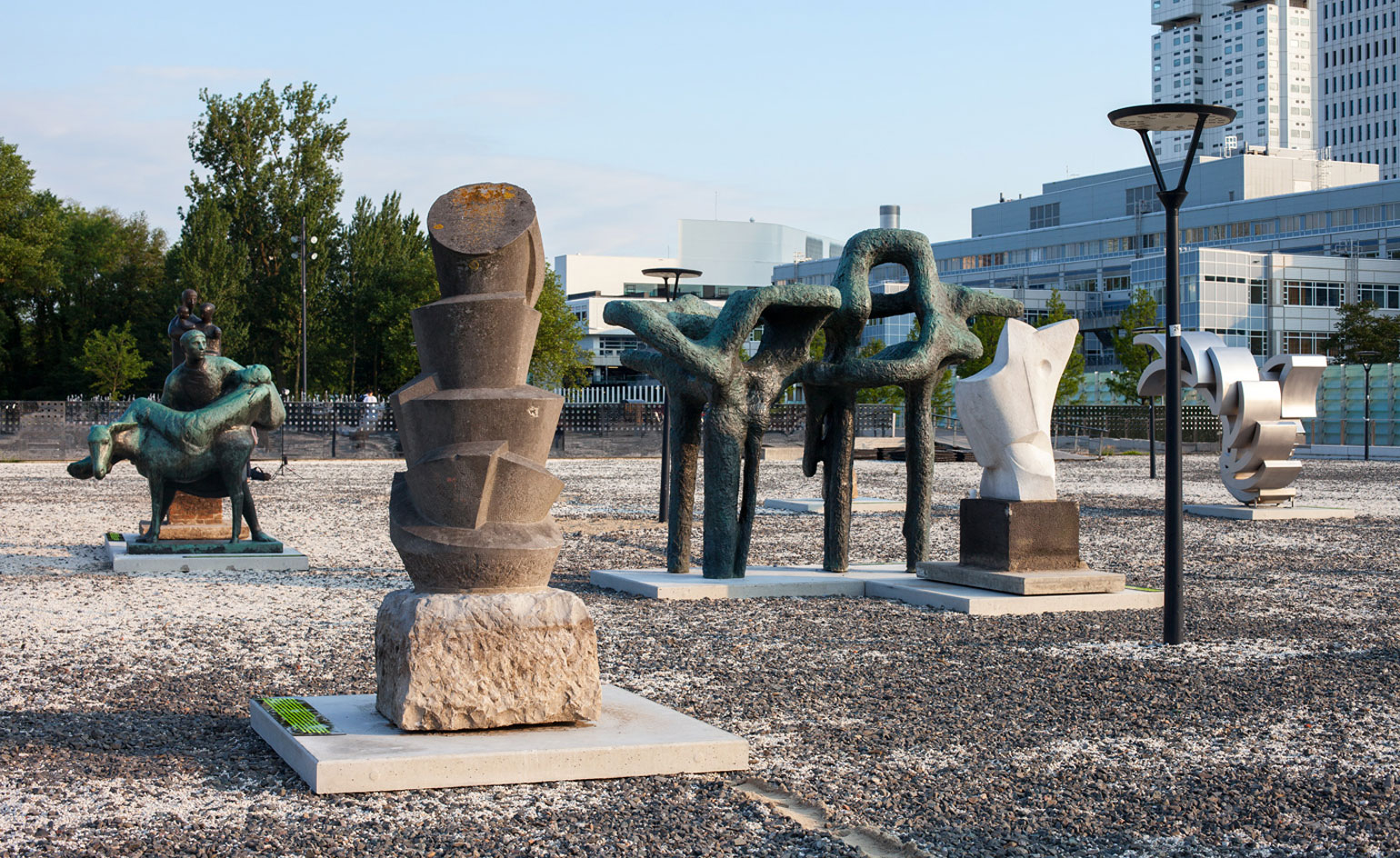
The different abstract sculptures may clash aesthetically, but they naturally merge together as a chronological and visual tour of the city's history since 1940.

Not Vital at YSP
Yorkshire Sculpture Park, UK
Until January next year, Yorkshire Sculpture Park in the Bretton Hall Estate, near Wakefield, will display an extensive range of Swiss sculptor Not Vital's work. Each nook of the 18th century grounds has been occupied by a visionary Vital piece.
Writer: Elly Parsons.
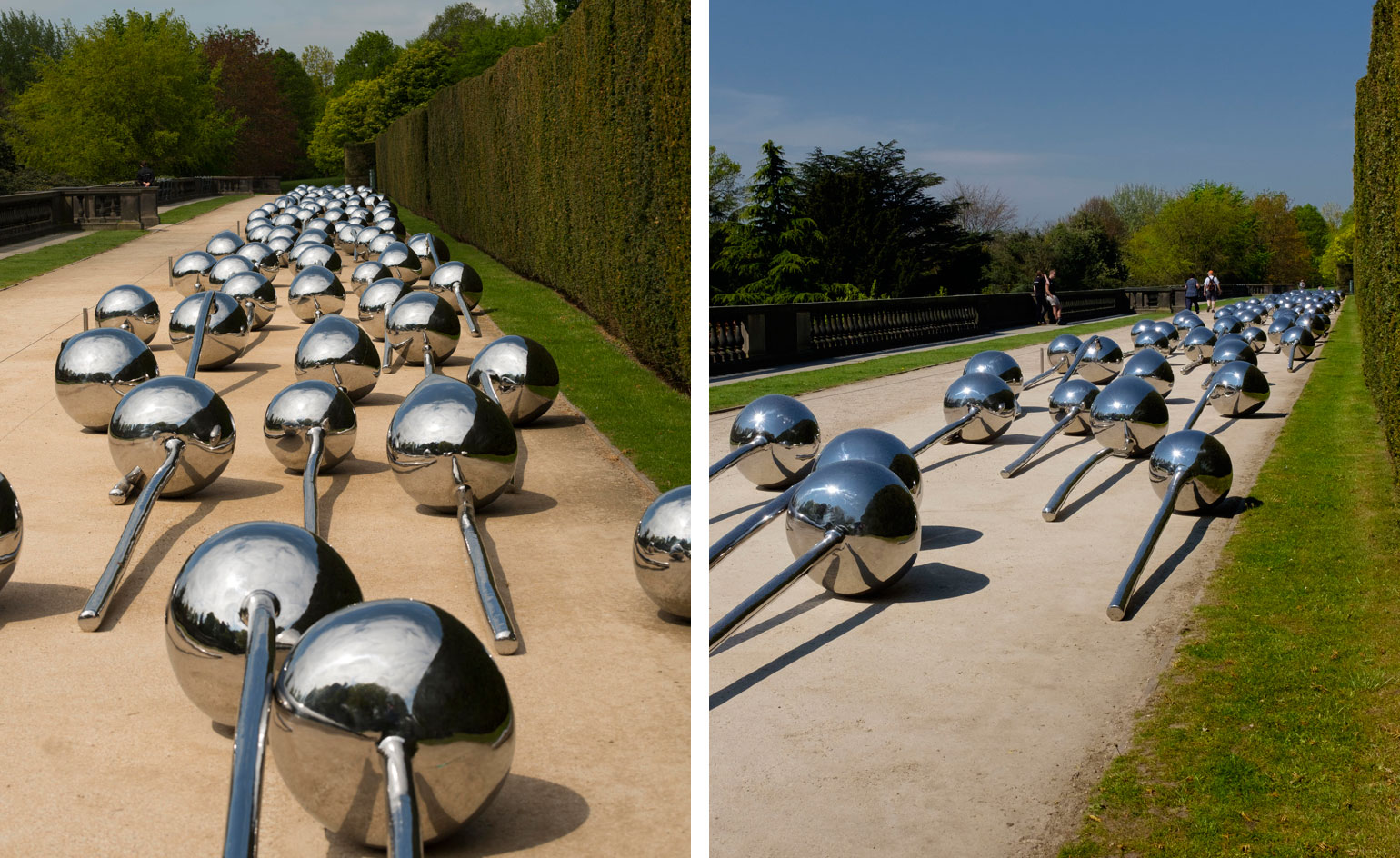
They include Let 100 Flowers Bloom (2008), which is scattered across the park's lengthy terrace. This complex installation comprises a century of elegant lotus buds on 3m-long stems, rendered in stainless steel.
Wallpaper* Newsletter
Receive our daily digest of inspiration, escapism and design stories from around the world direct to your inbox.
Rosa Bertoli was born in Udine, Italy, and now lives in London. Since 2014, she has been the Design Editor of Wallpaper*, where she oversees design content for the print and online editions, as well as special editorial projects. Through her role at Wallpaper*, she has written extensively about all areas of design. Rosa has been speaker and moderator for various design talks and conferences including London Craft Week, Maison & Objet, The Italian Cultural Institute (London), Clippings, Zaha Hadid Design, Kartell and Frieze Art Fair. Rosa has been on judging panels for the Chart Architecture Award, the Dutch Design Awards and the DesignGuild Marks. She has written for numerous English and Italian language publications, and worked as a content and communication consultant for fashion and design brands.
-
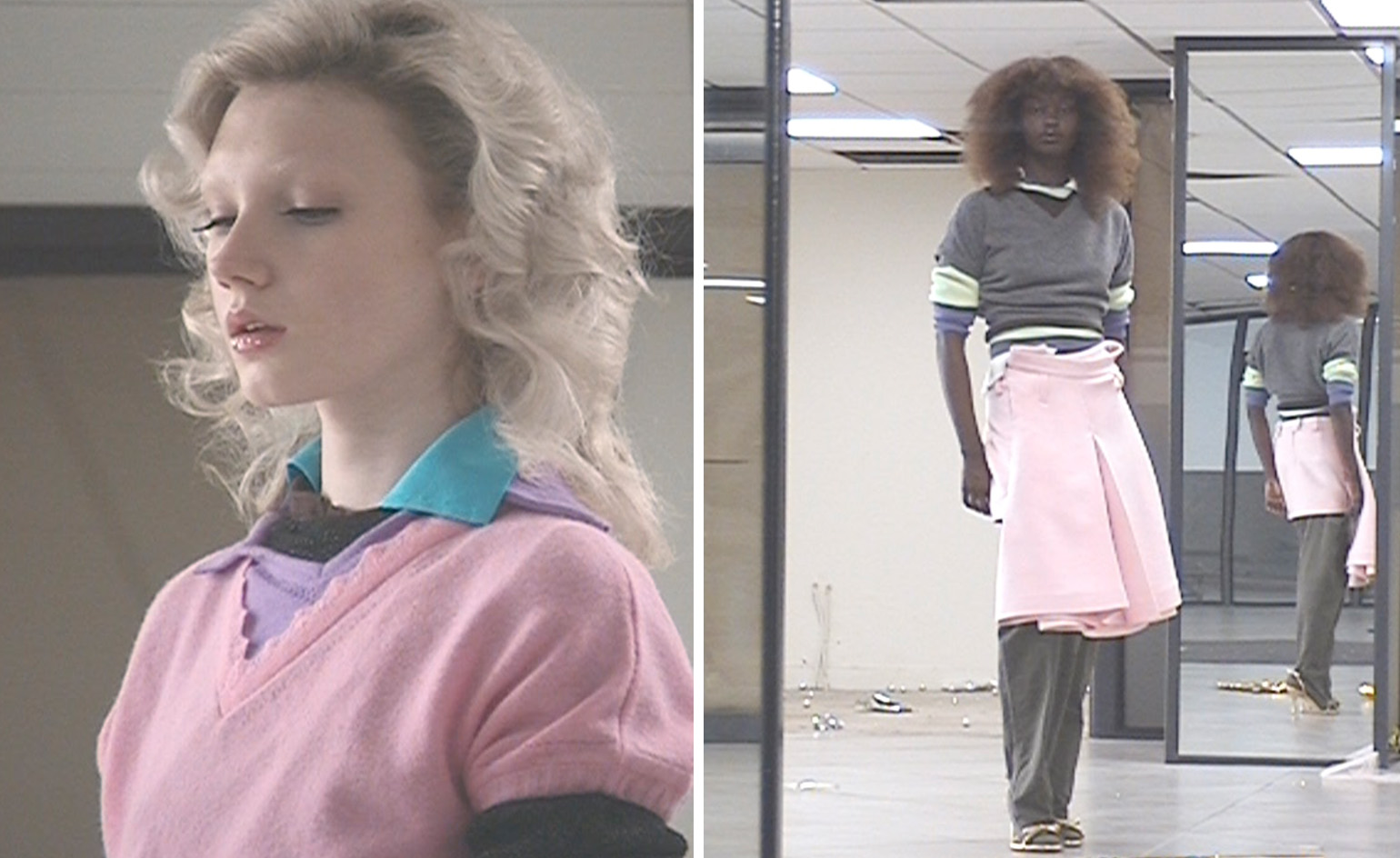 All-In is the Paris-based label making full-force fashion for main character dressing
All-In is the Paris-based label making full-force fashion for main character dressingPart of our monthly Uprising series, Wallpaper* meets Benjamin Barron and Bror August Vestbø of All-In, the LVMH Prize-nominated label which bases its collections on a riotous cast of characters – real and imagined
By Orla Brennan
-
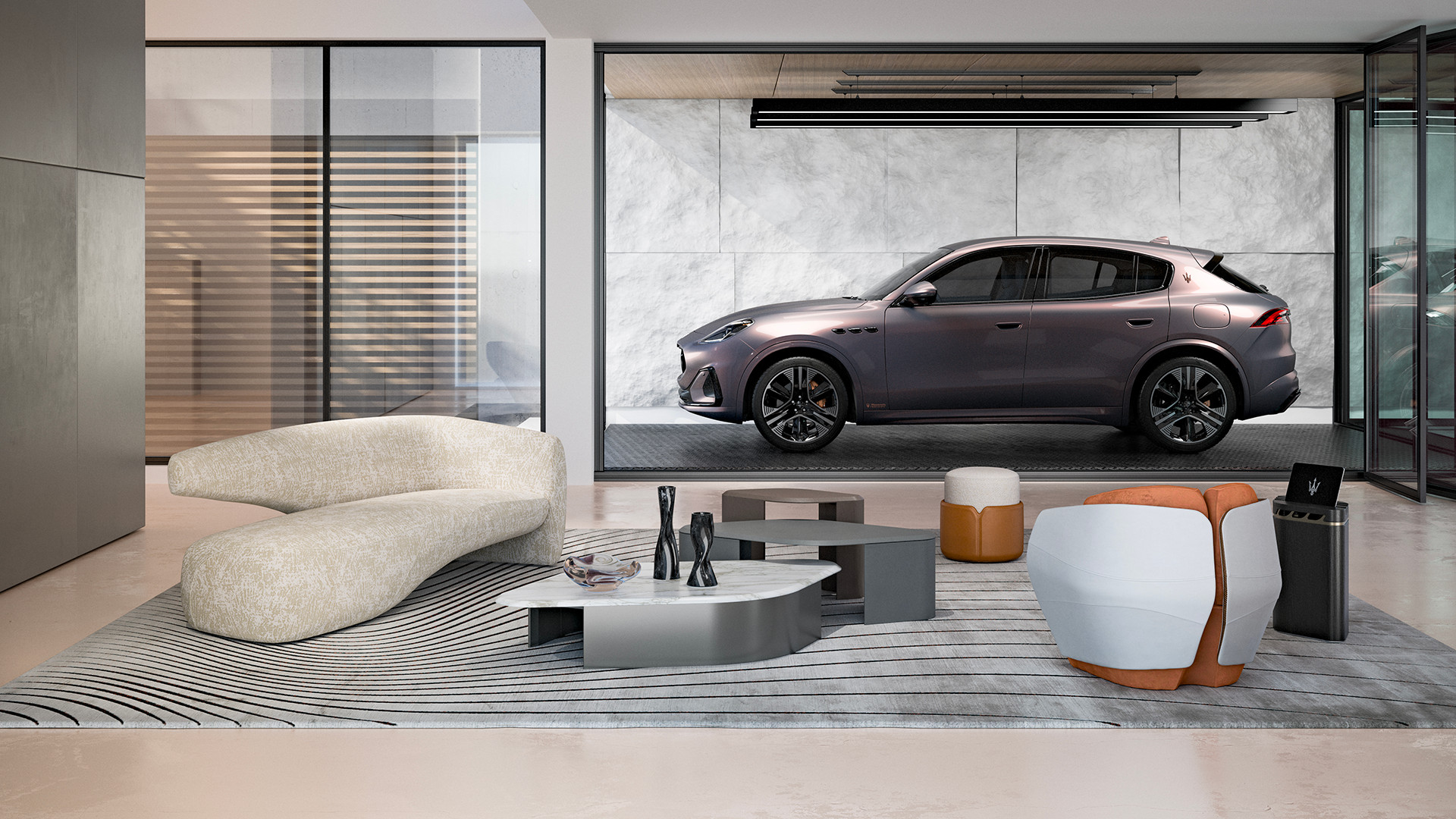 Maserati joins forces with Giorgetti for a turbo-charged relationship
Maserati joins forces with Giorgetti for a turbo-charged relationshipAnnouncing their marriage during Milan Design Week, the brands unveiled a collection, a car and a long term commitment
By Hugo Macdonald
-
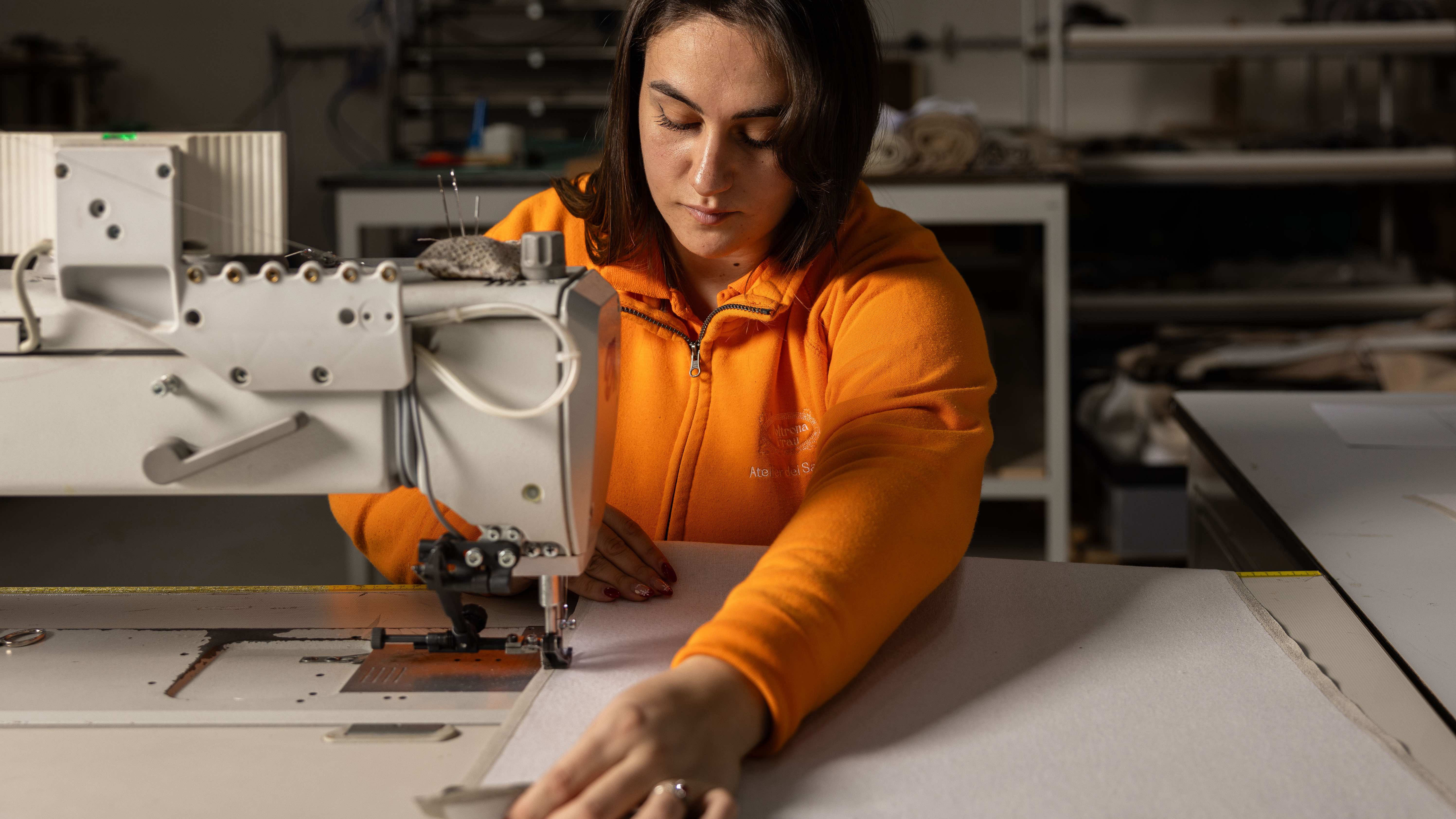 Through an innovative new training program, Poltrona Frau aims to safeguard Italian craft
Through an innovative new training program, Poltrona Frau aims to safeguard Italian craftThe heritage furniture manufacturer is training a new generation of leather artisans
By Cristina Kiran Piotti